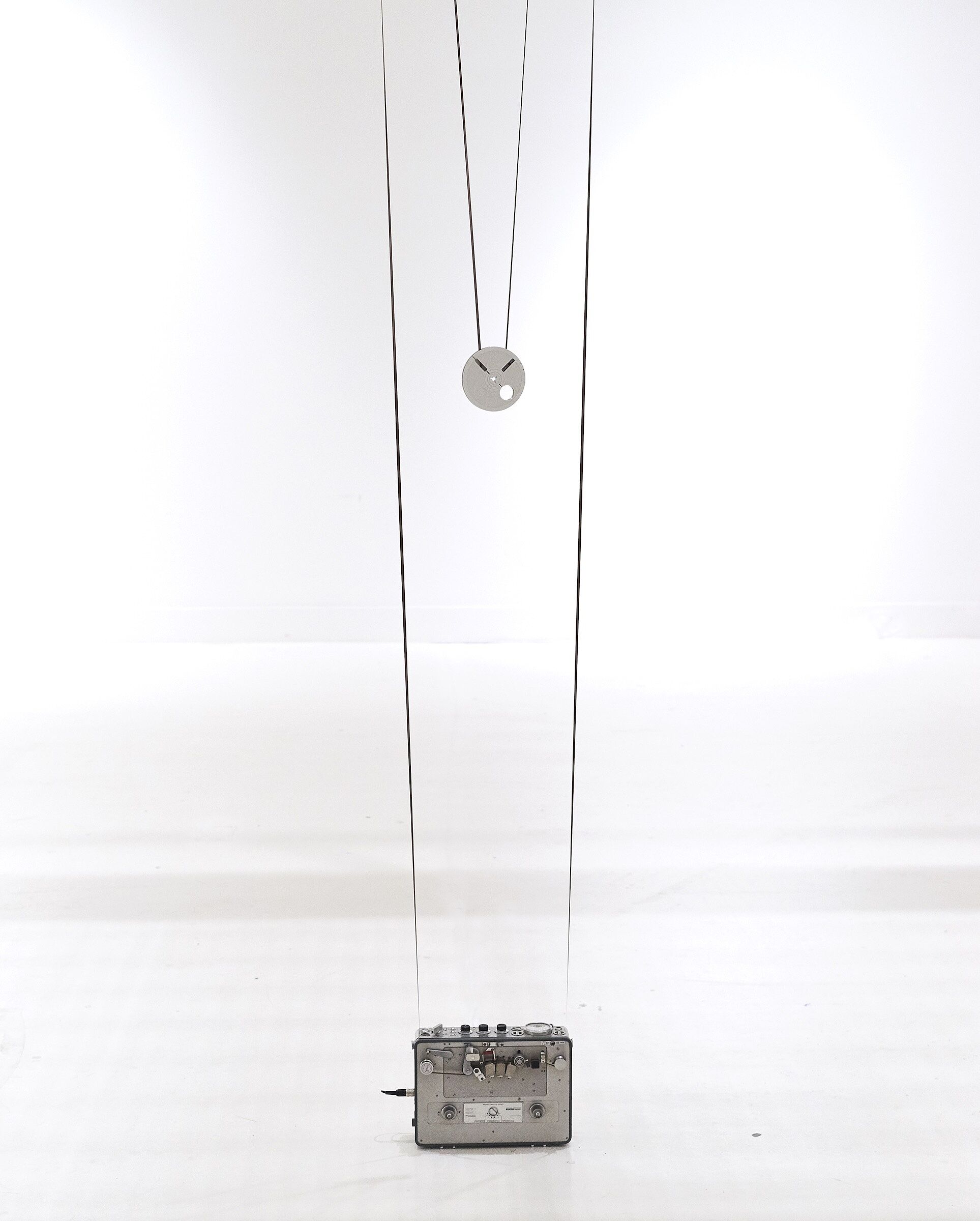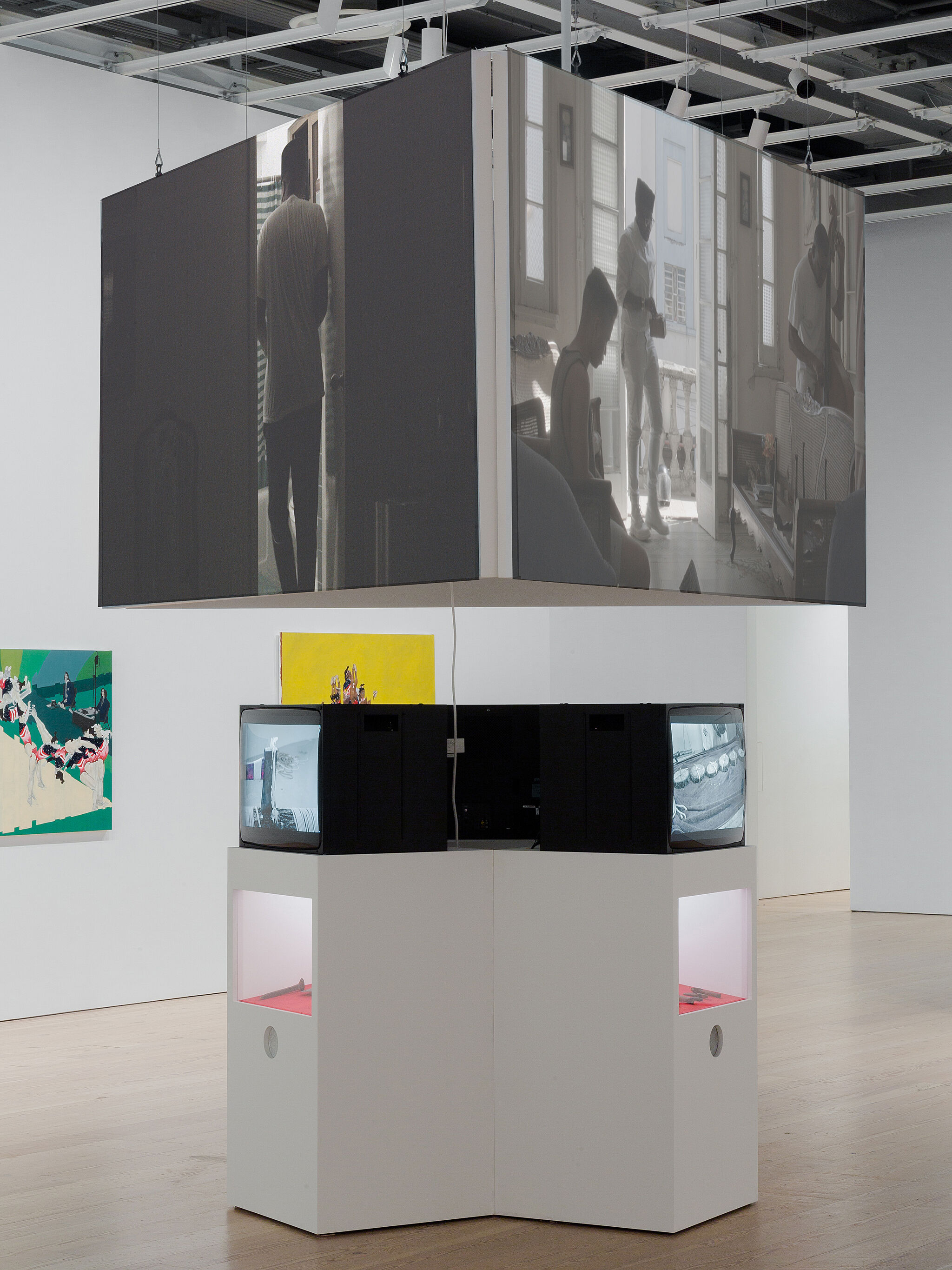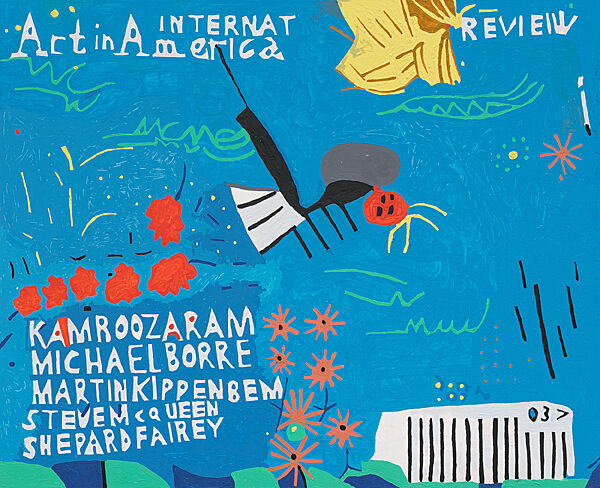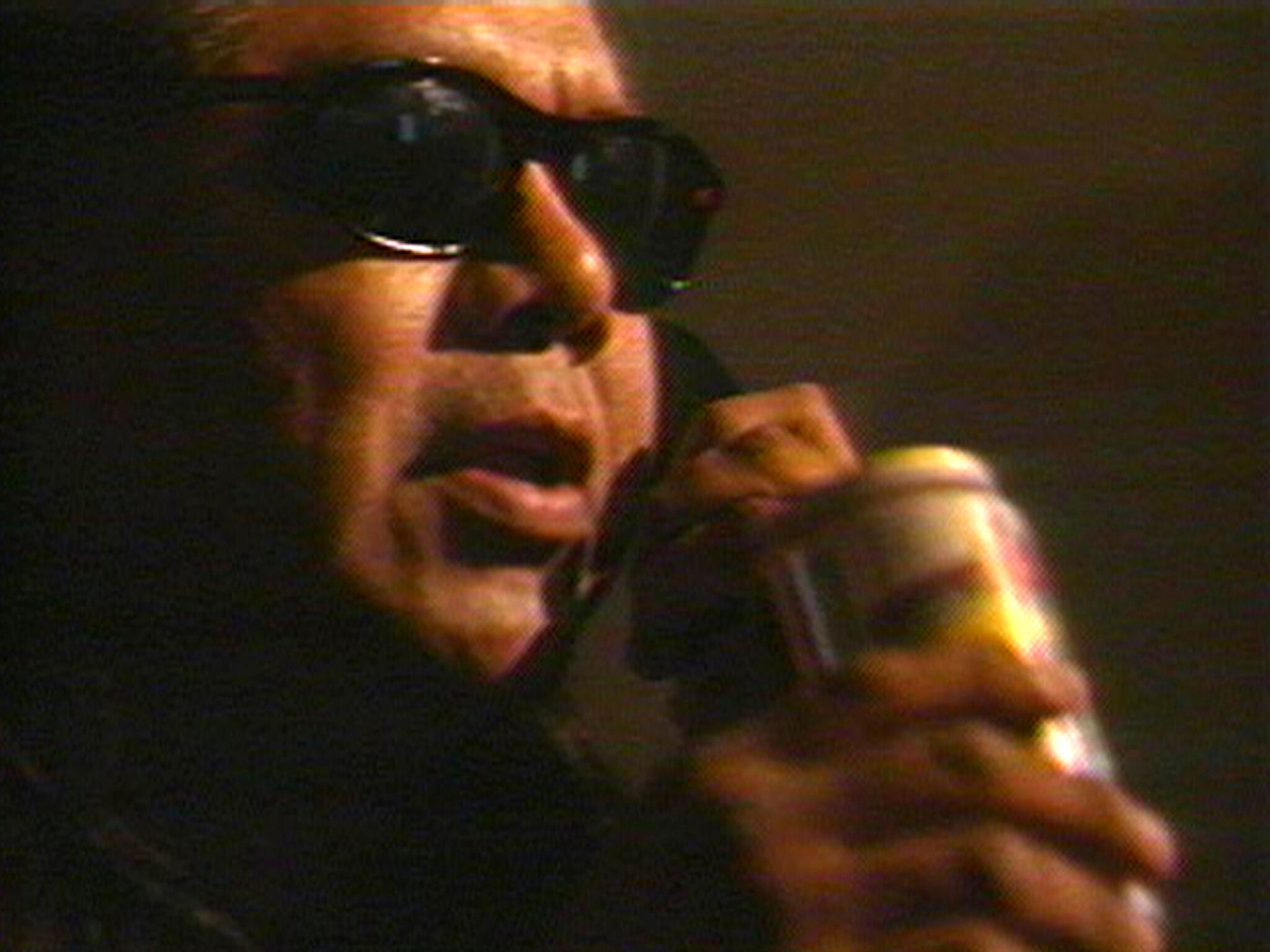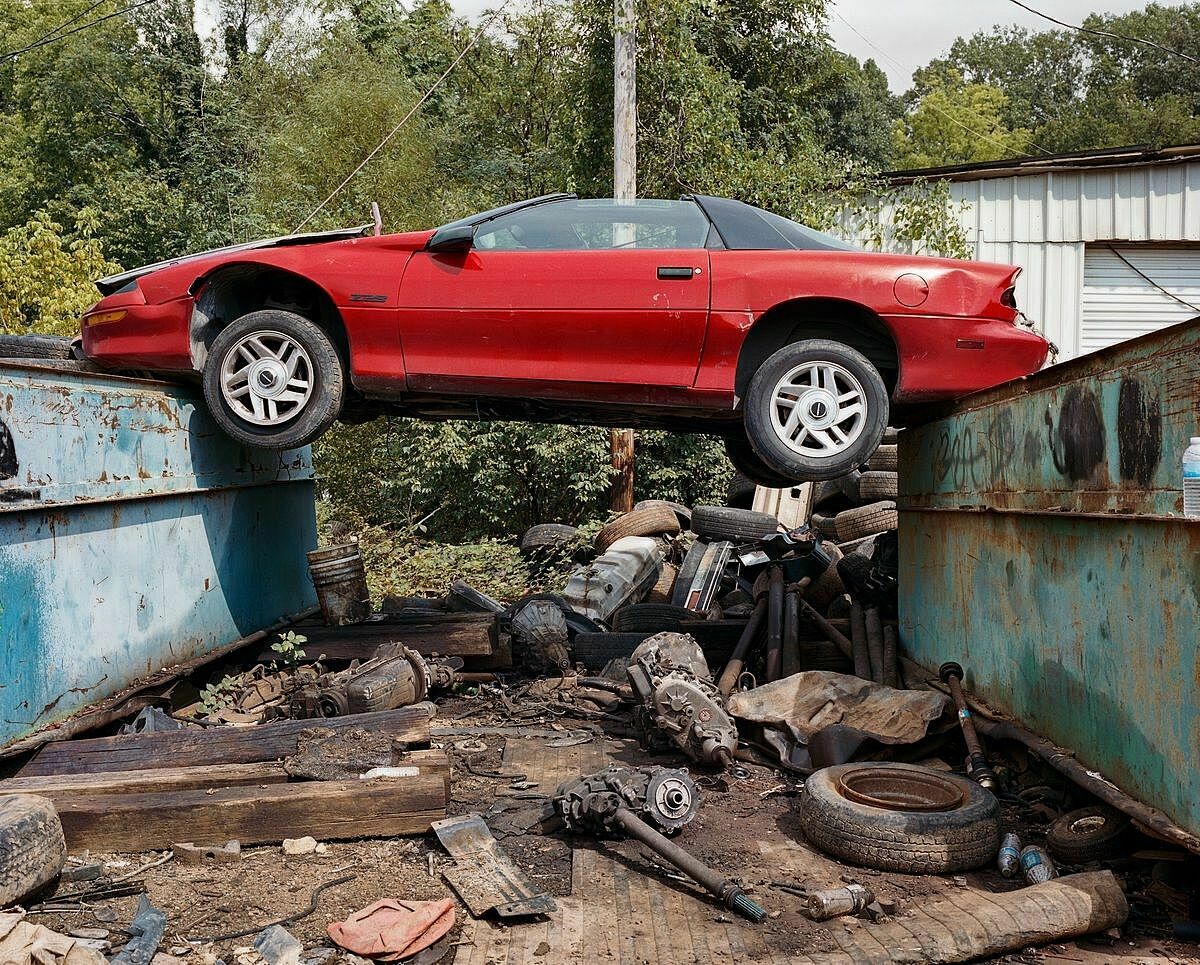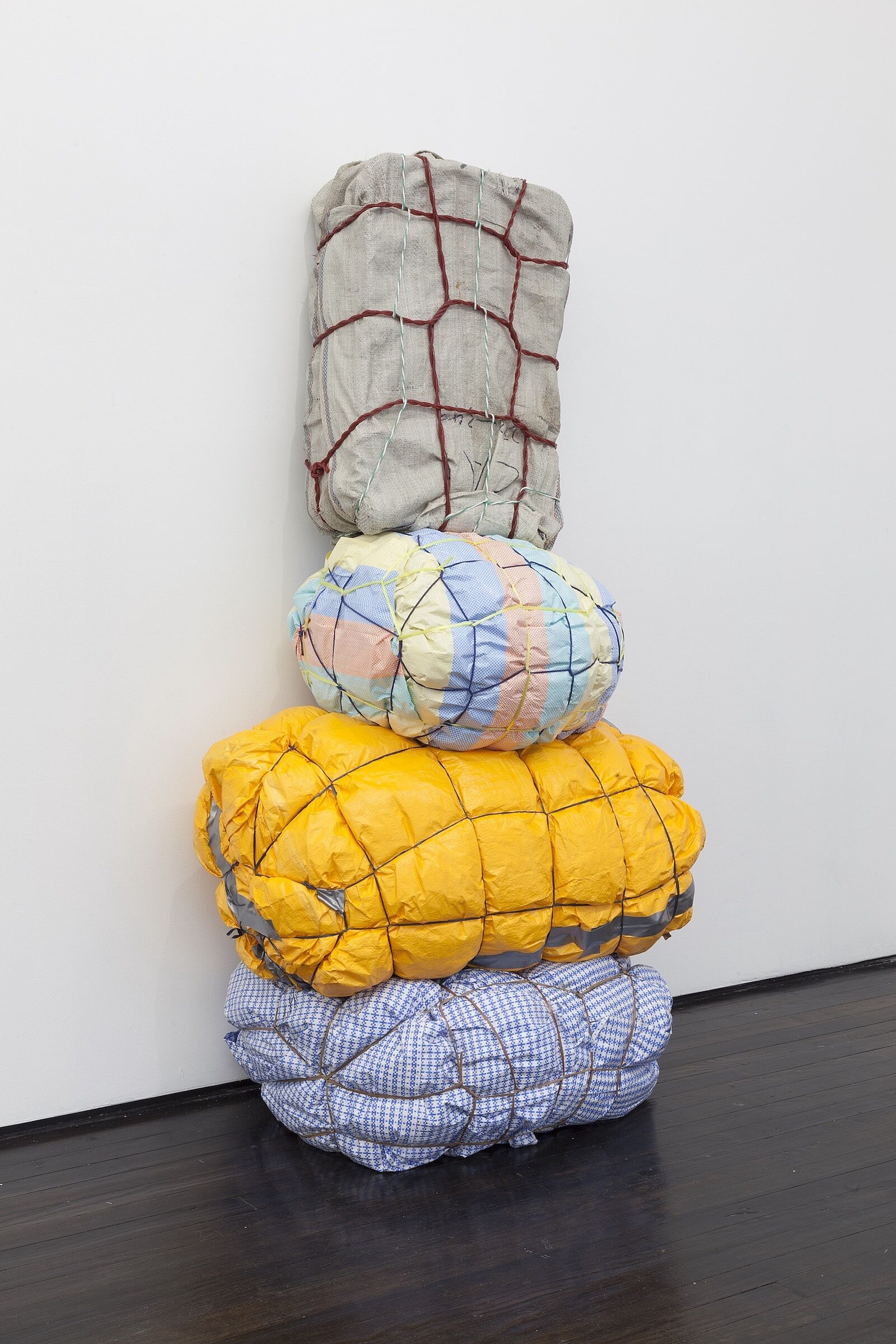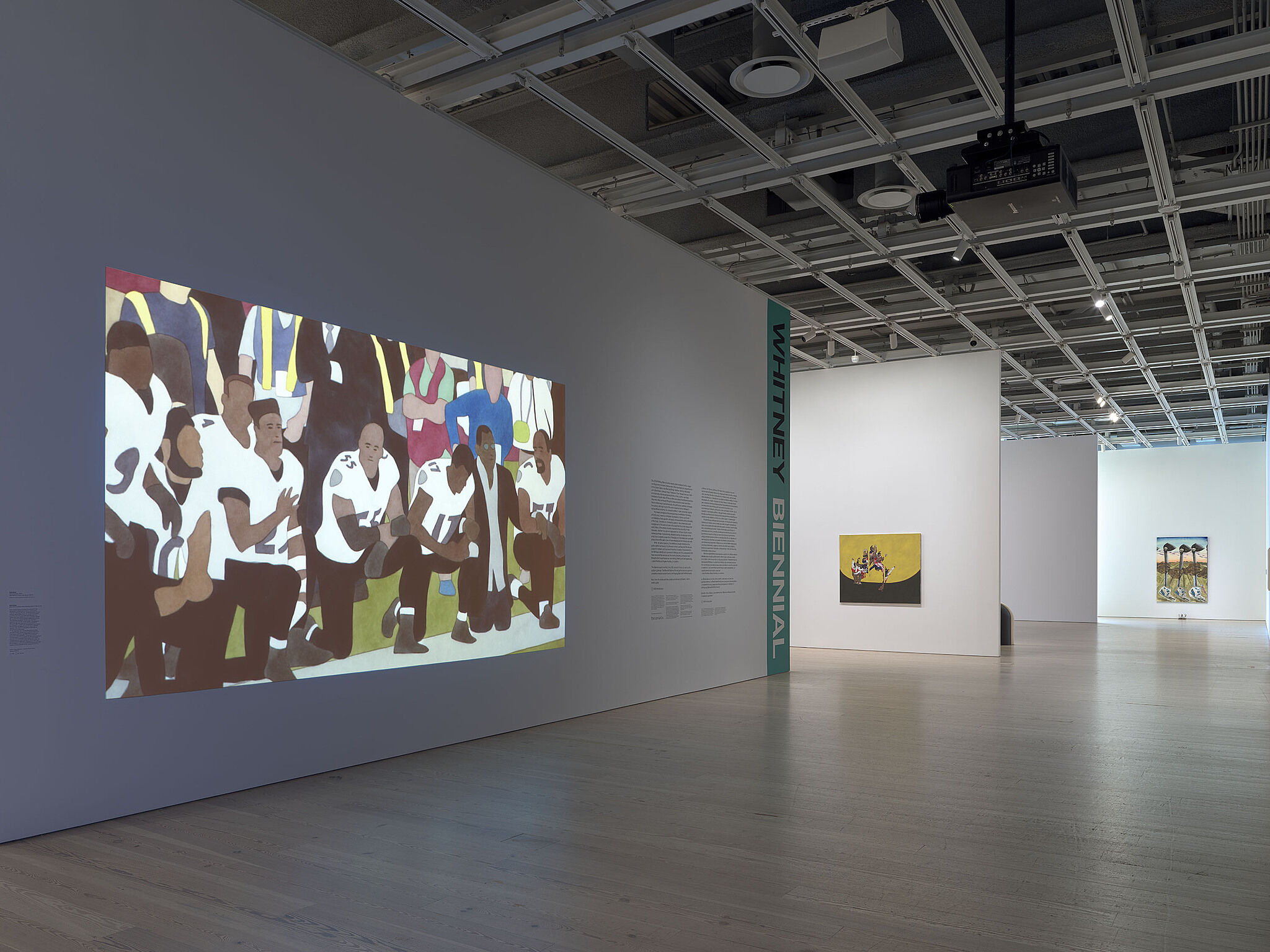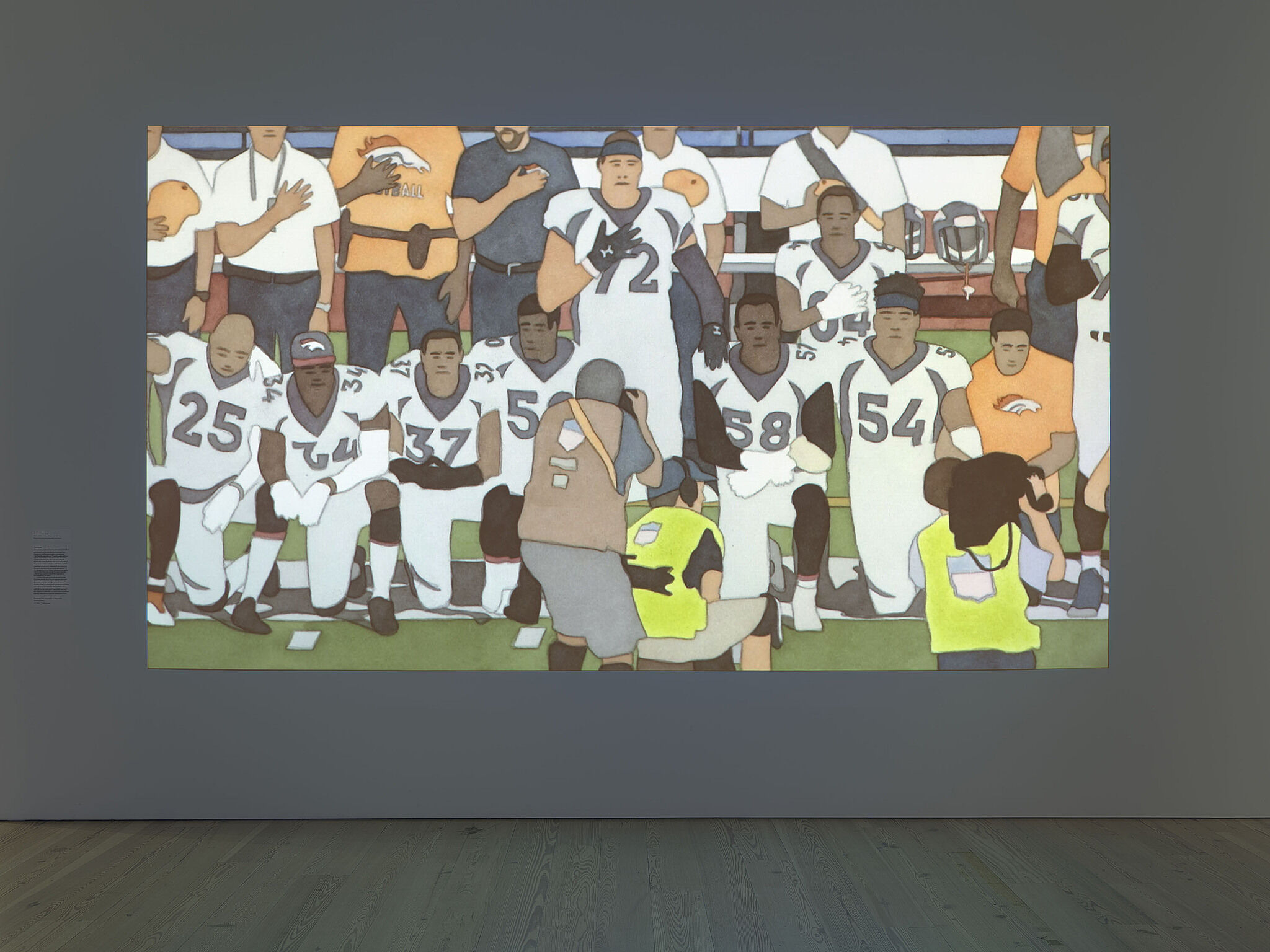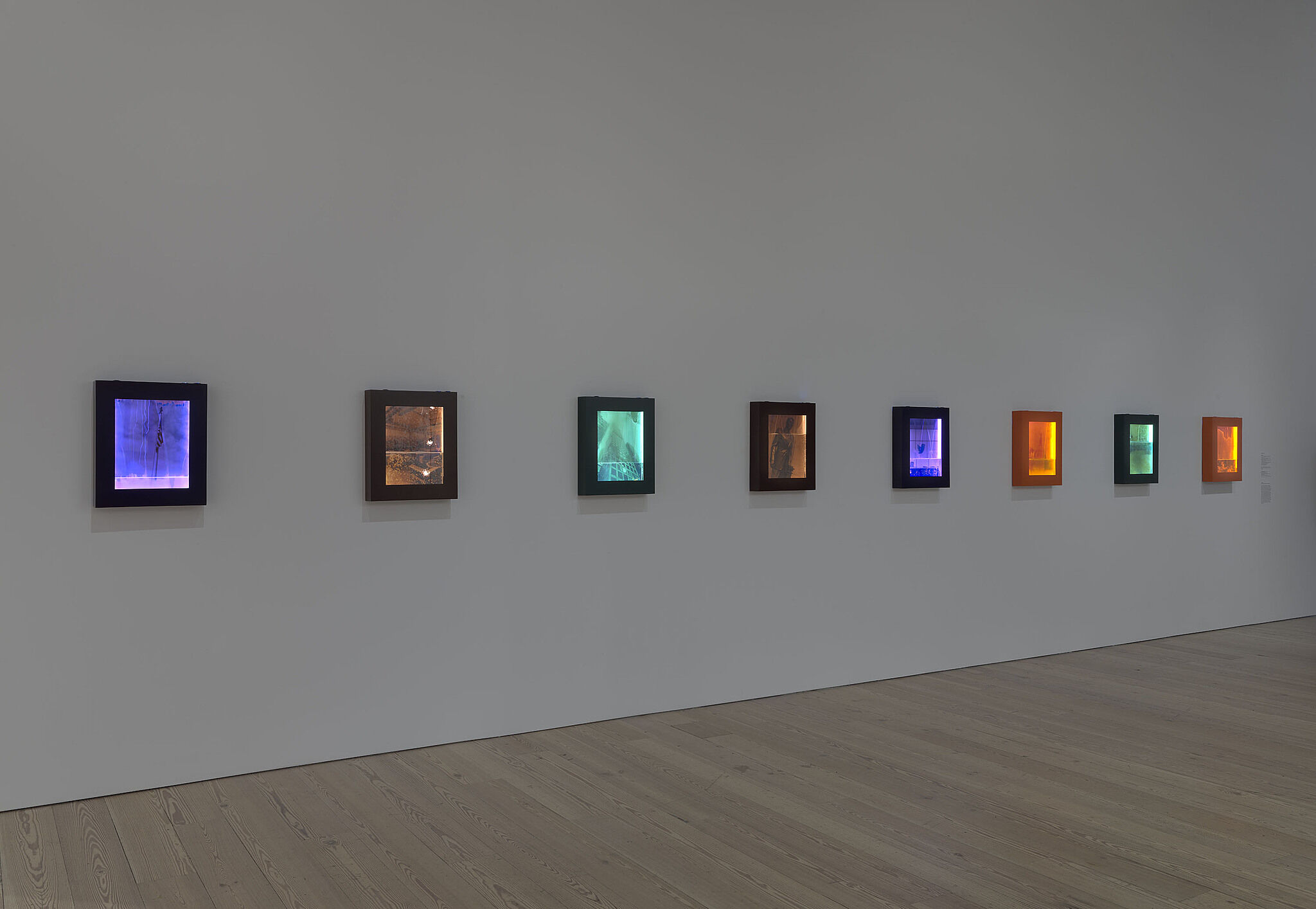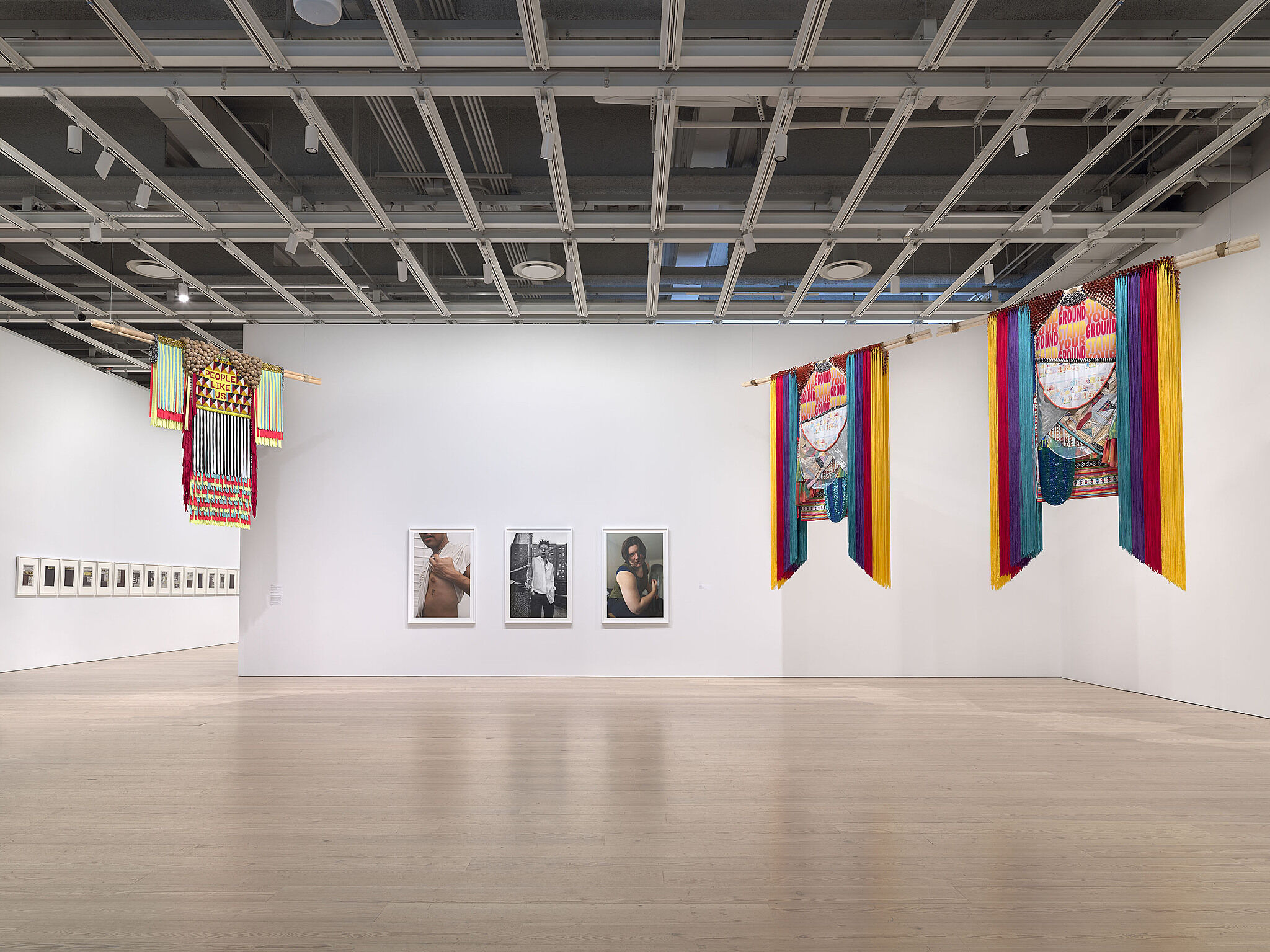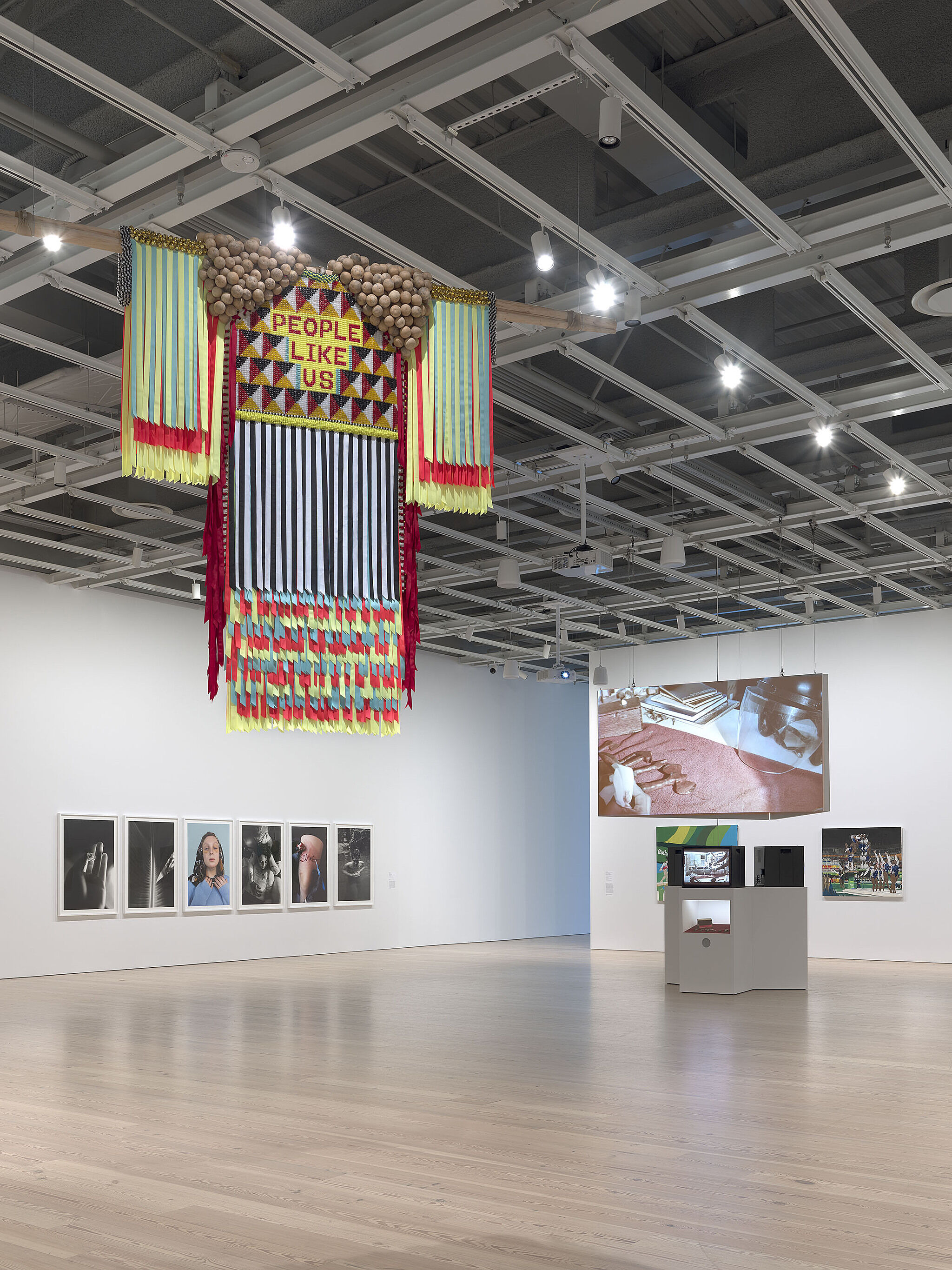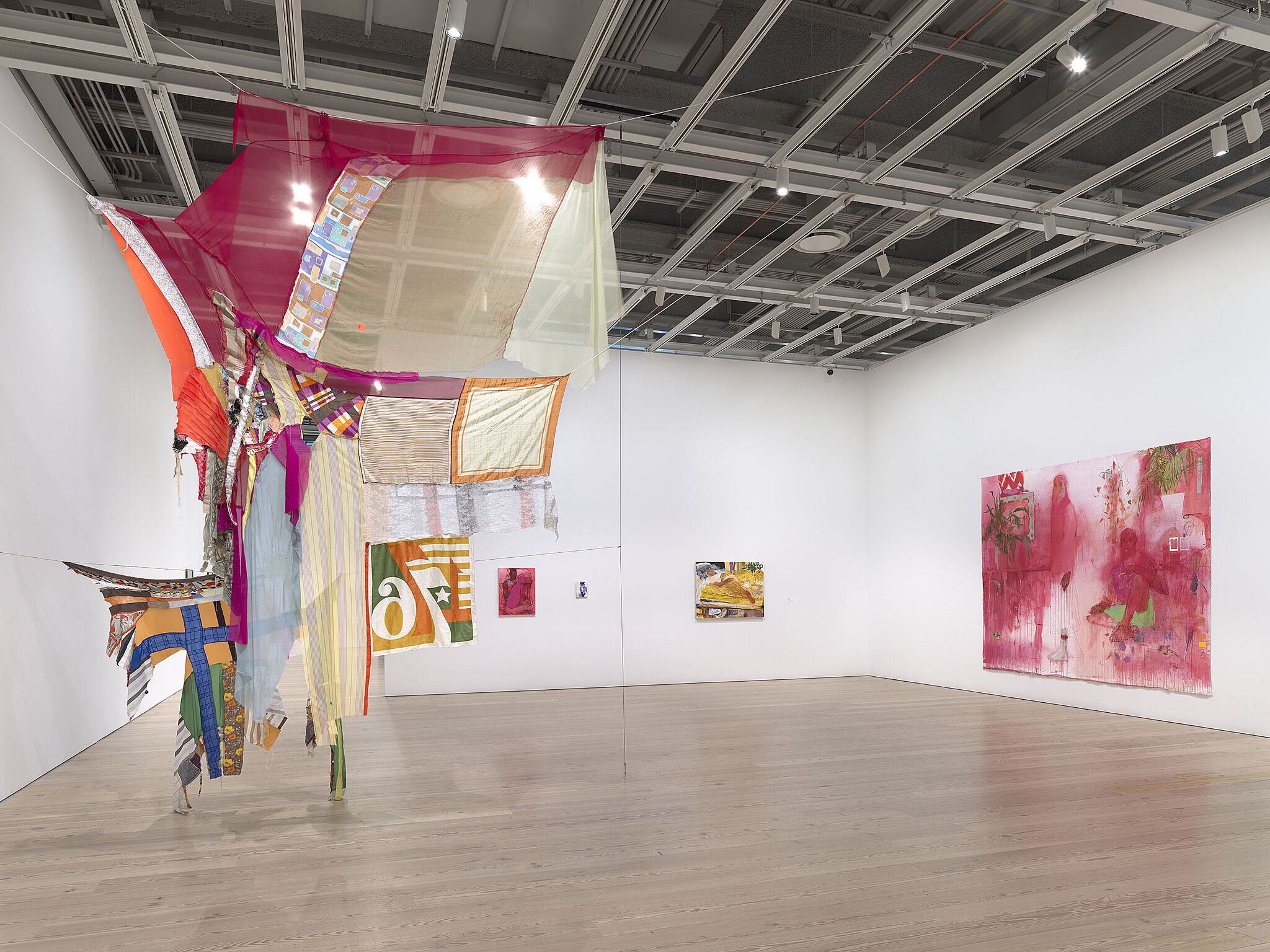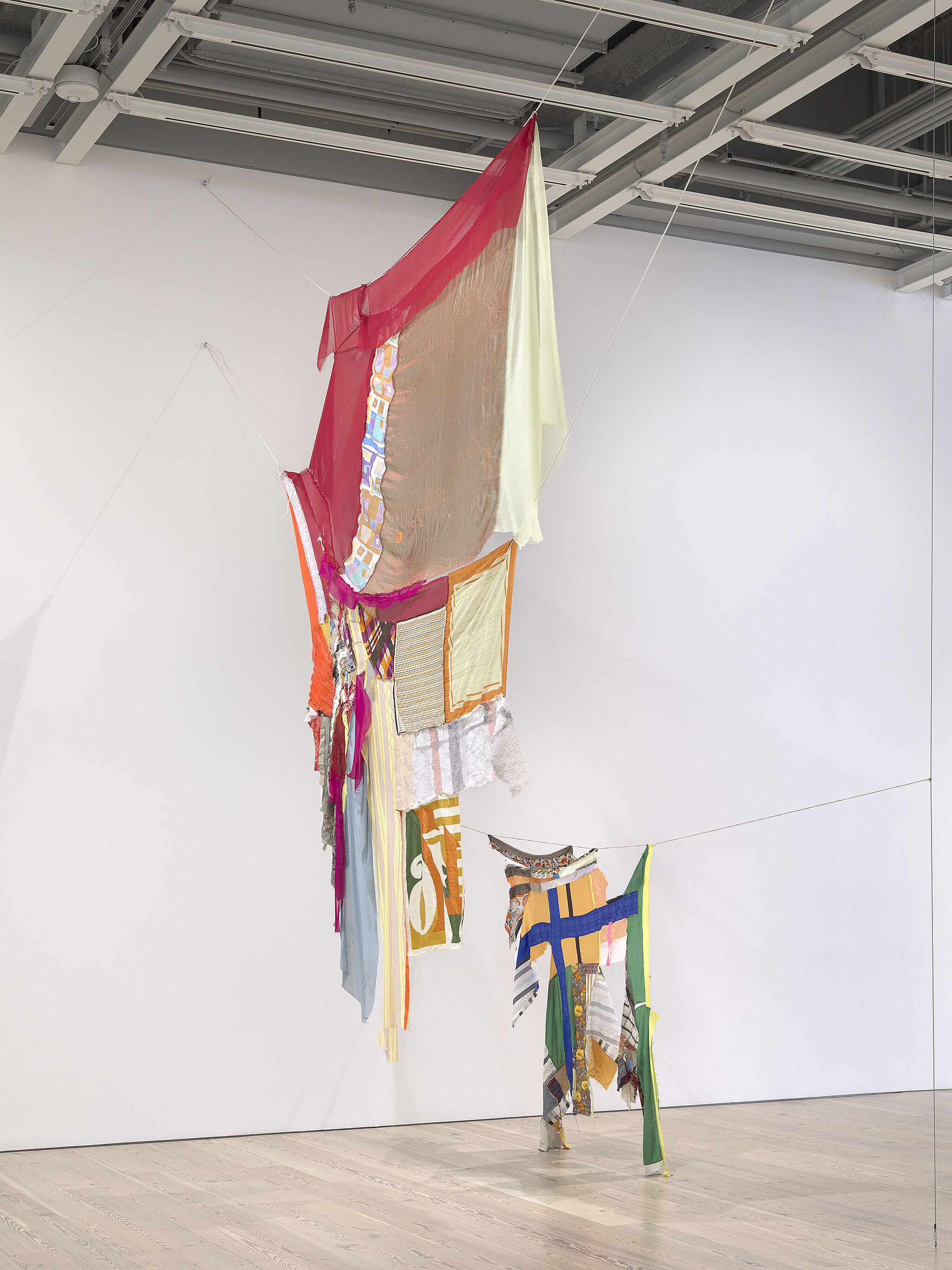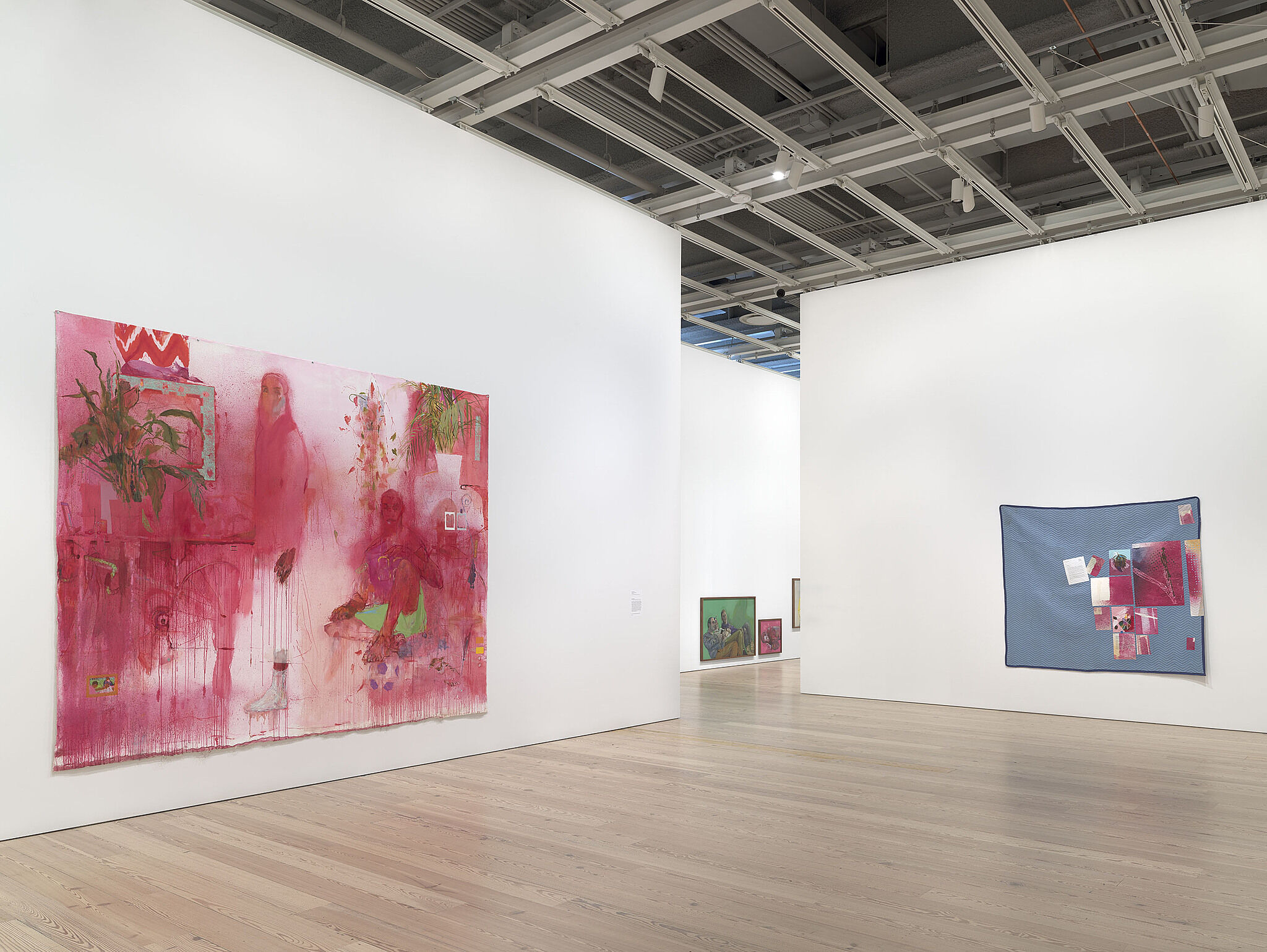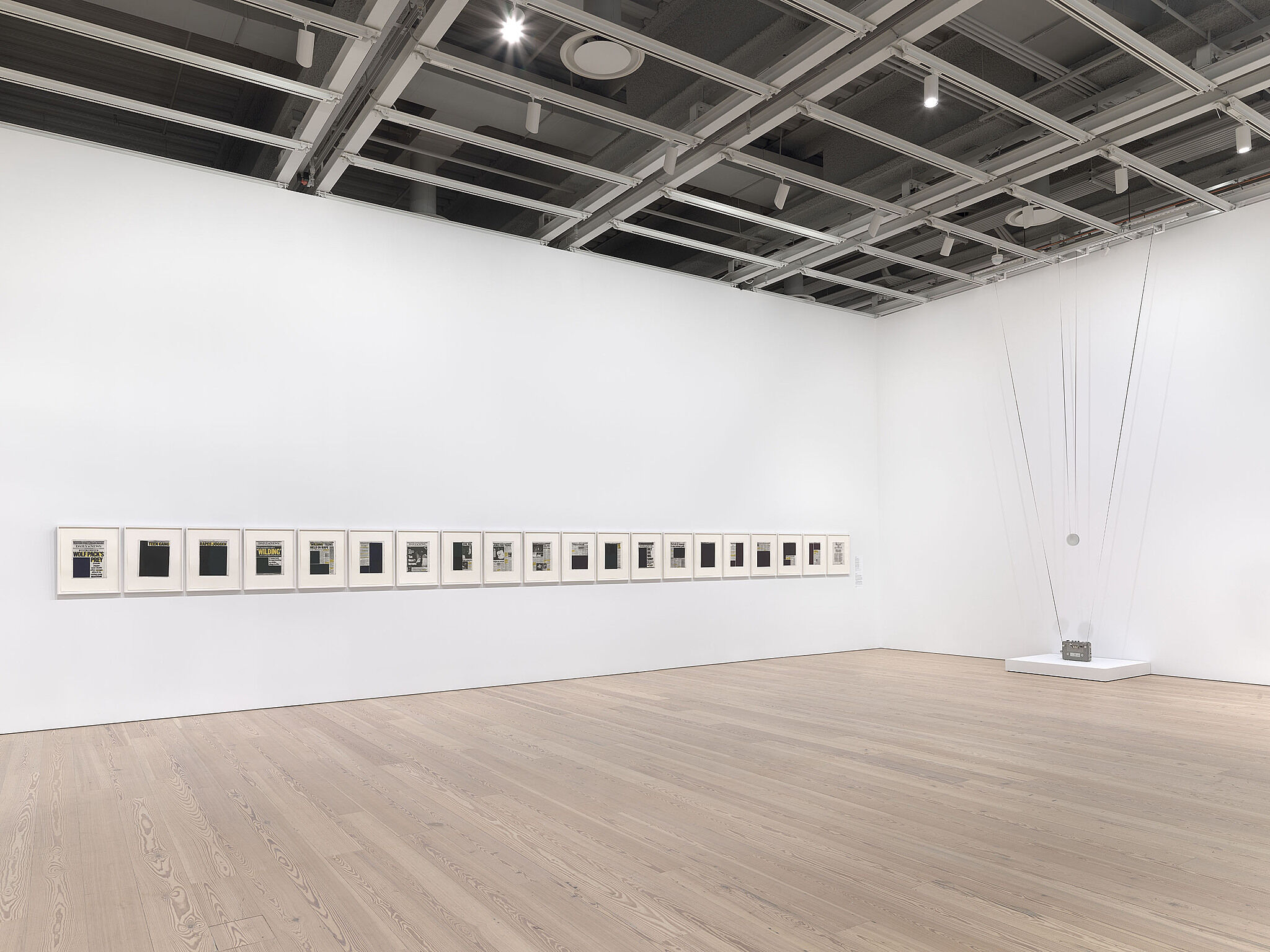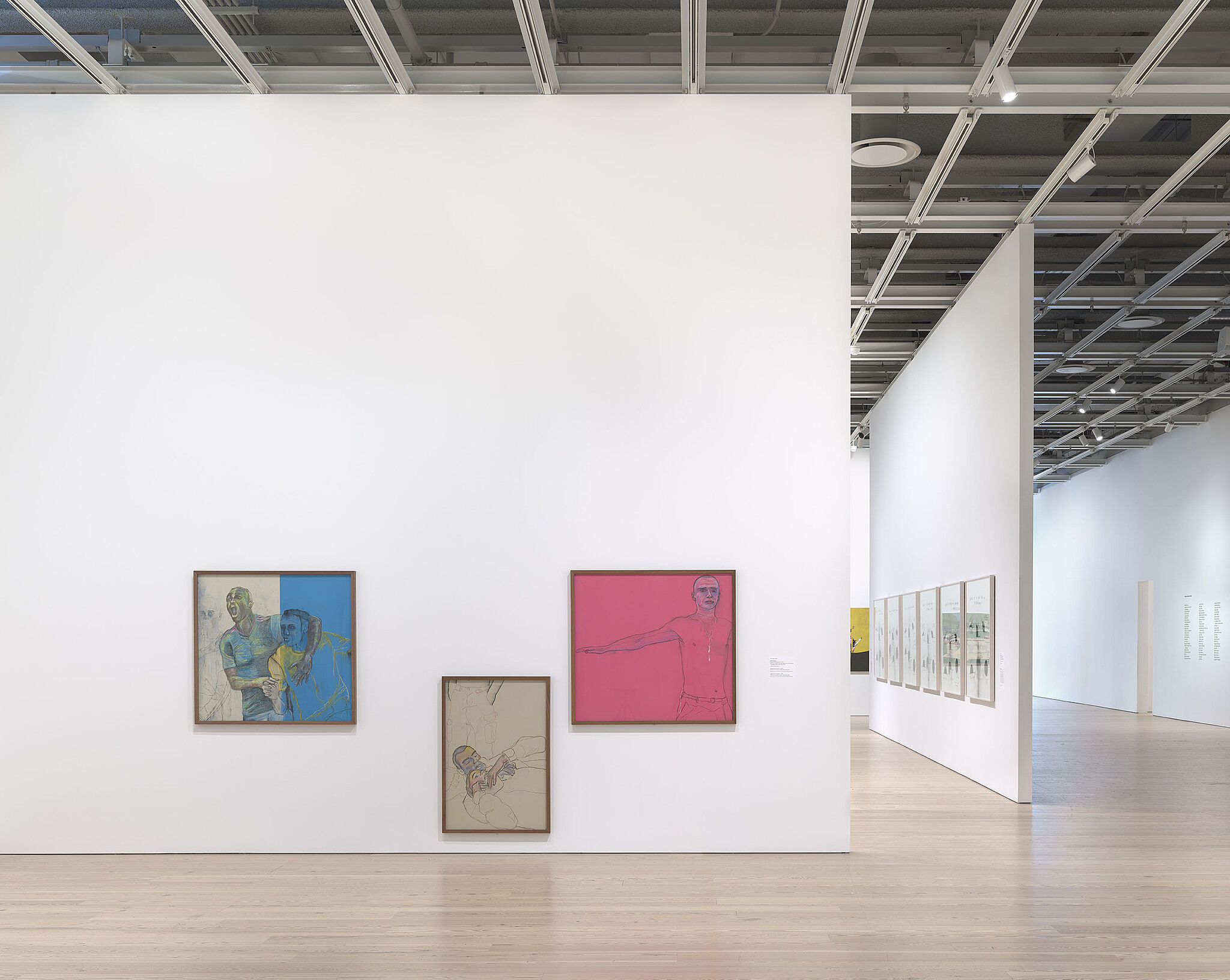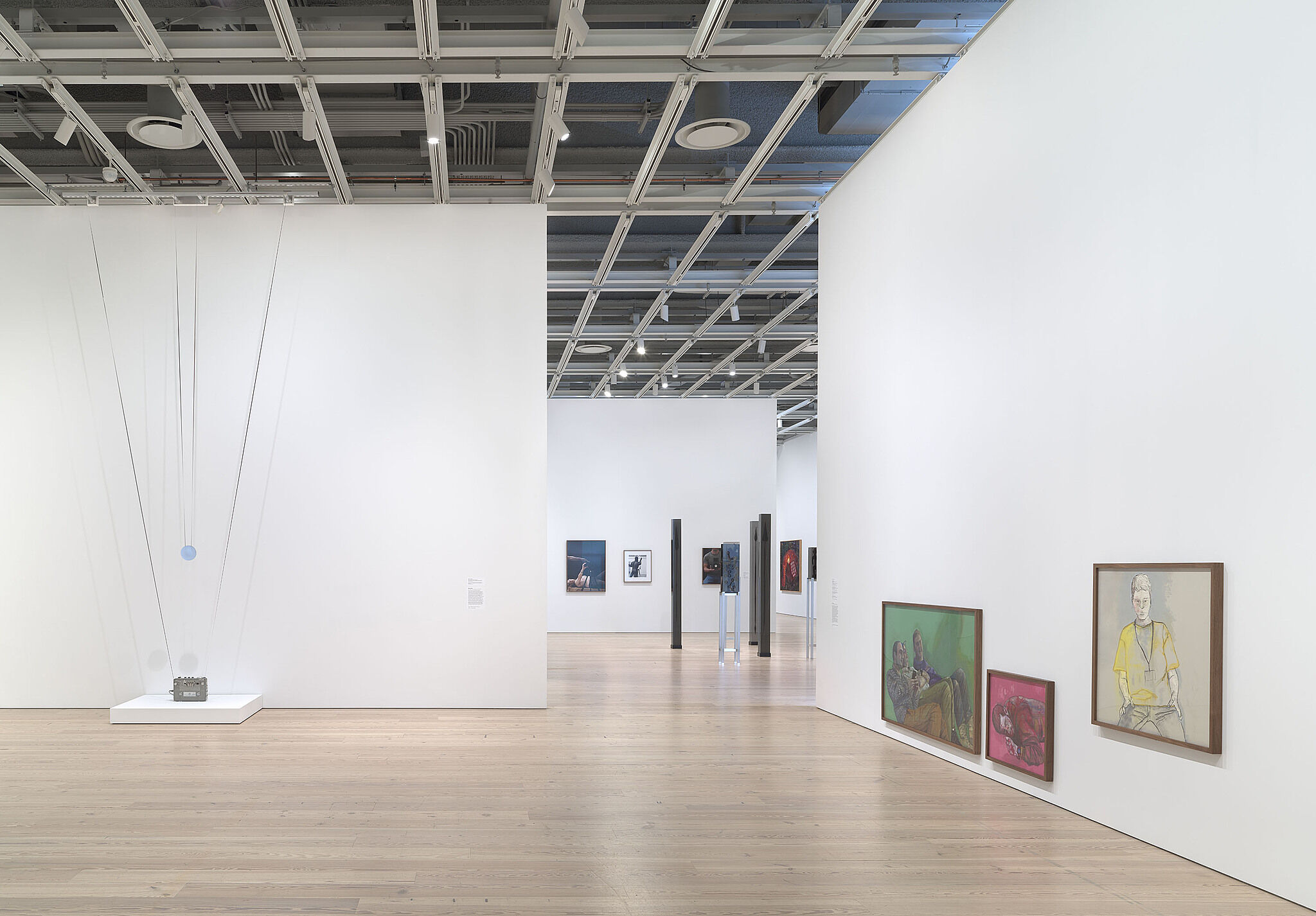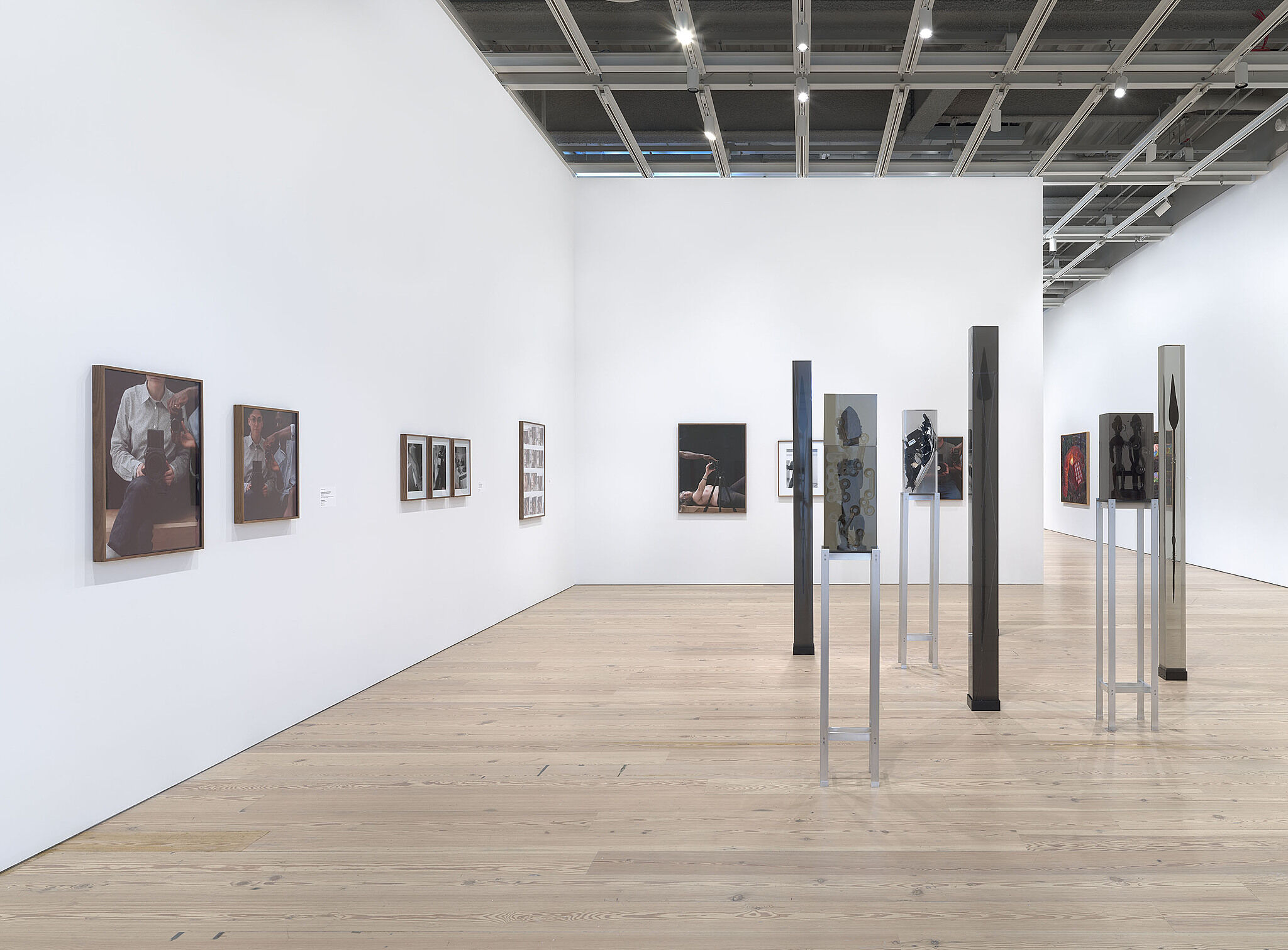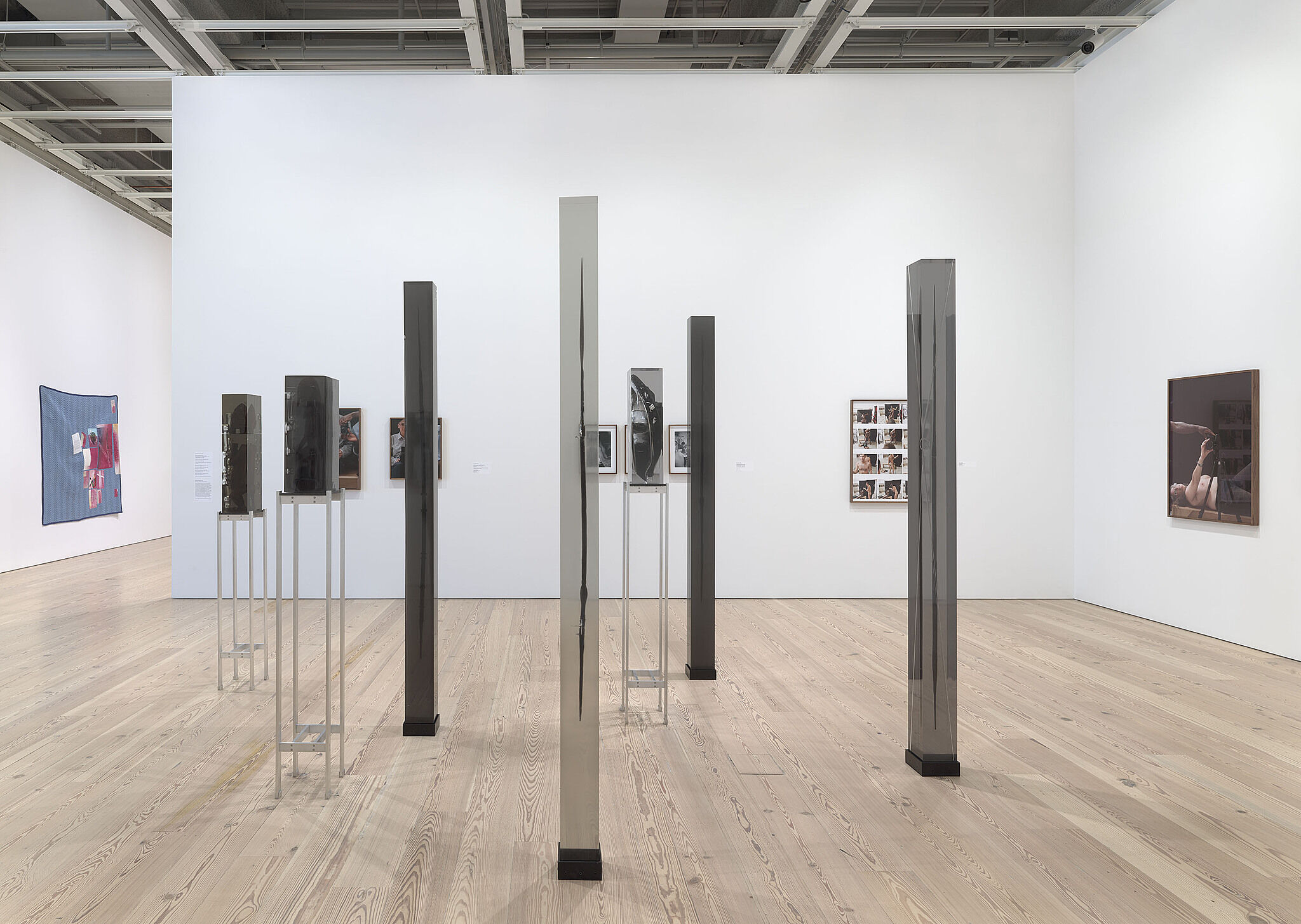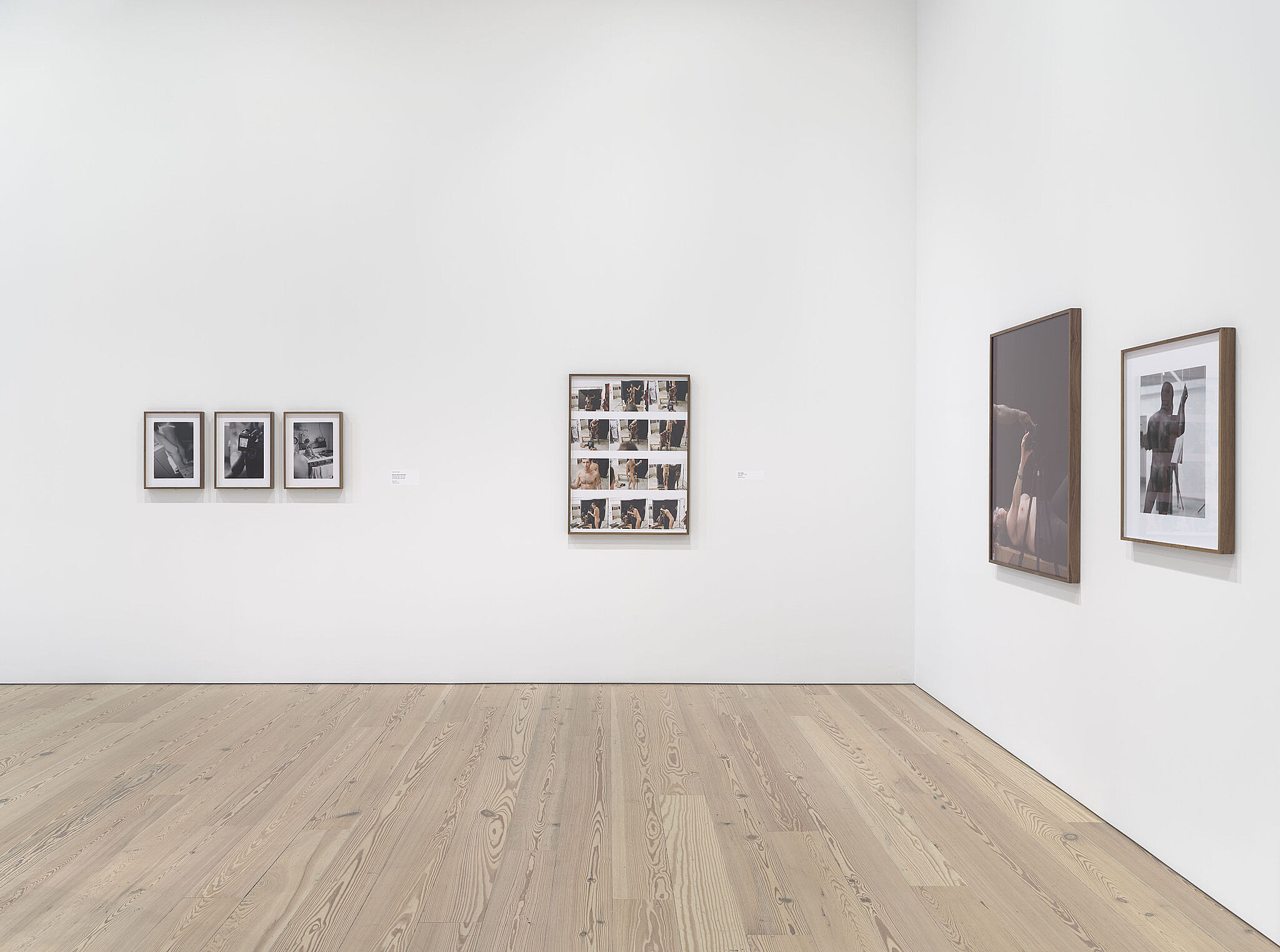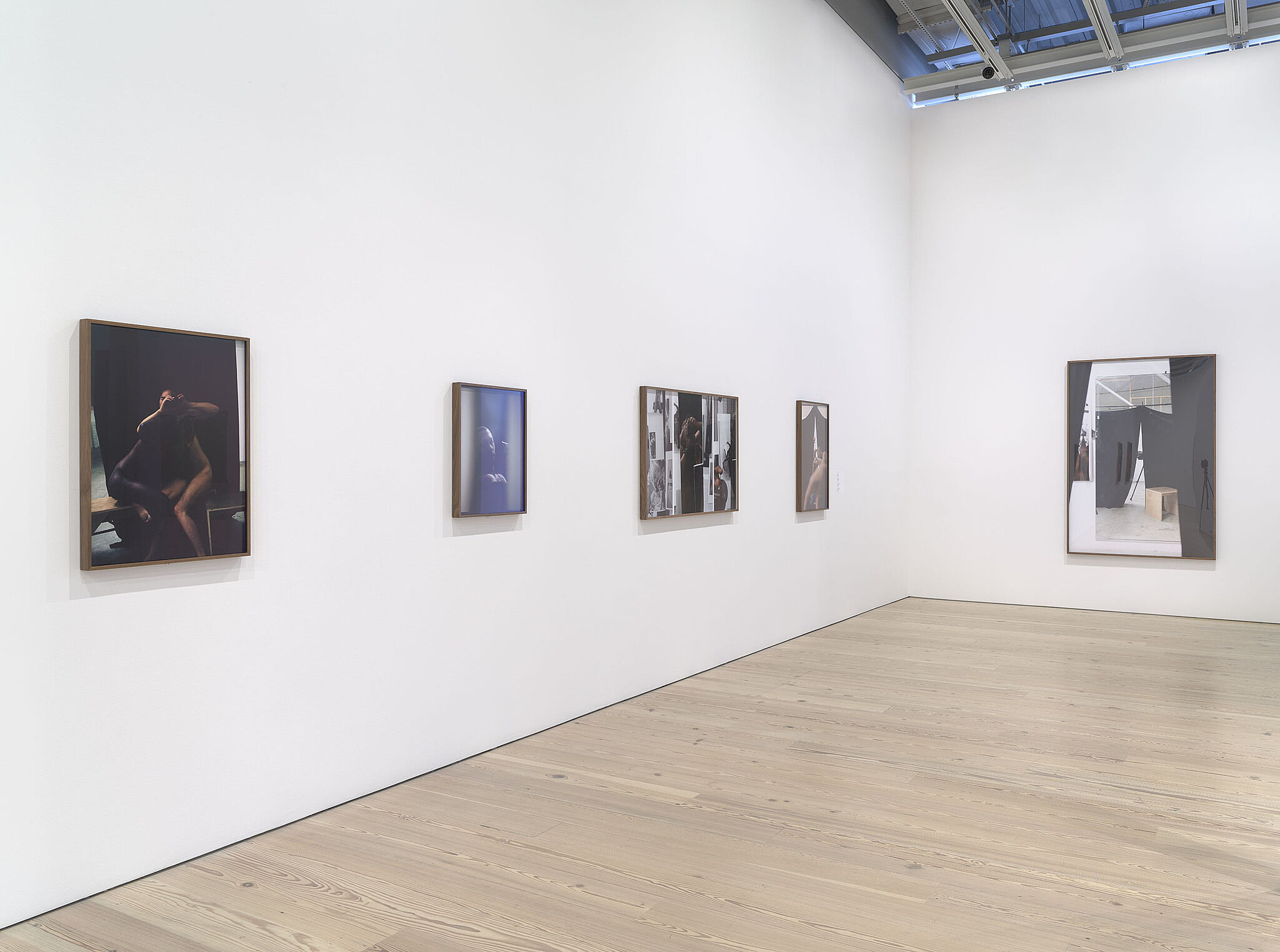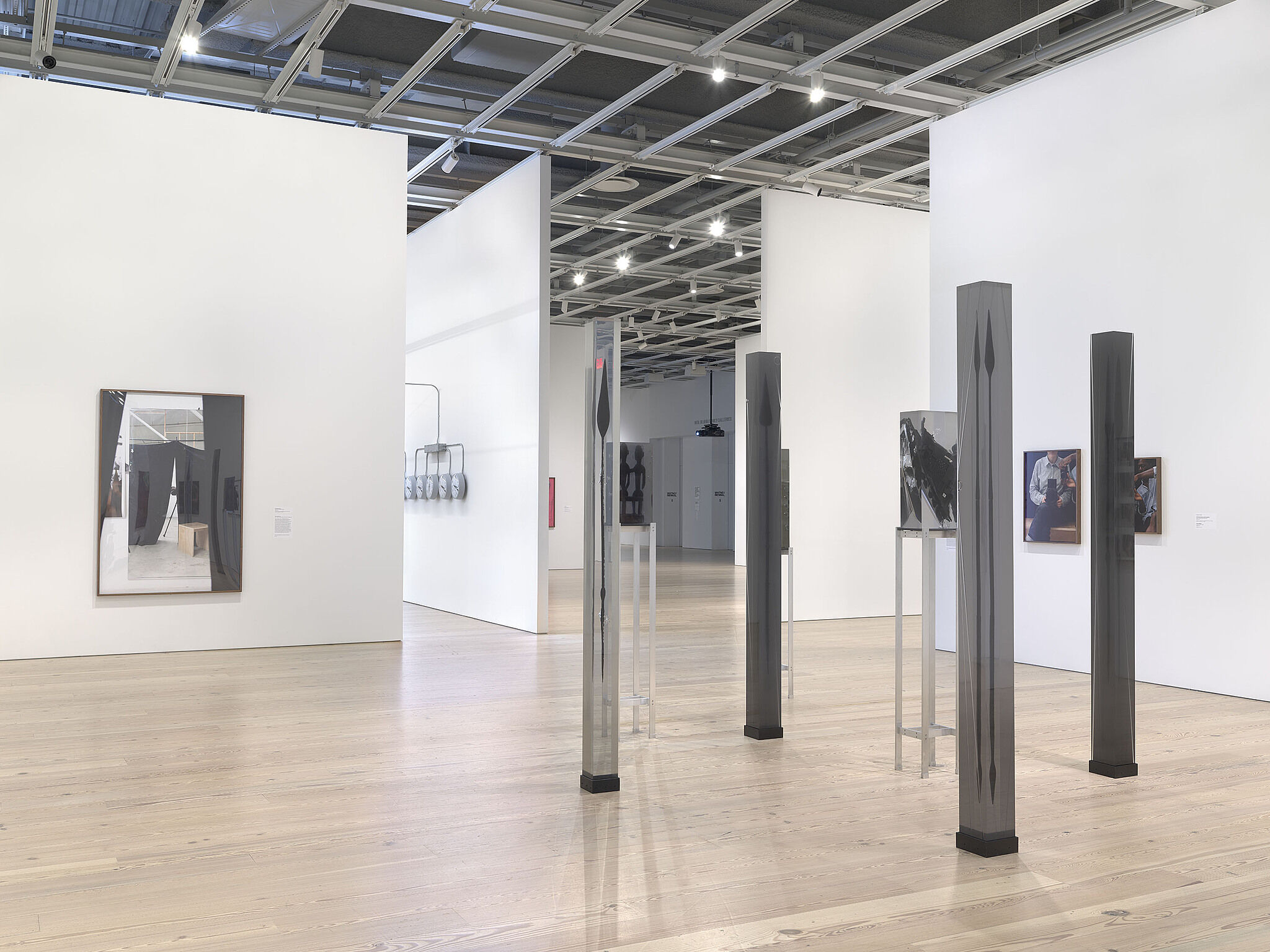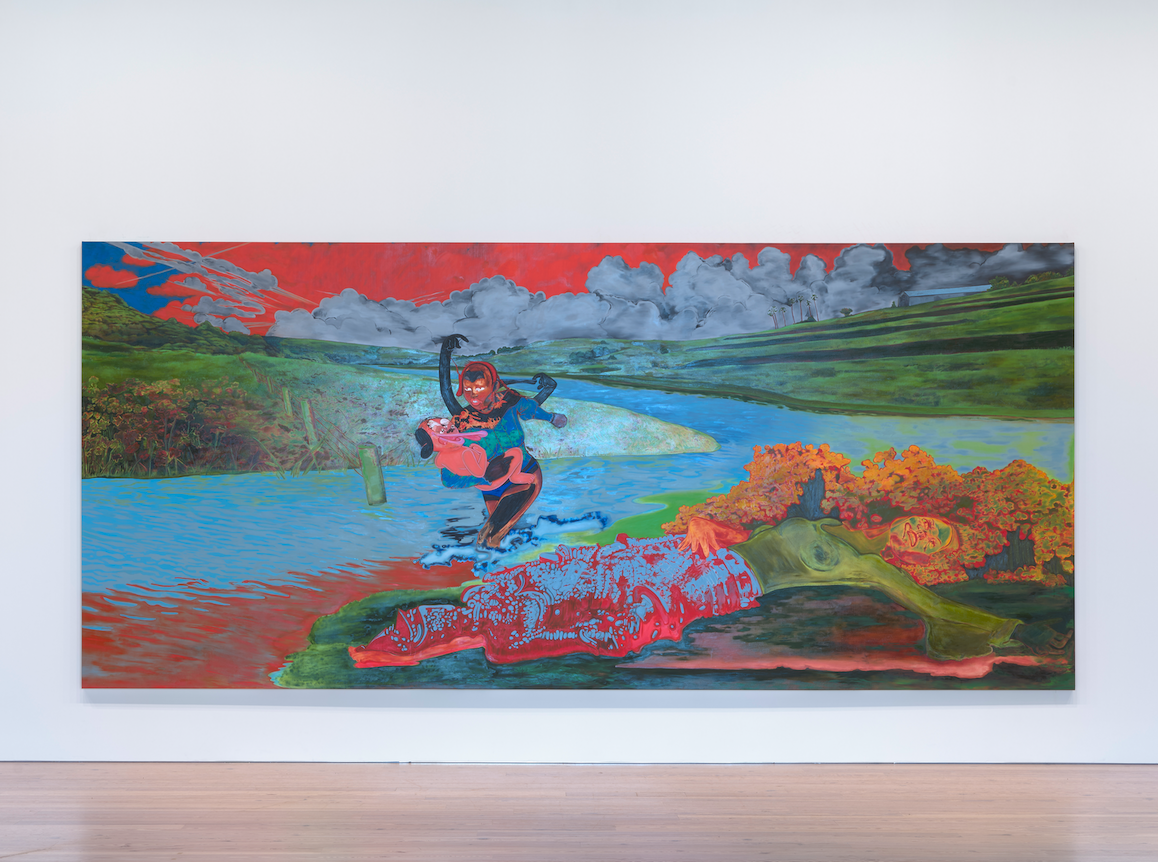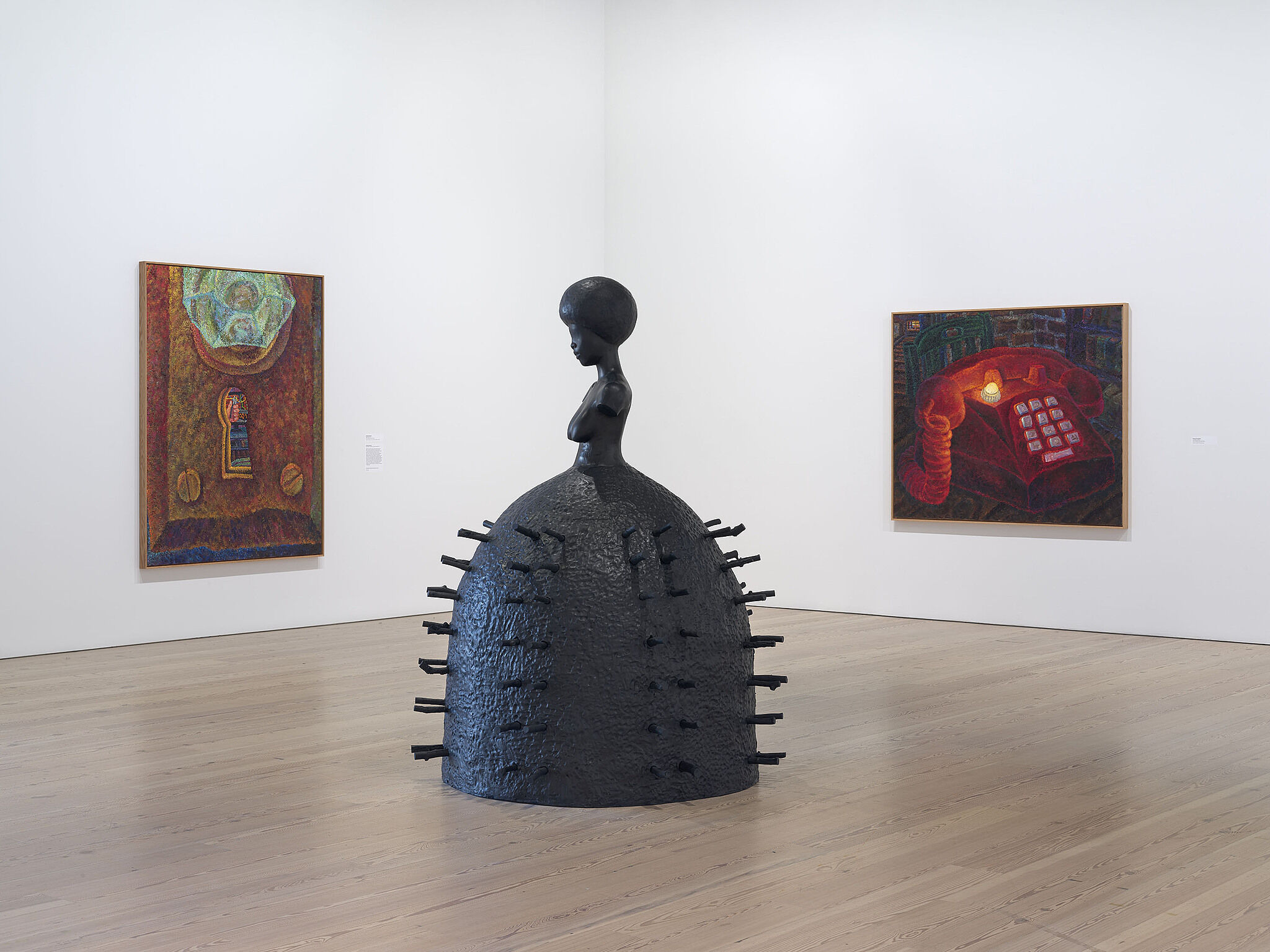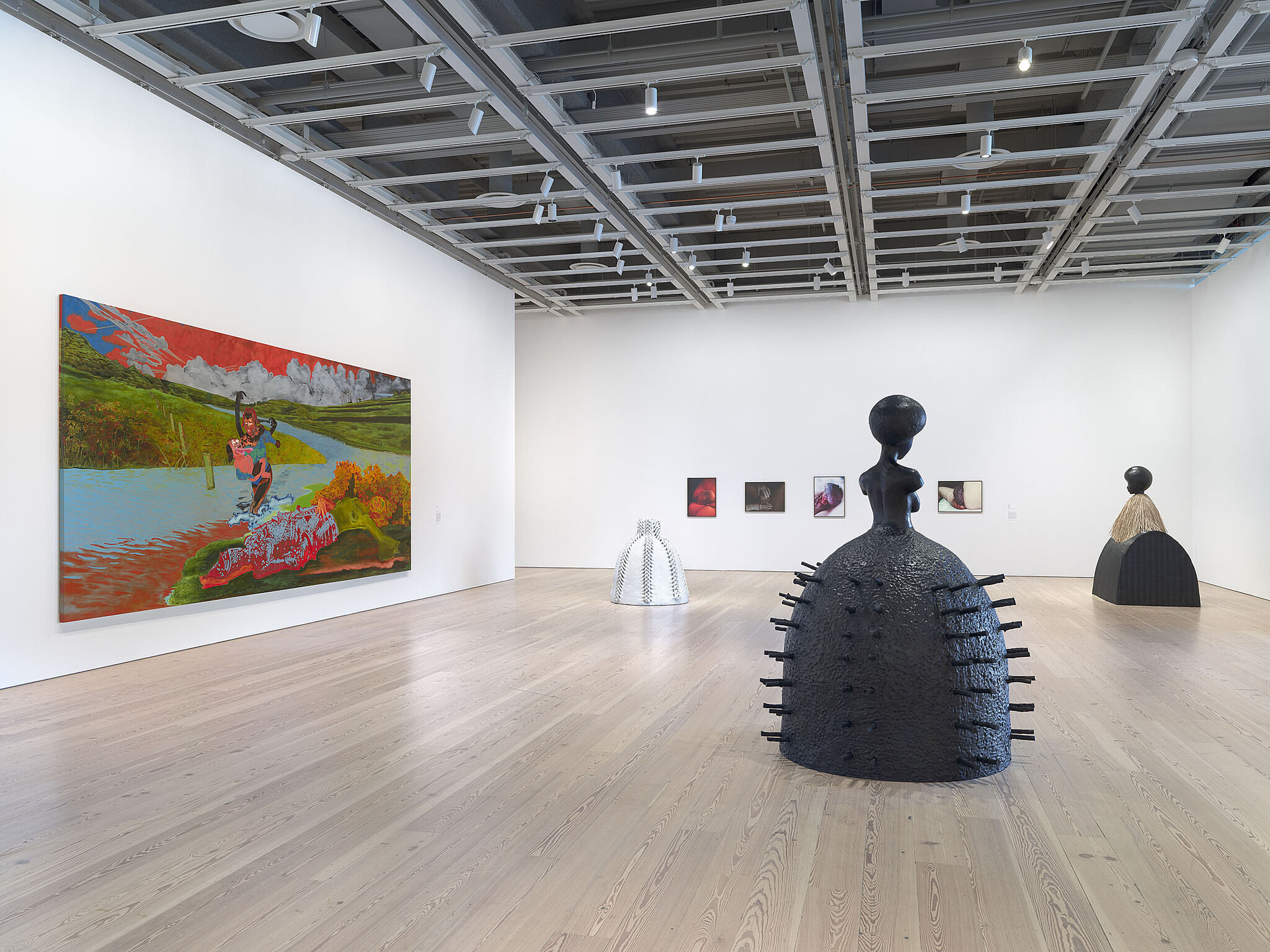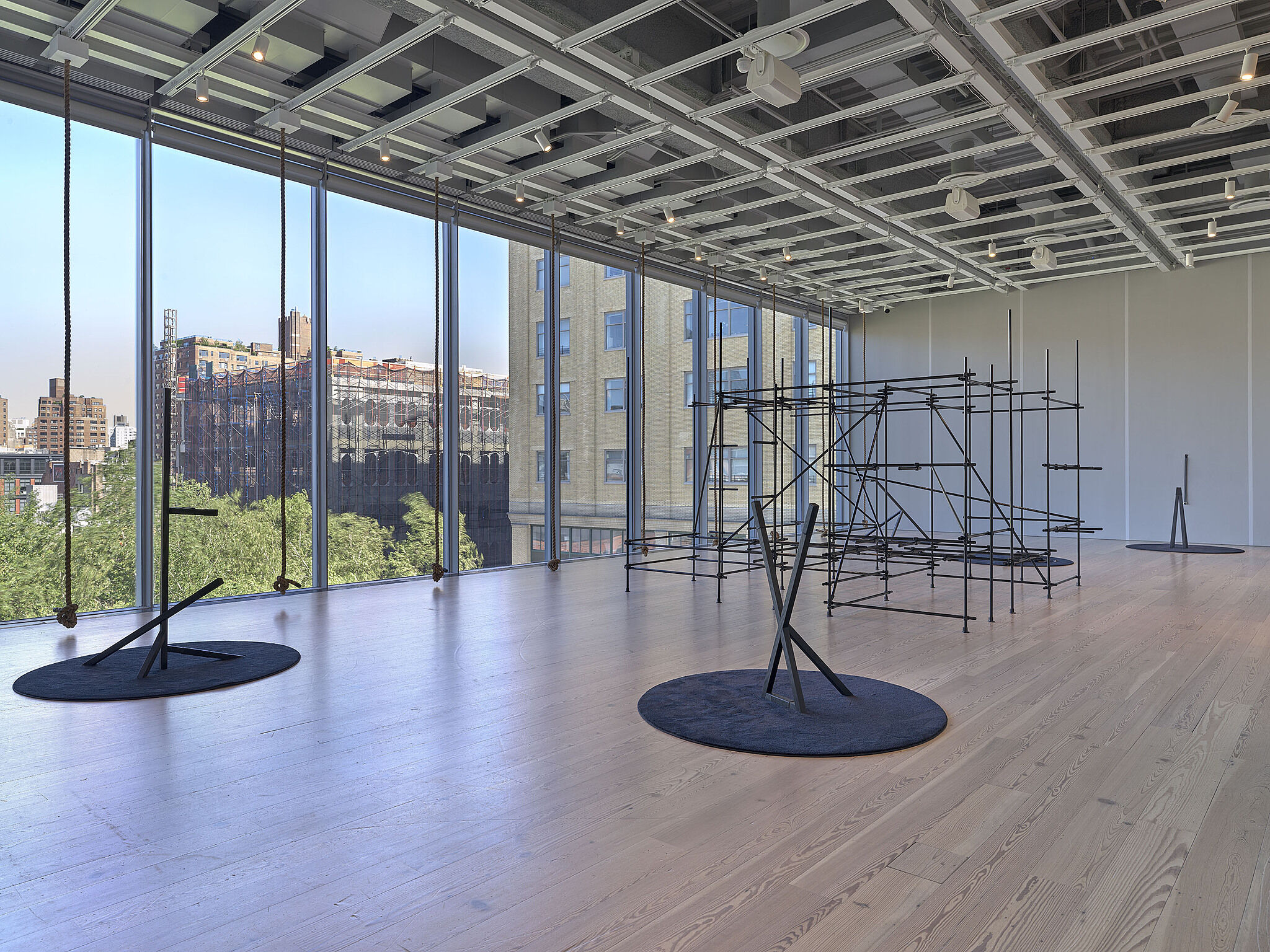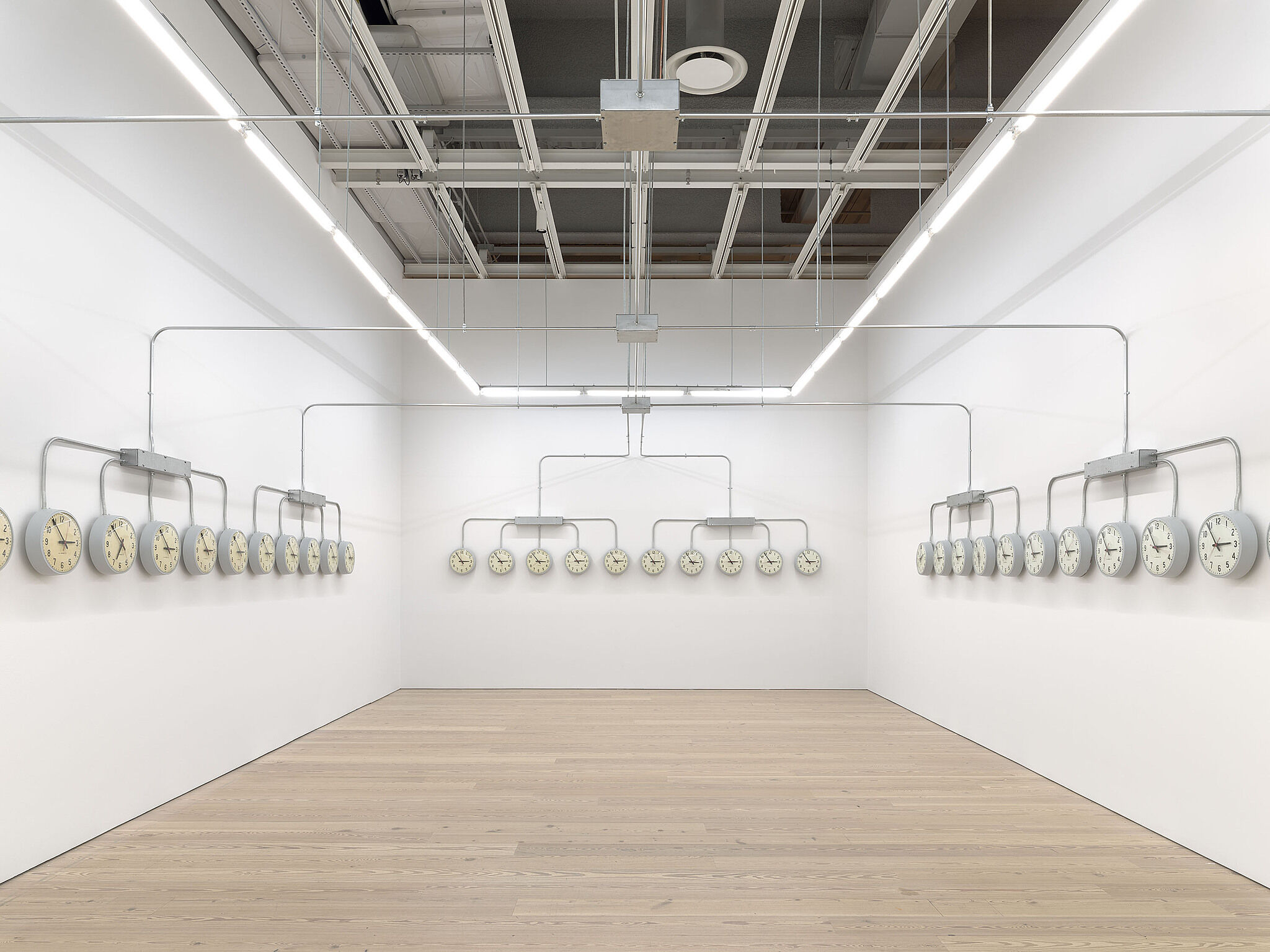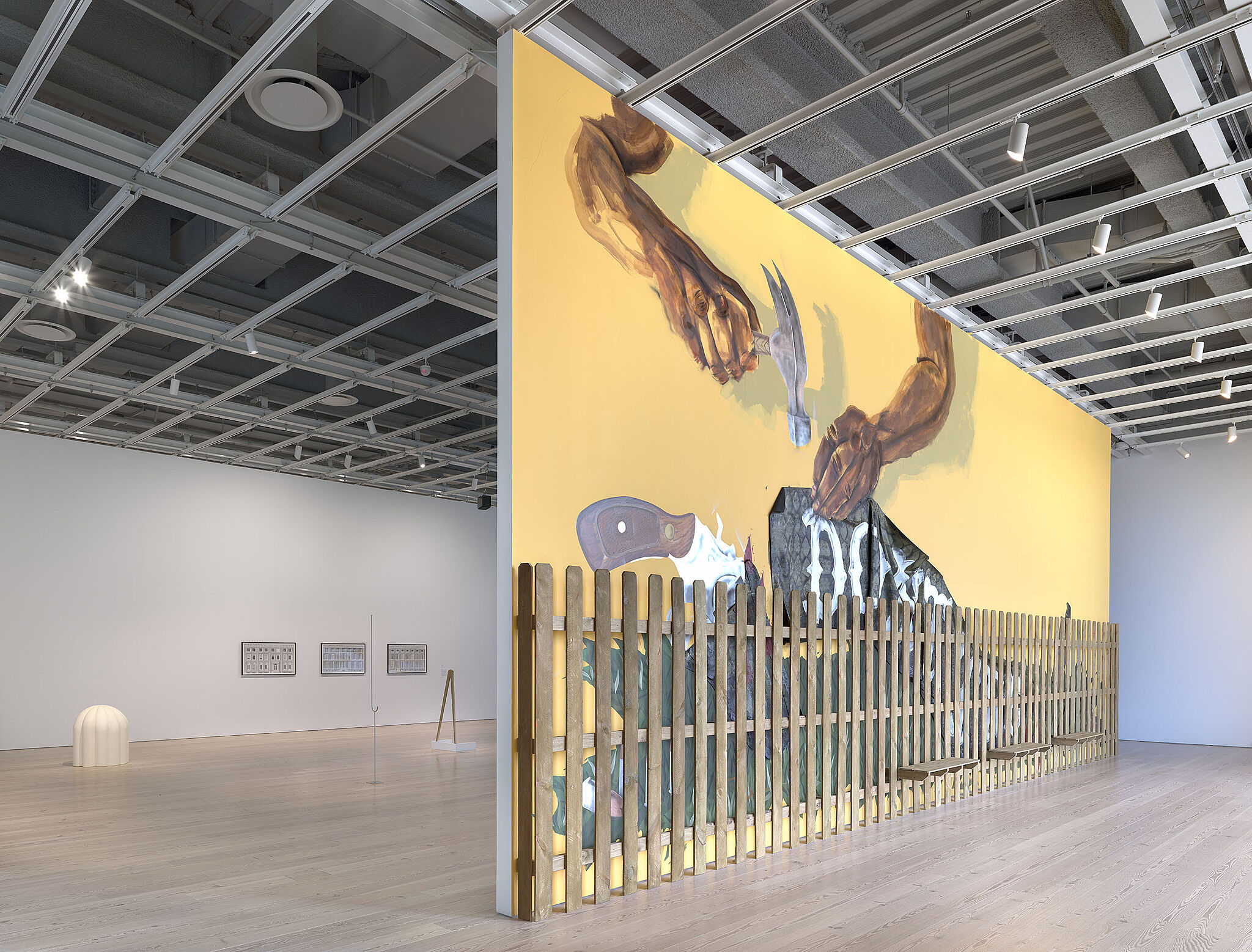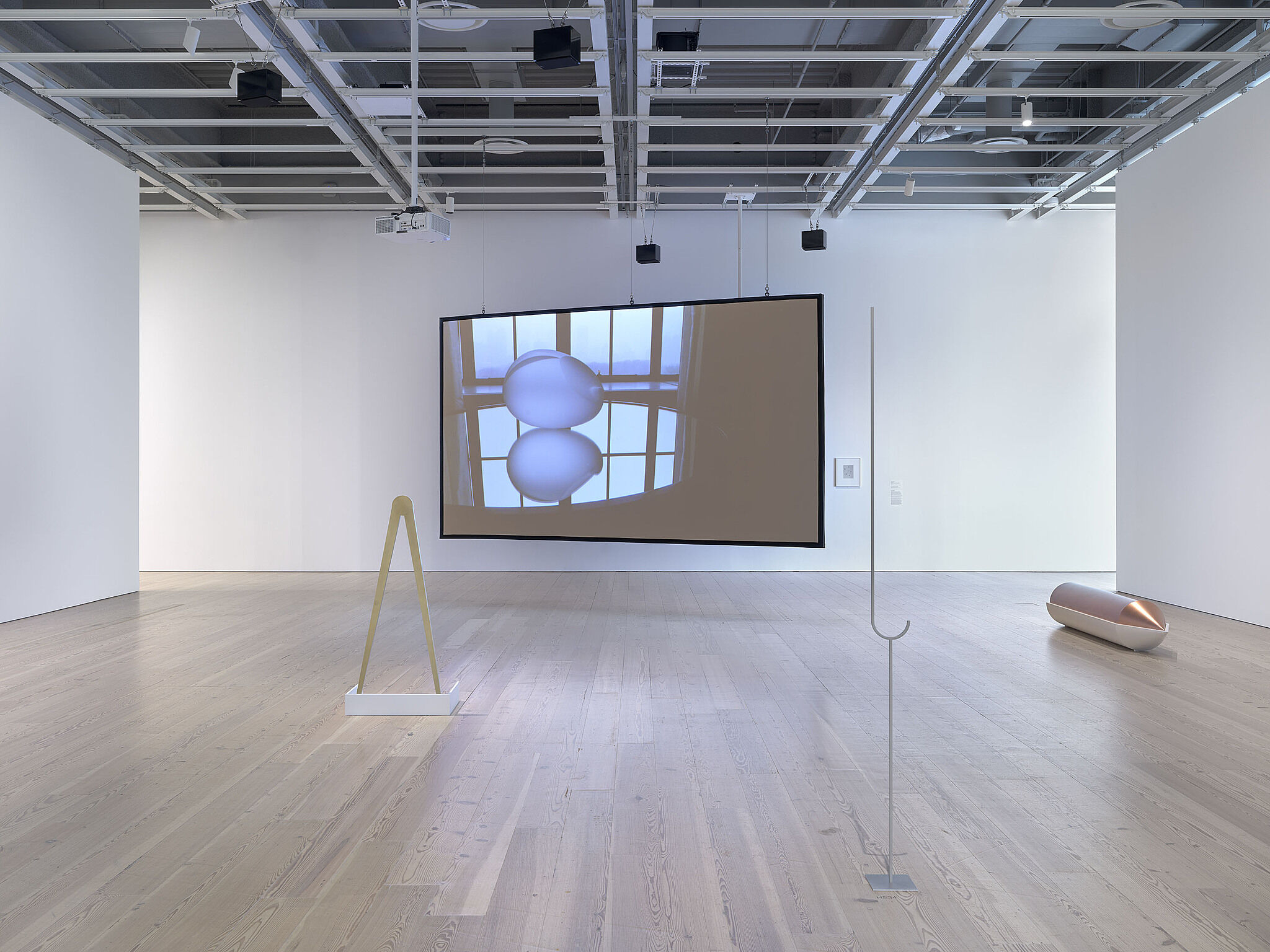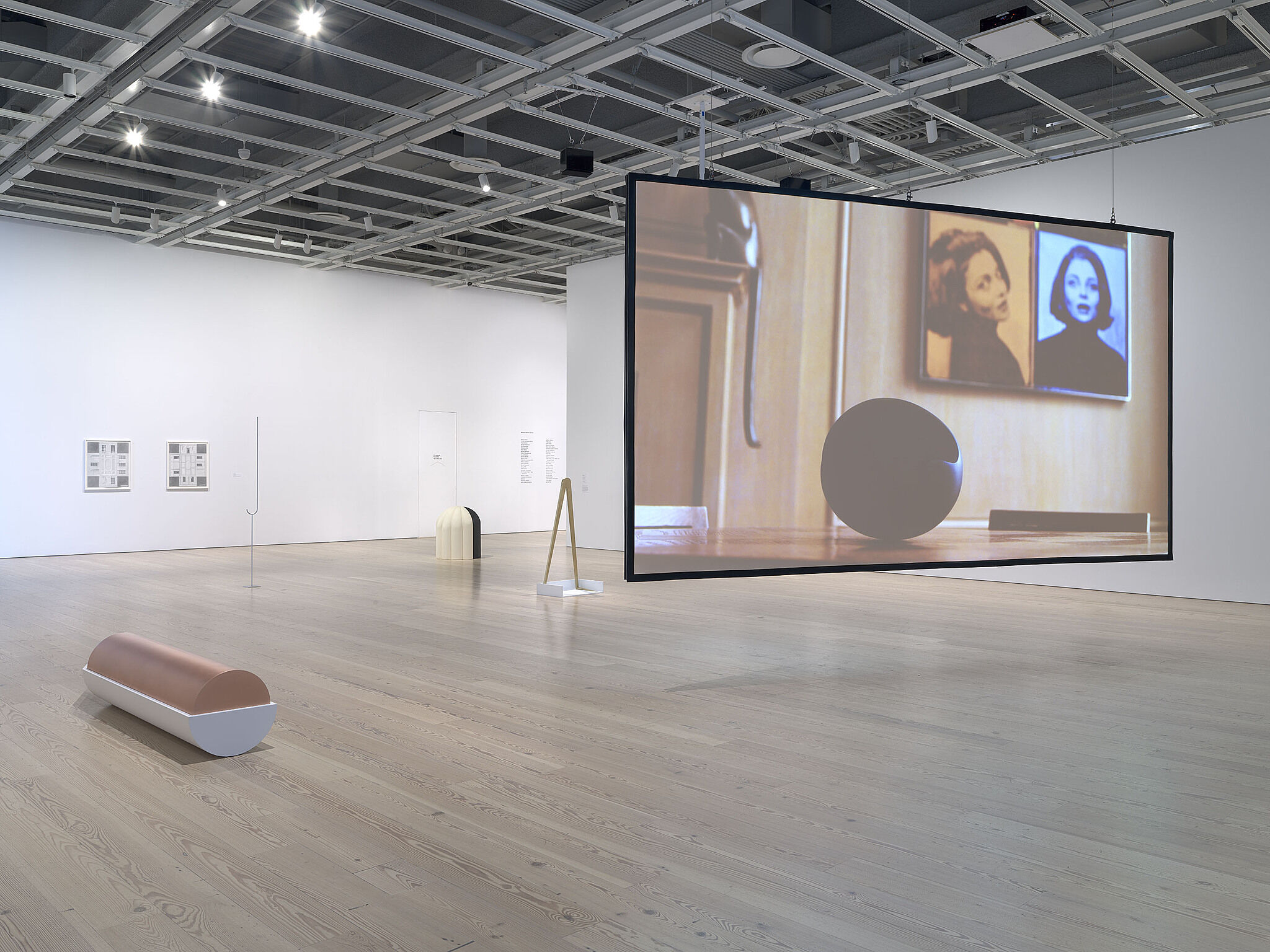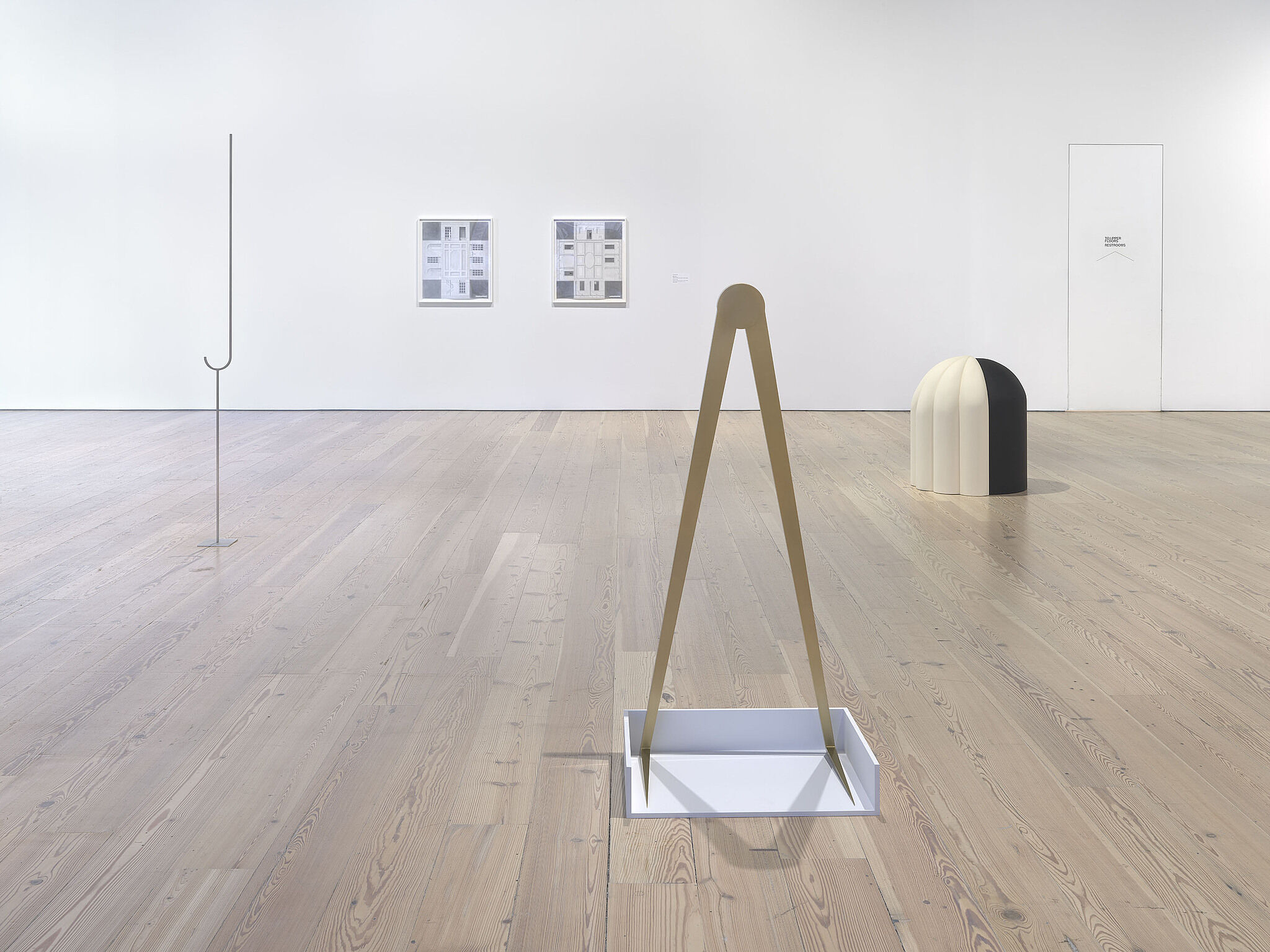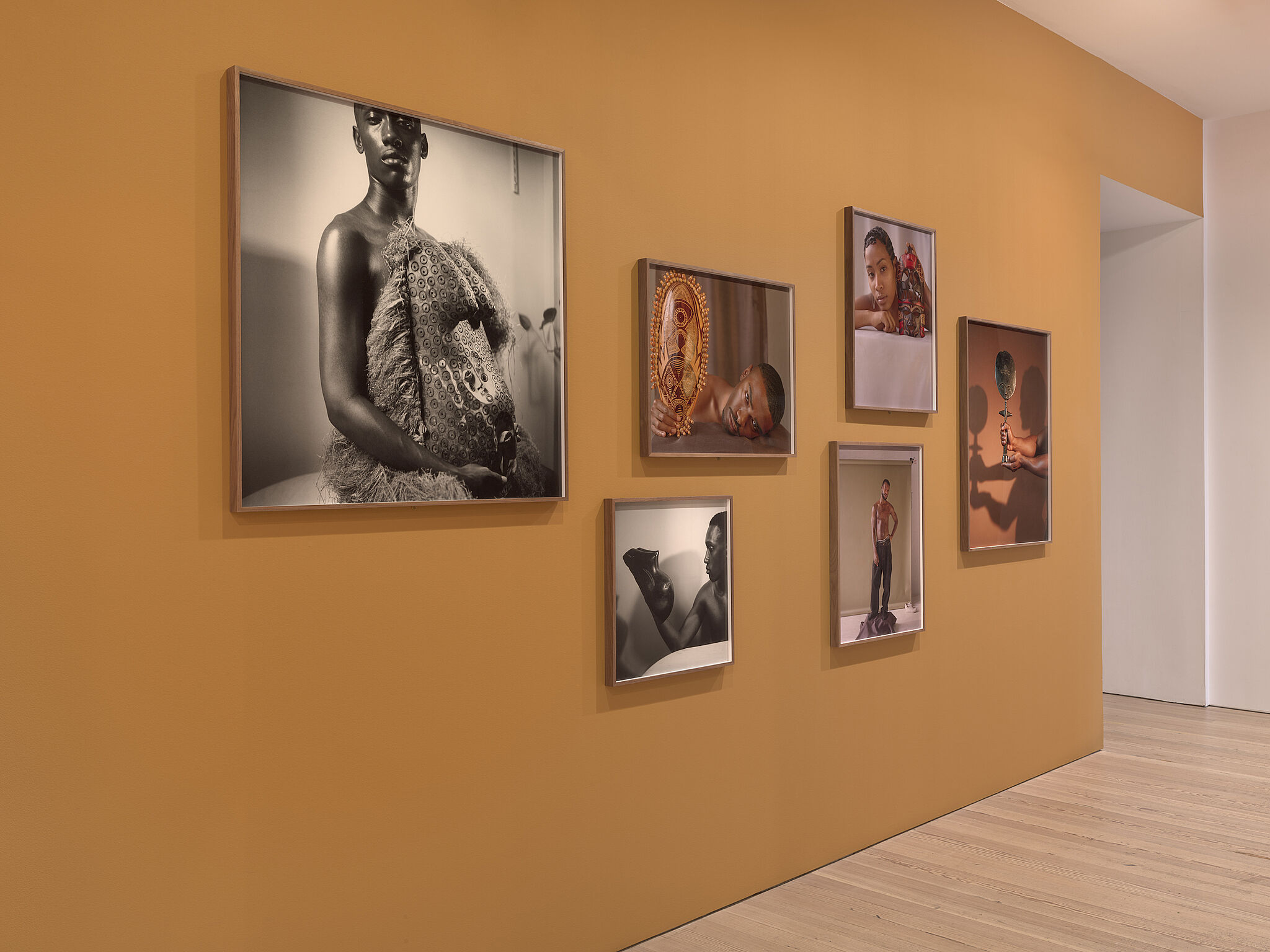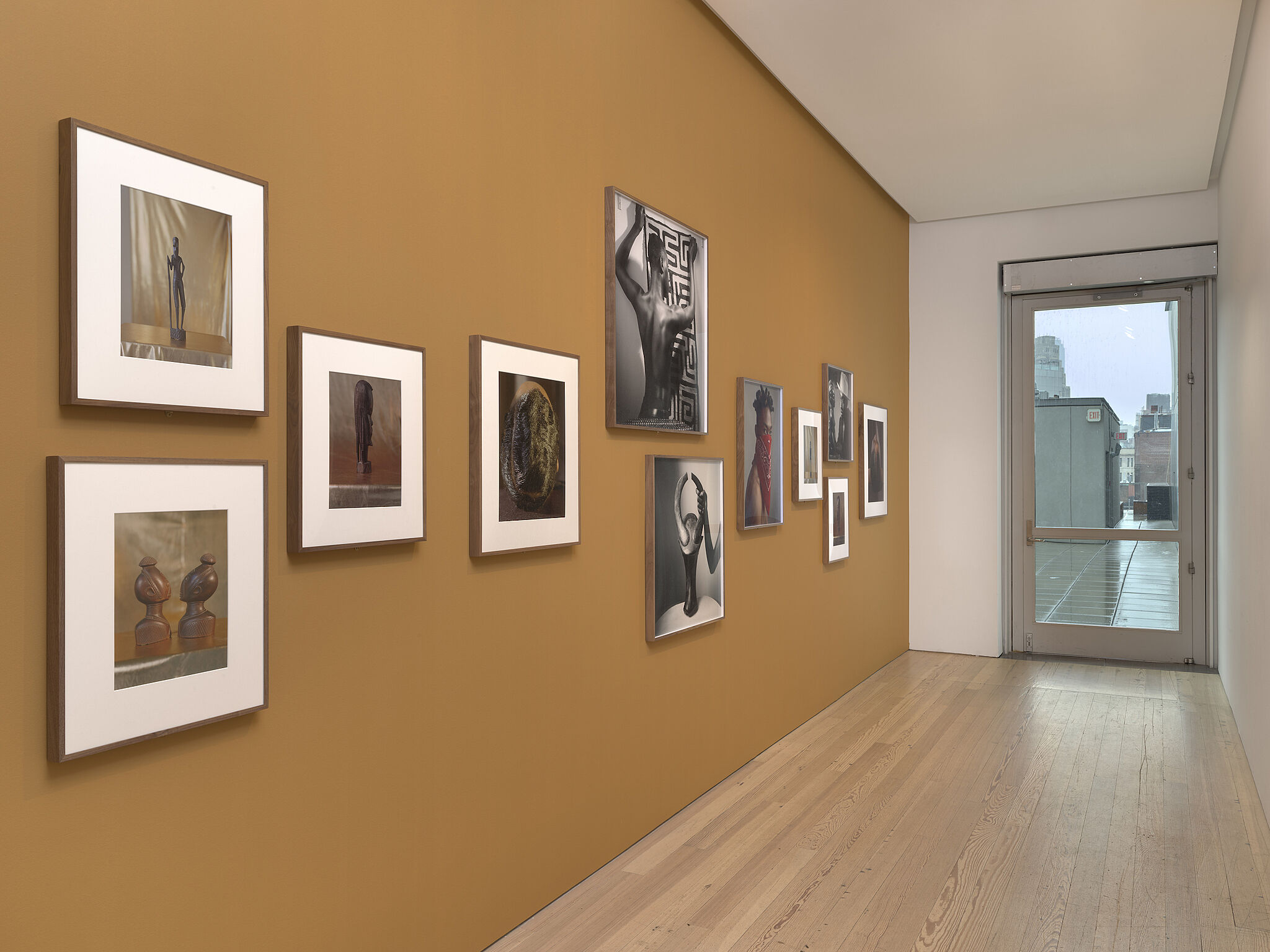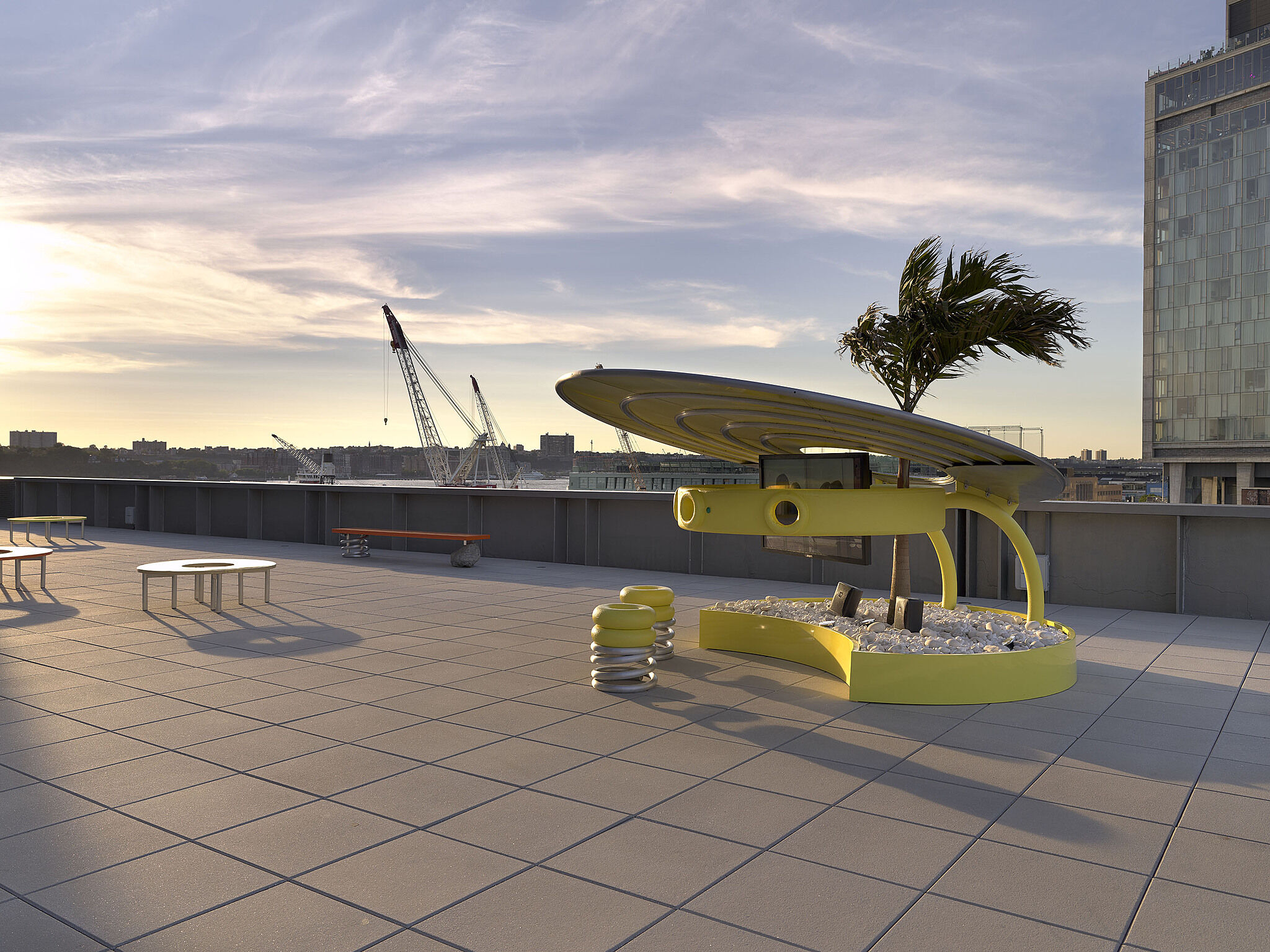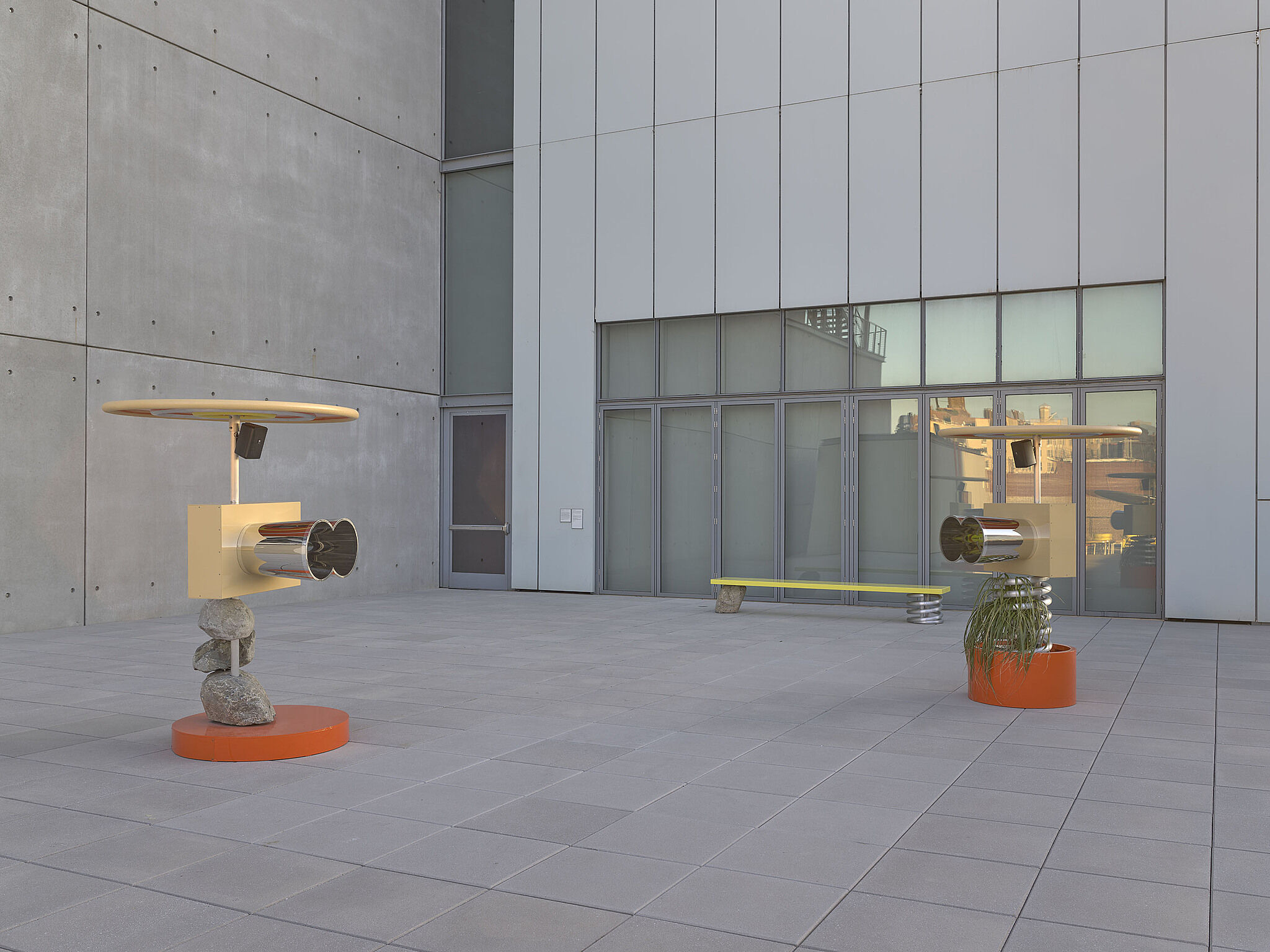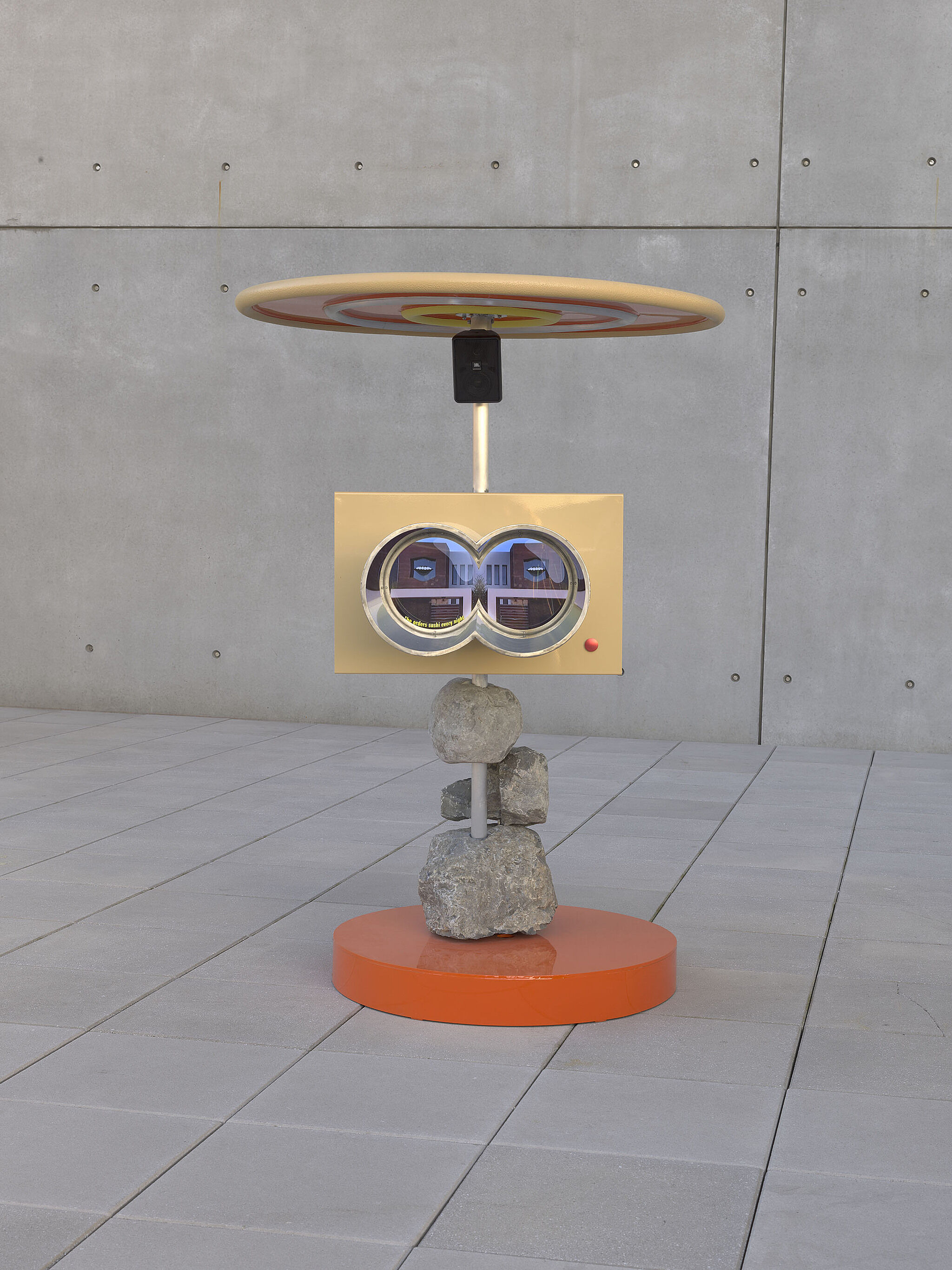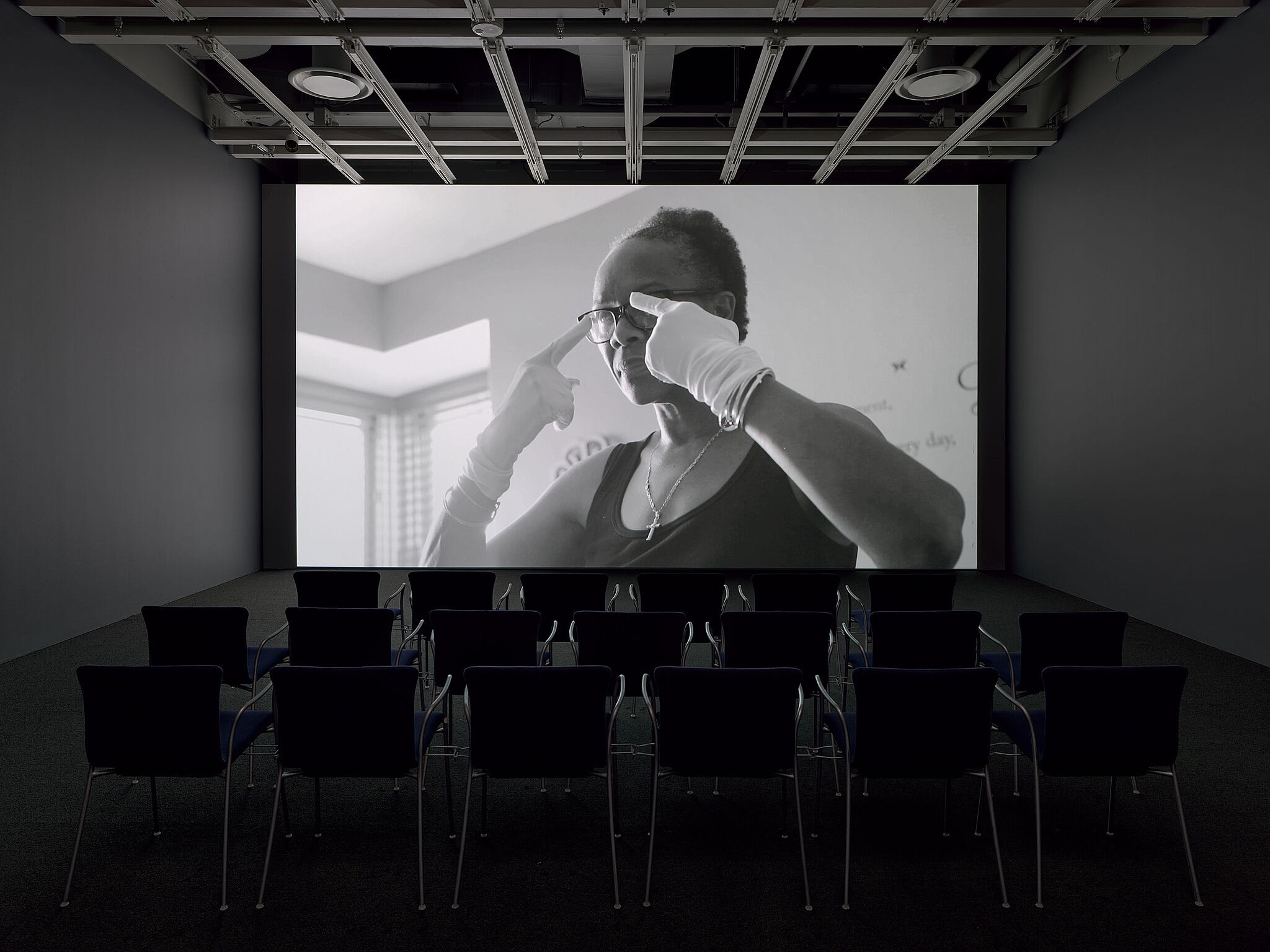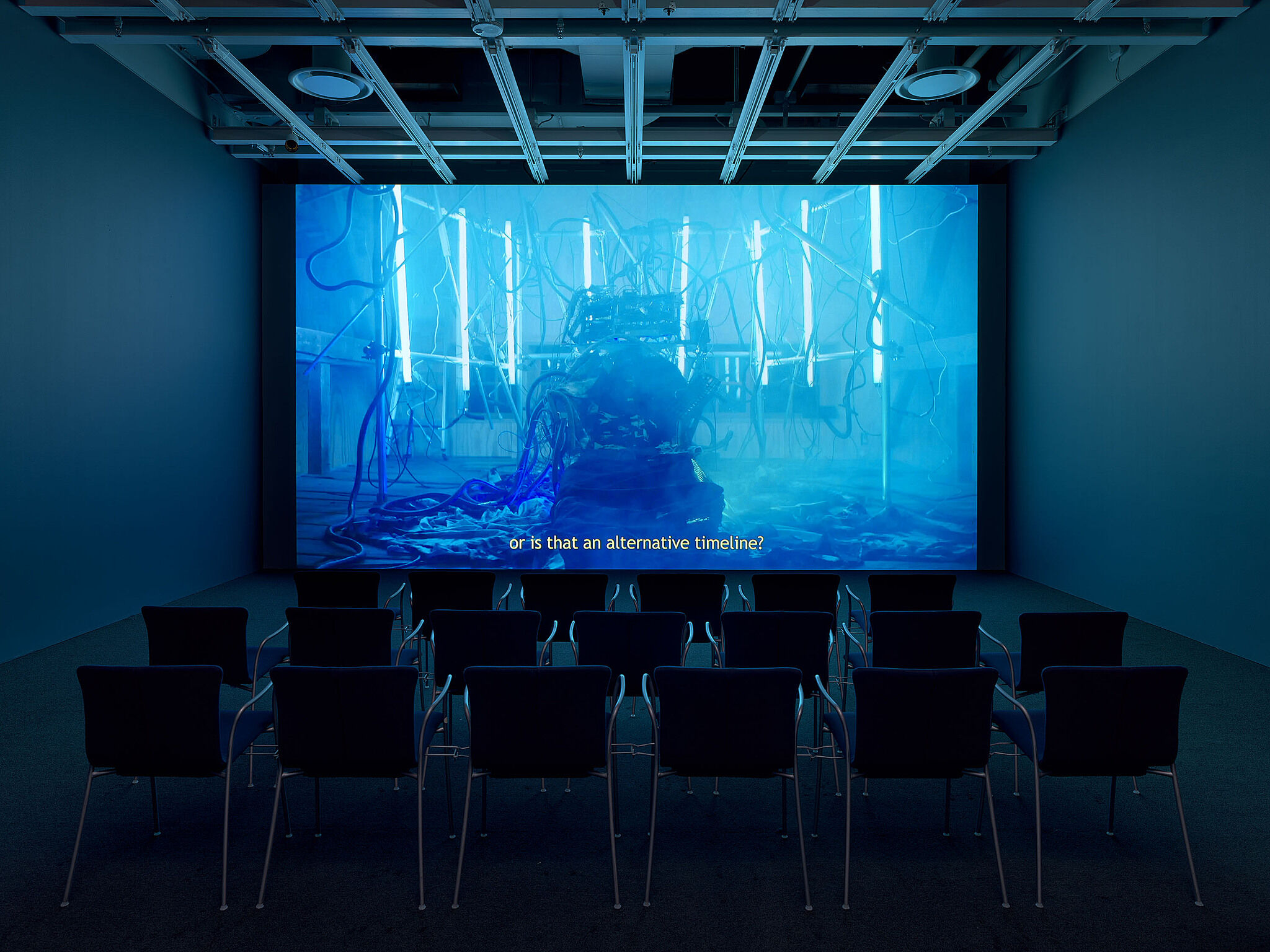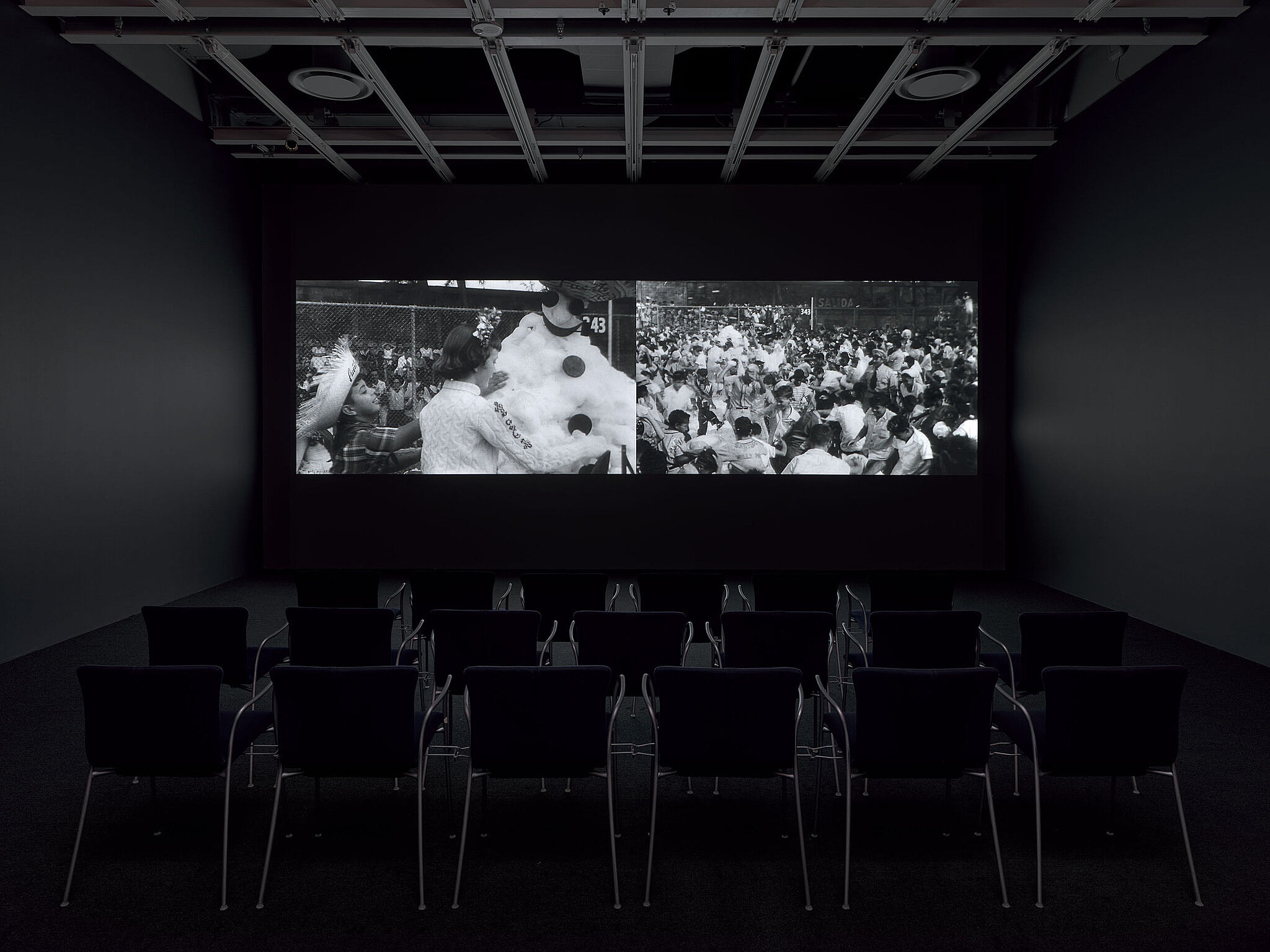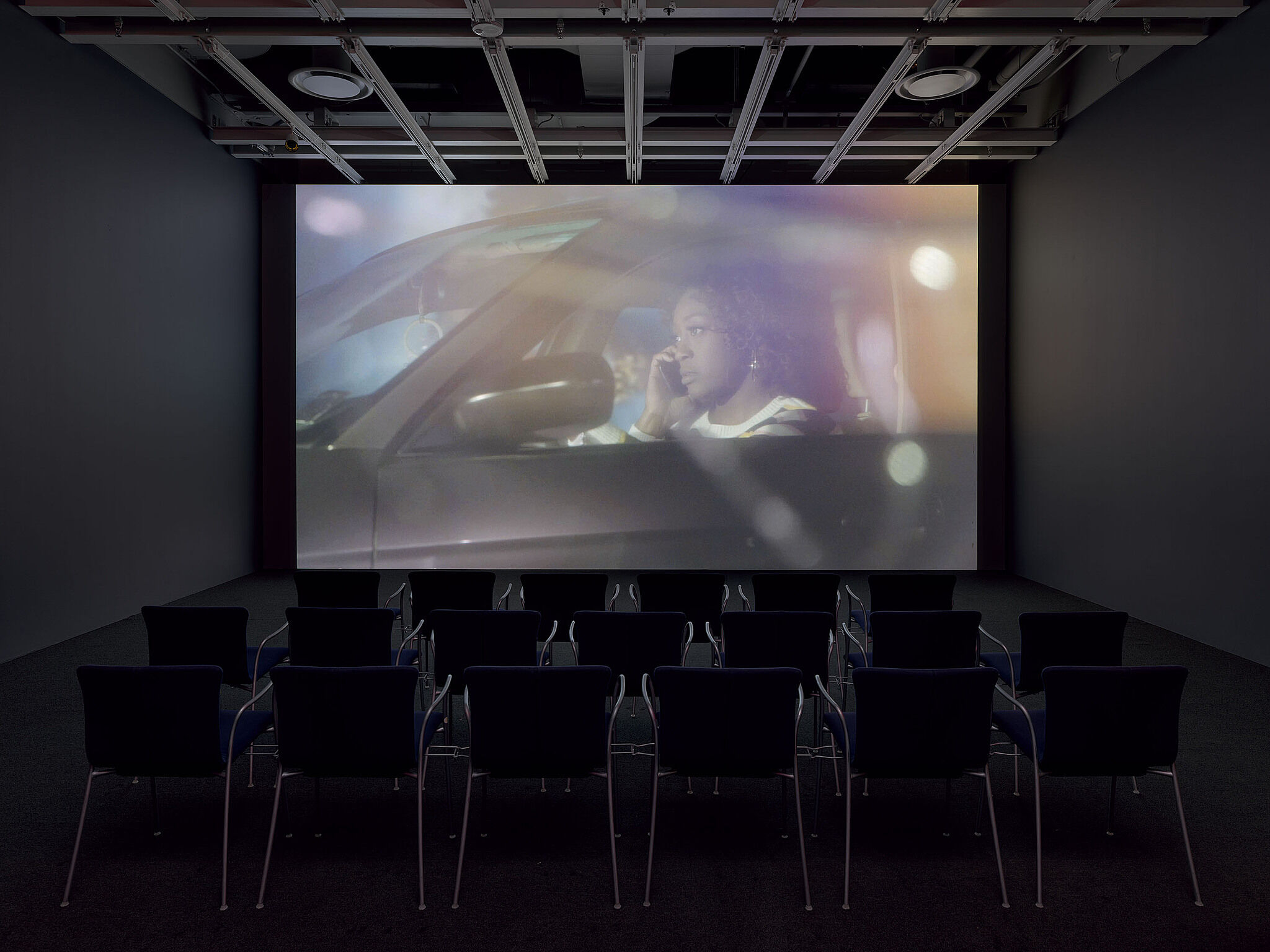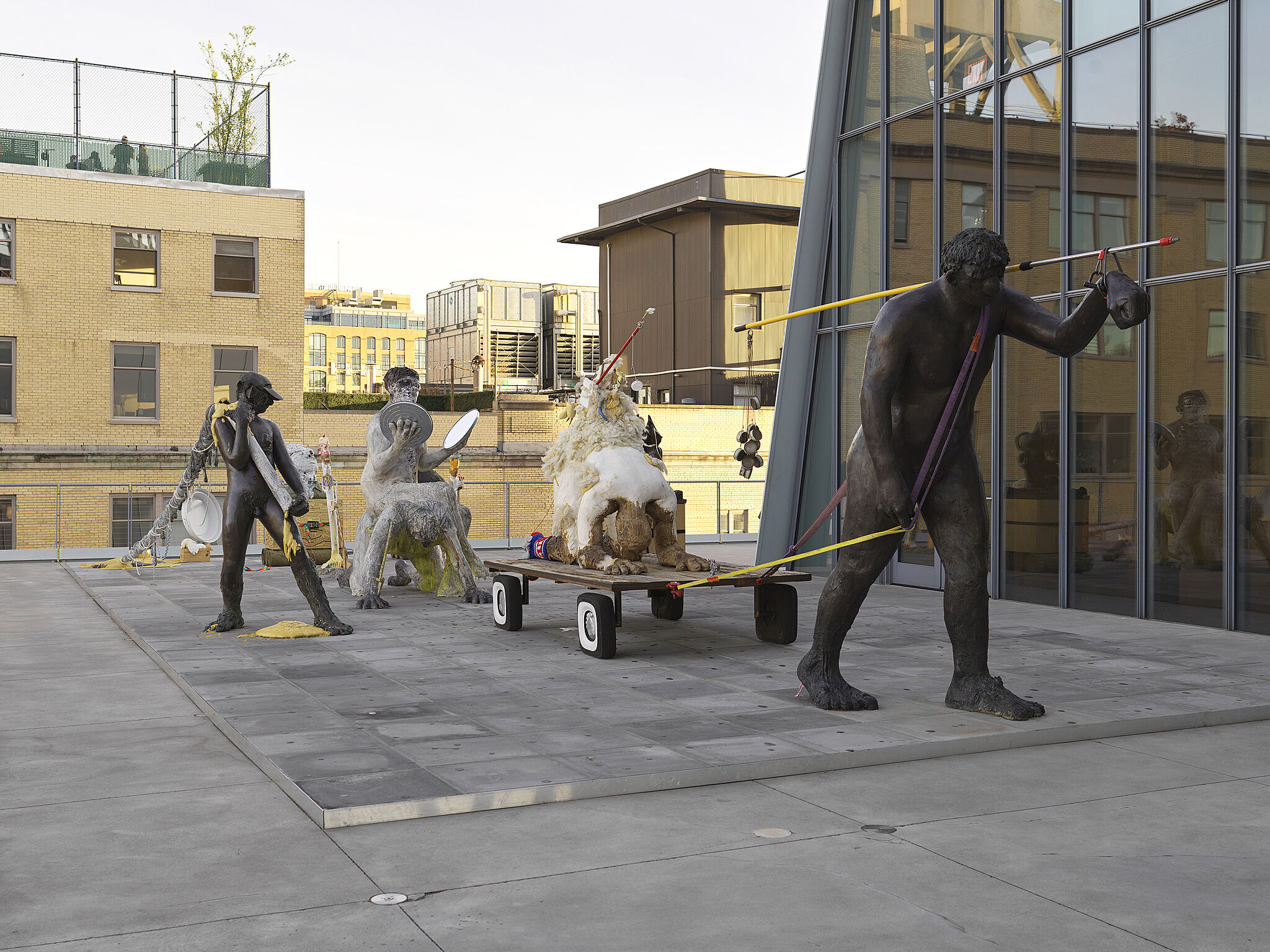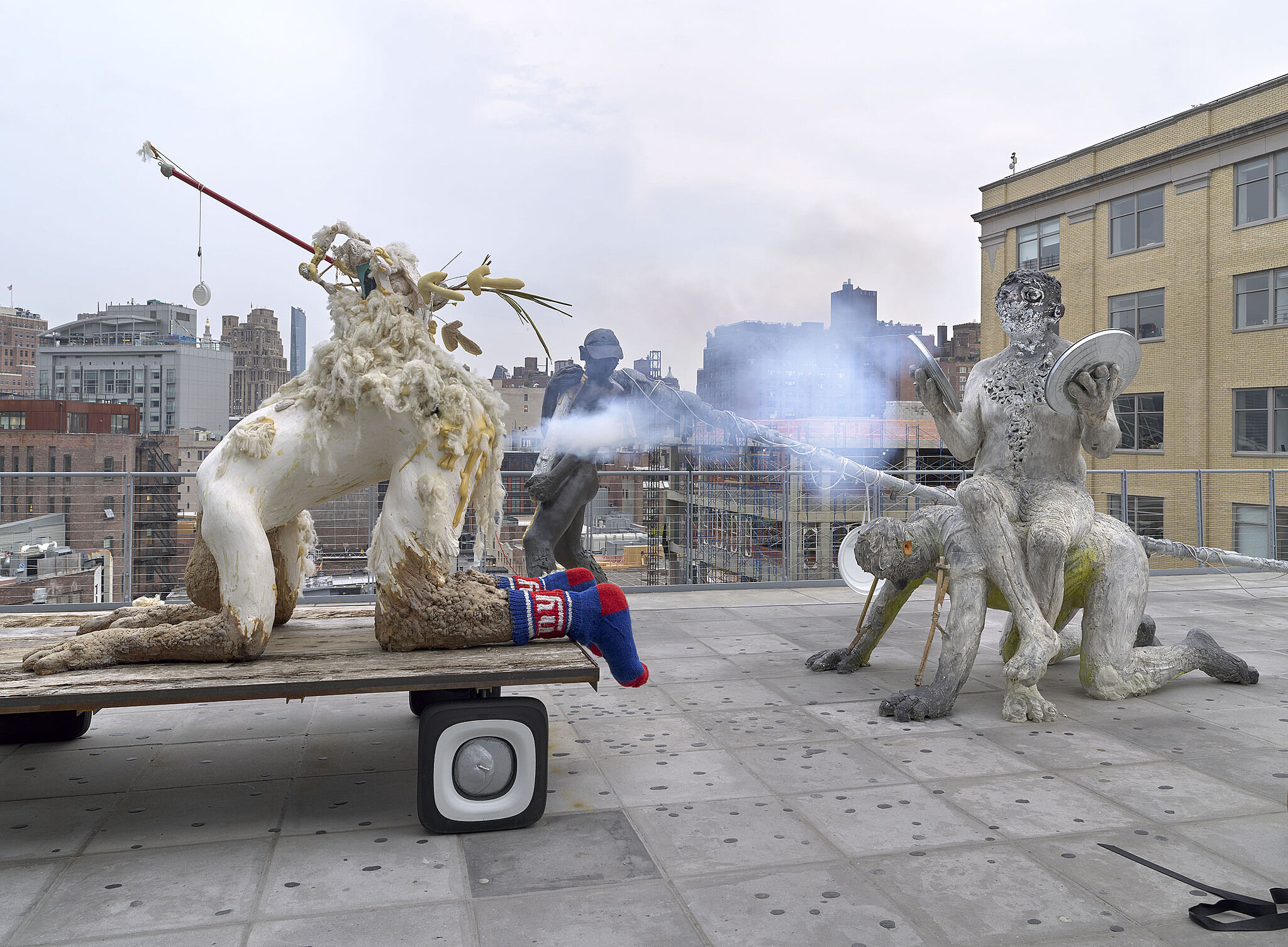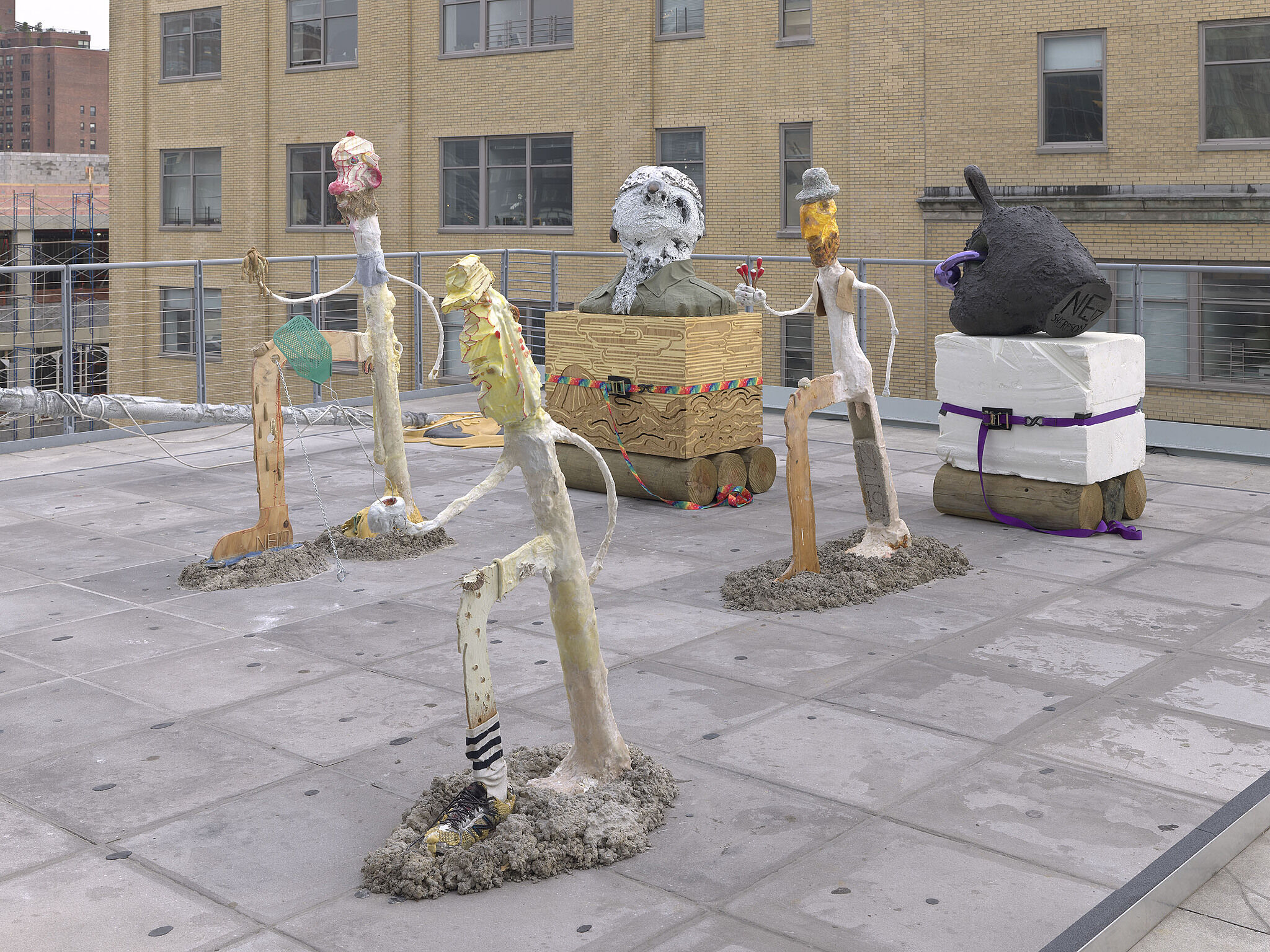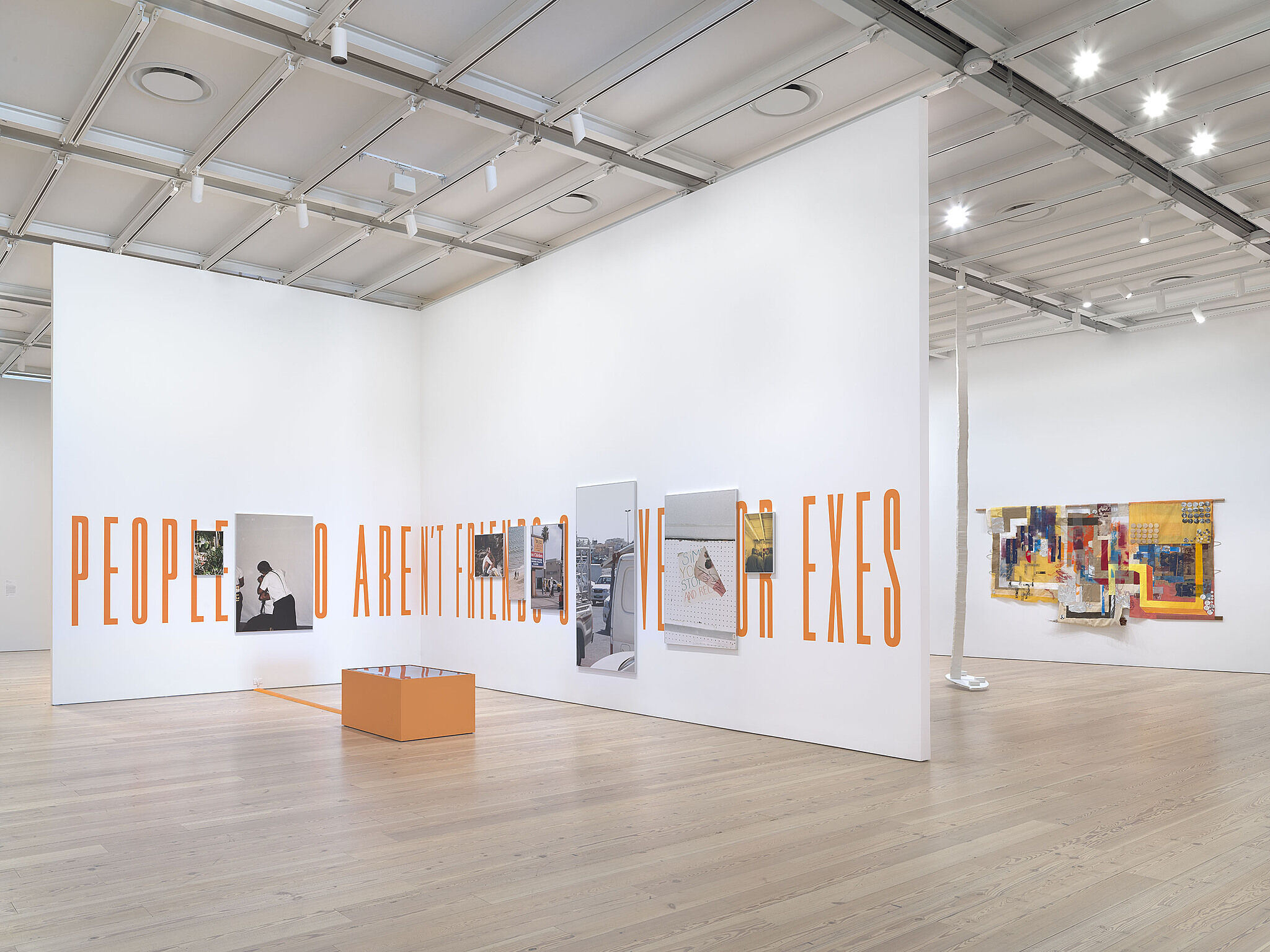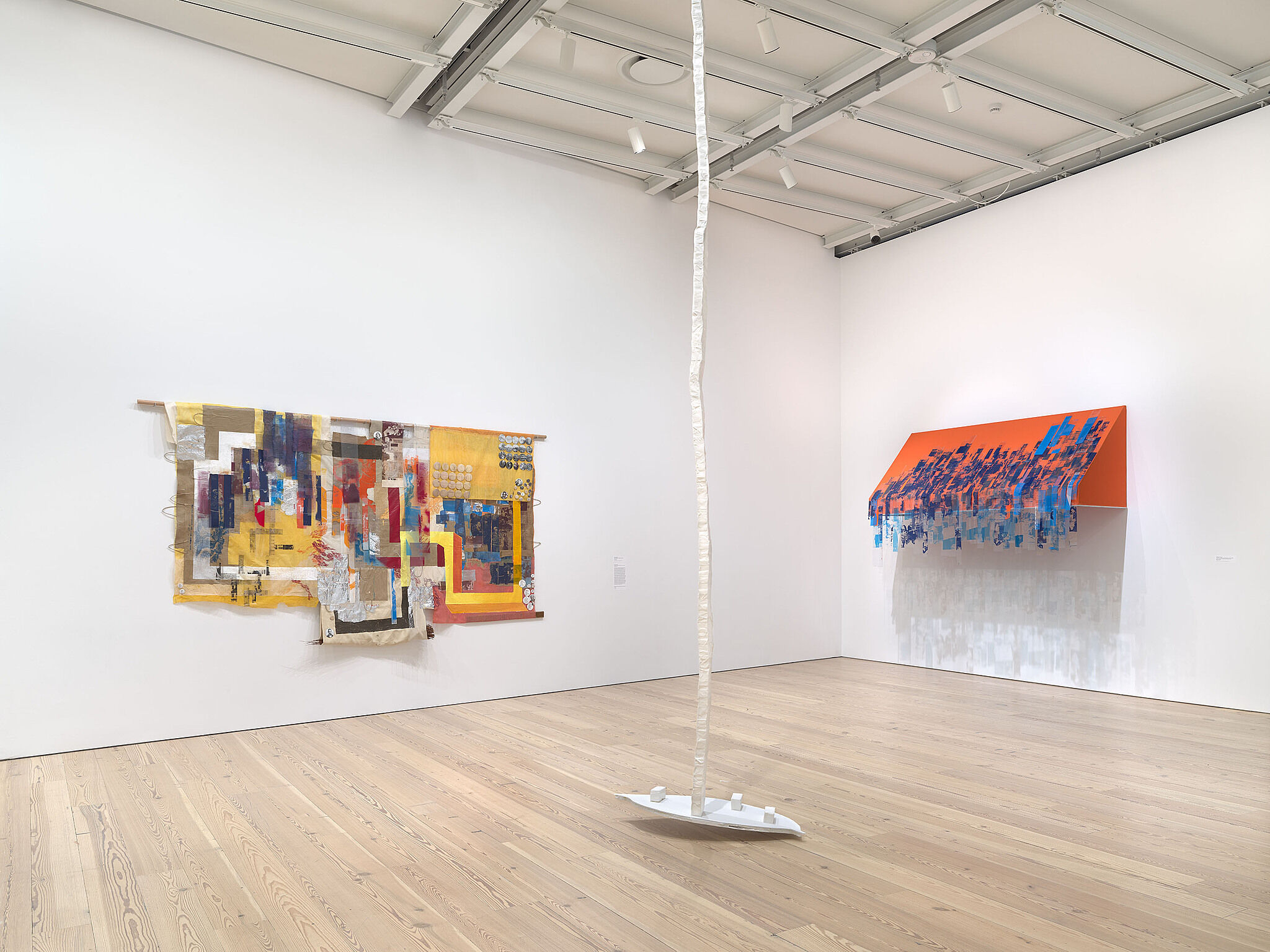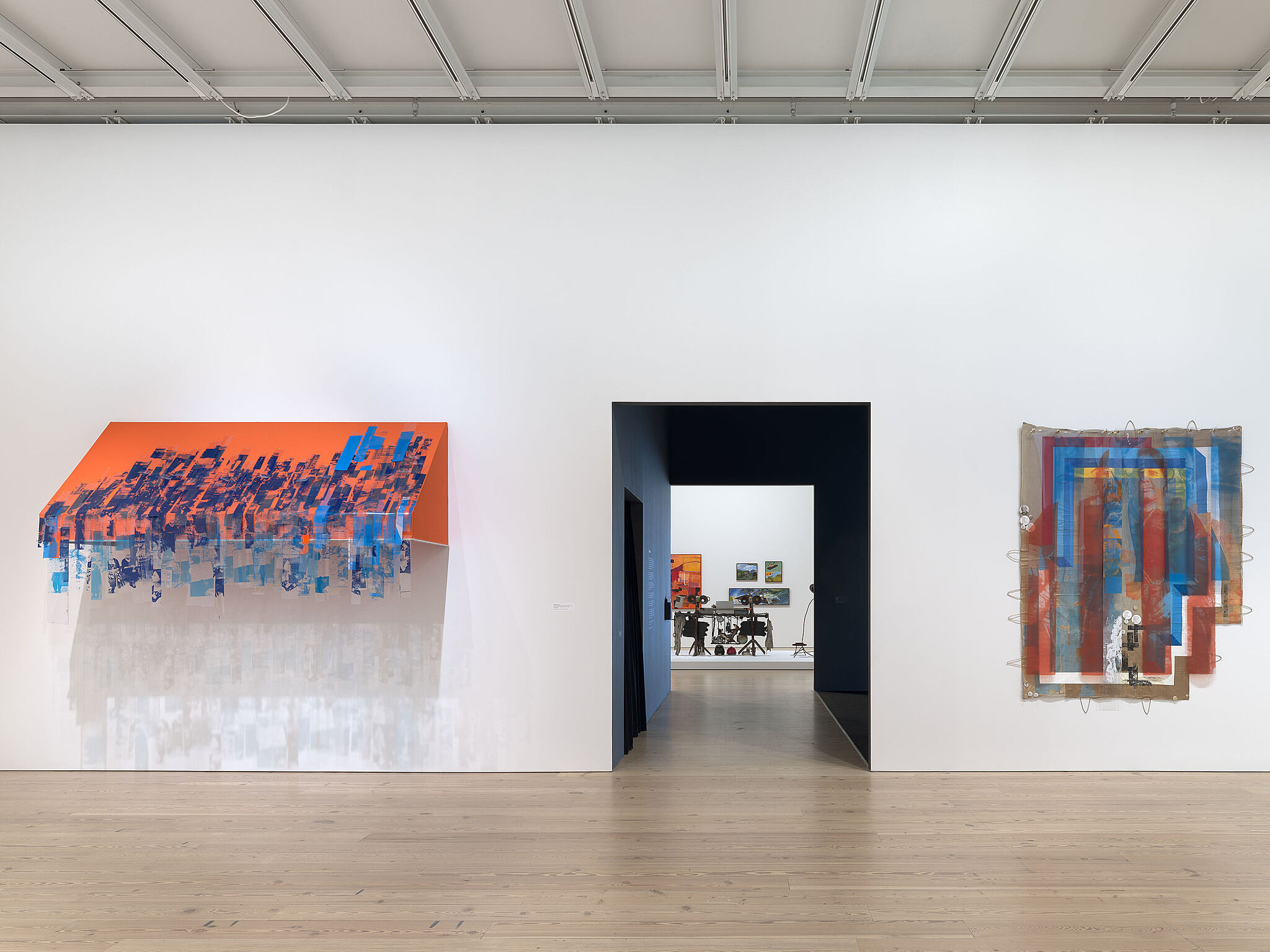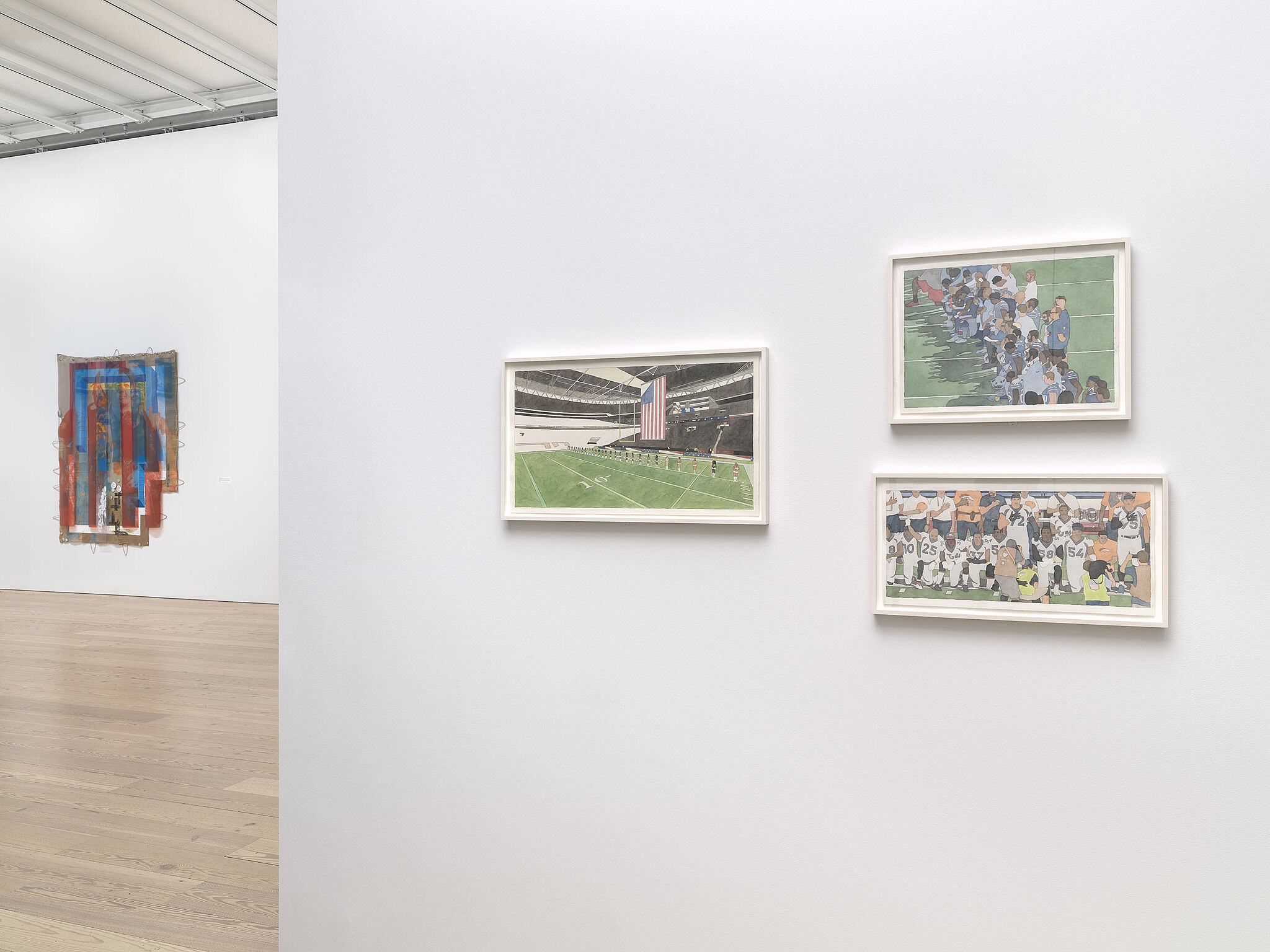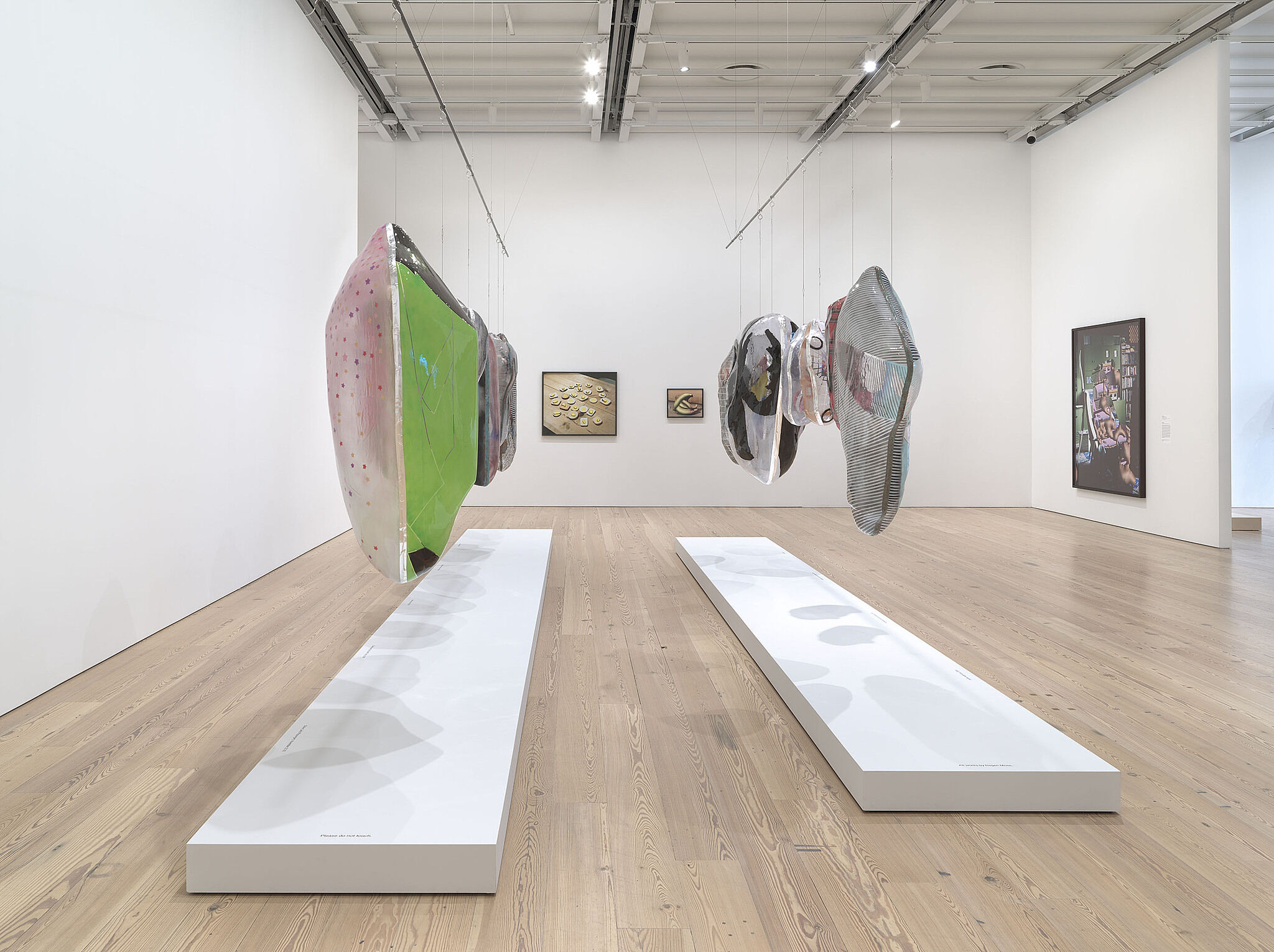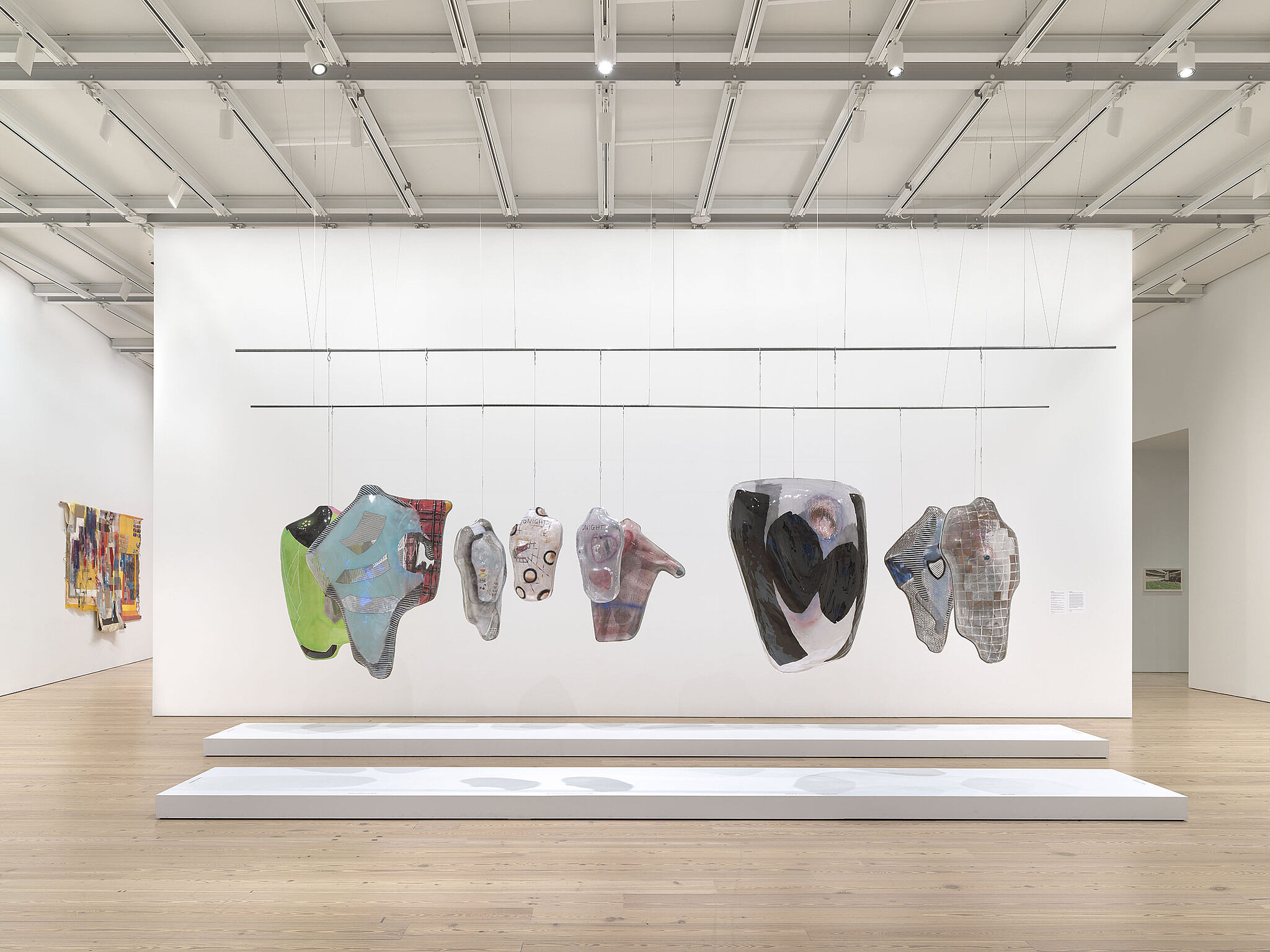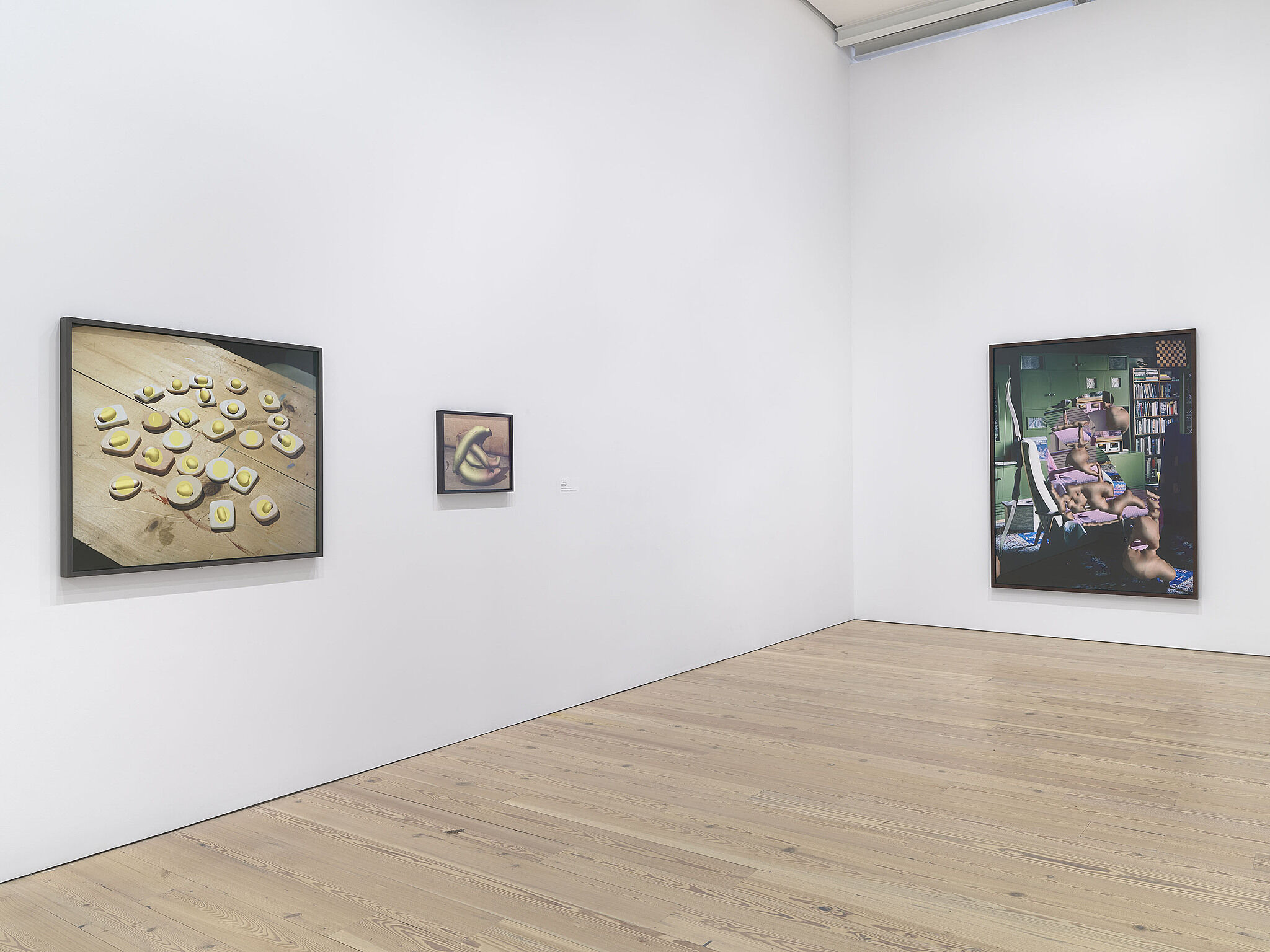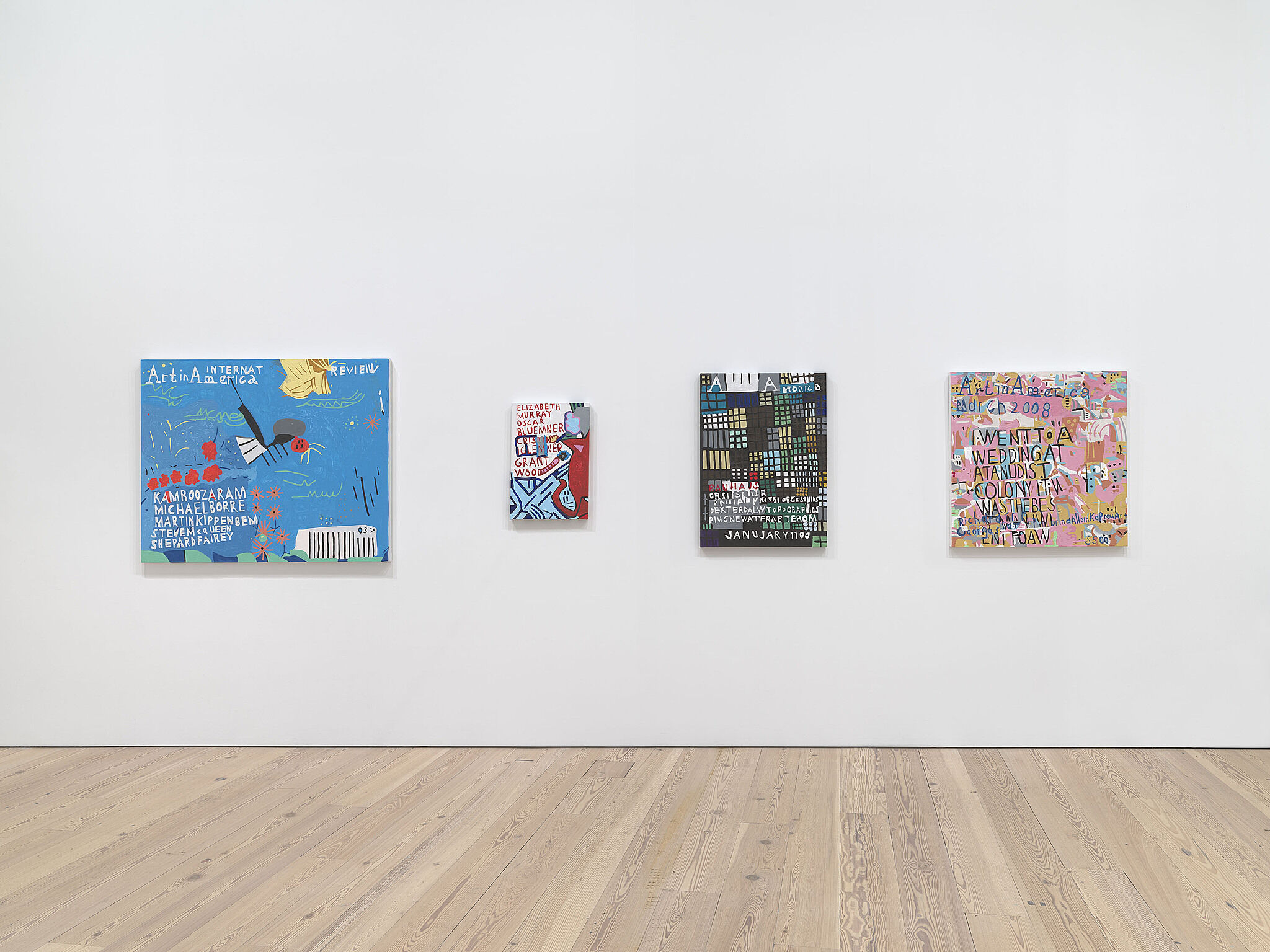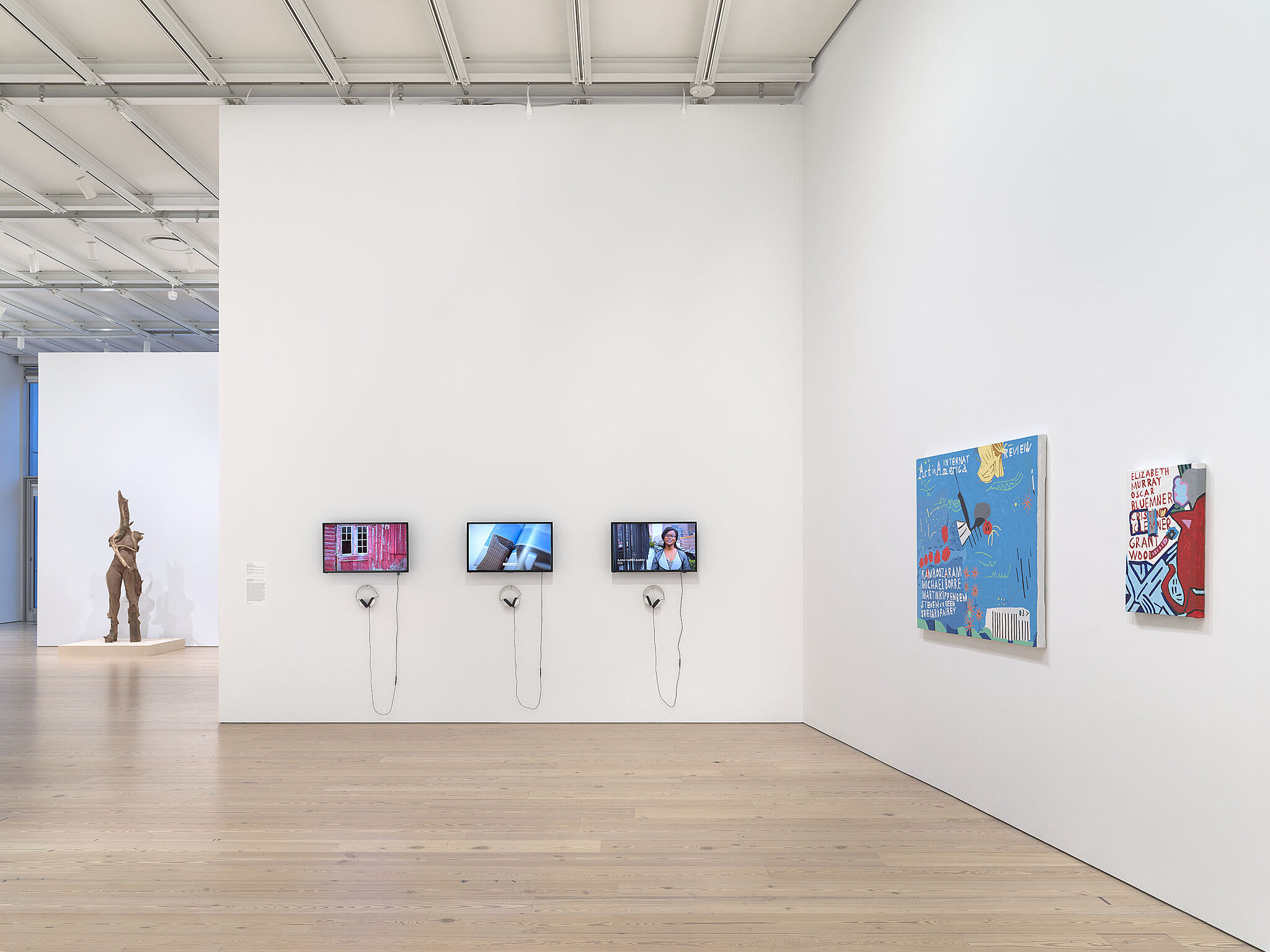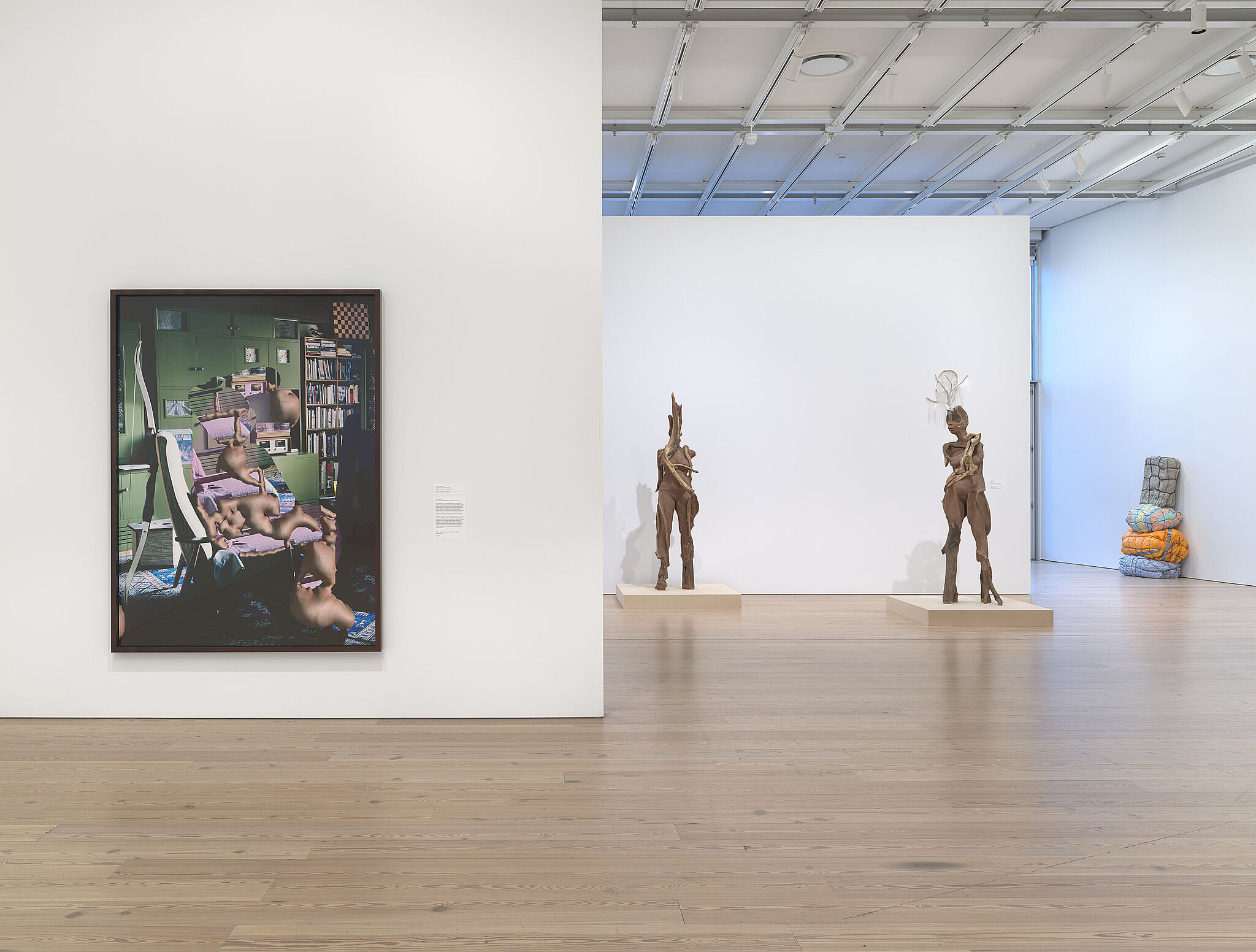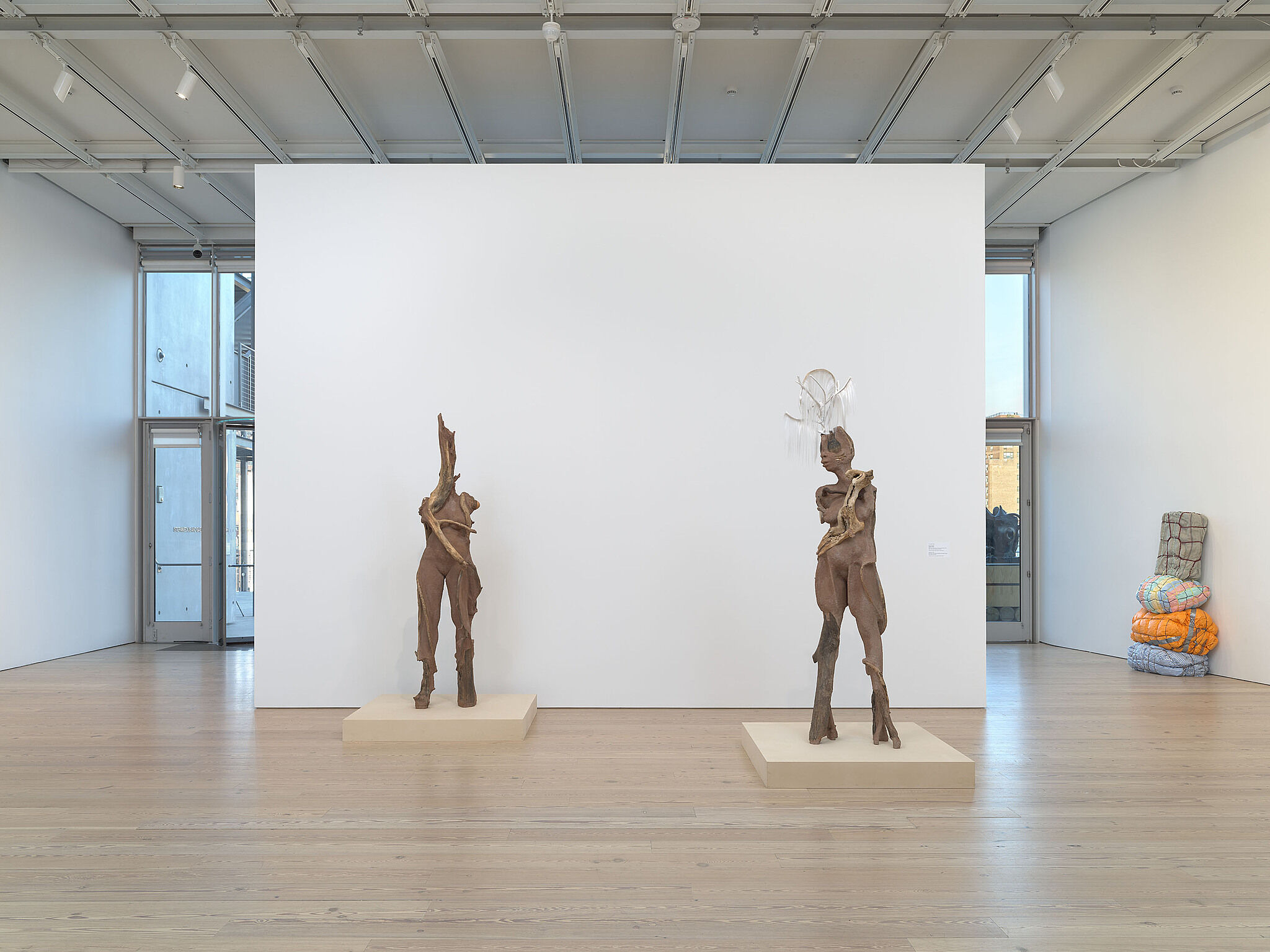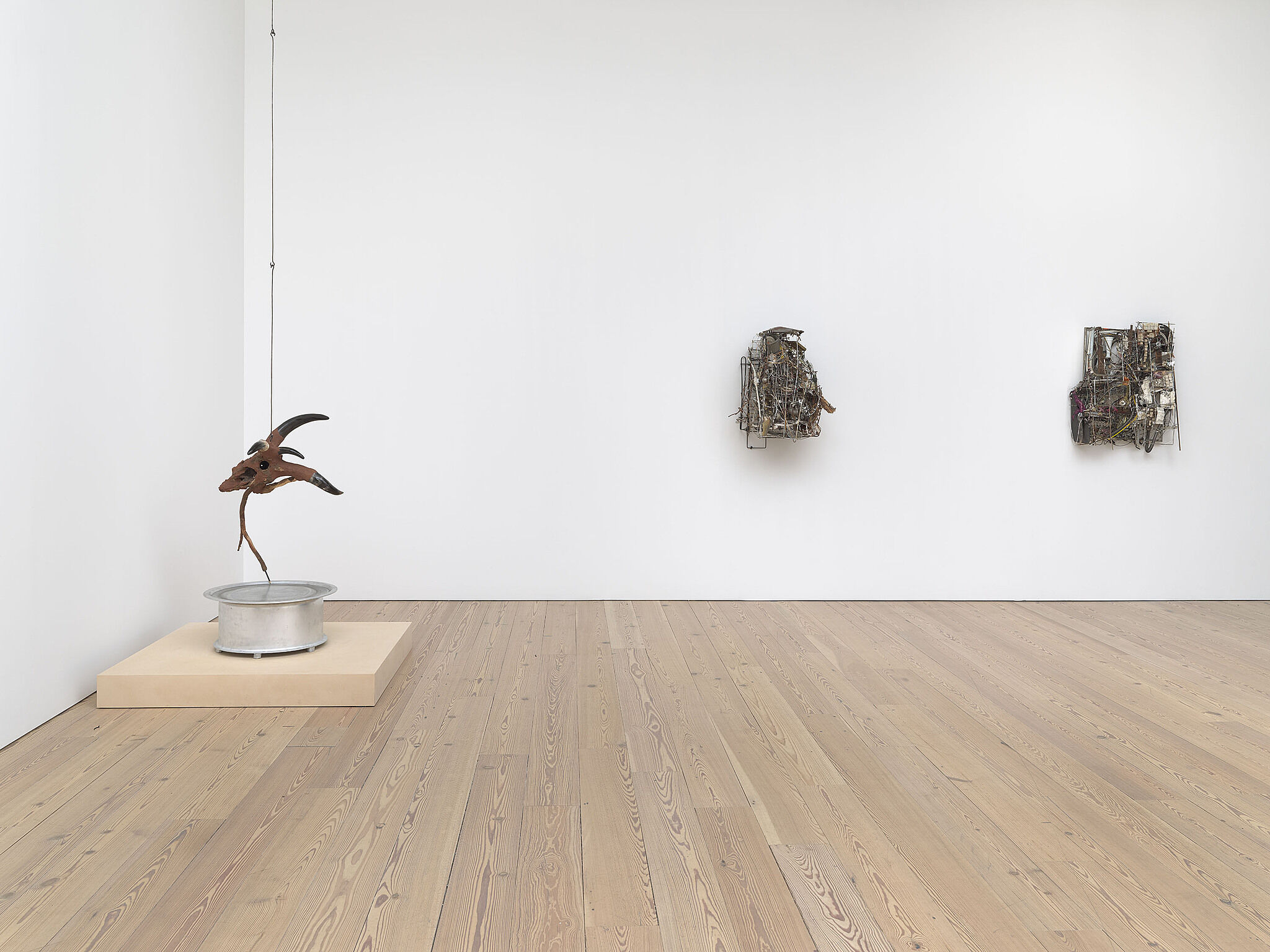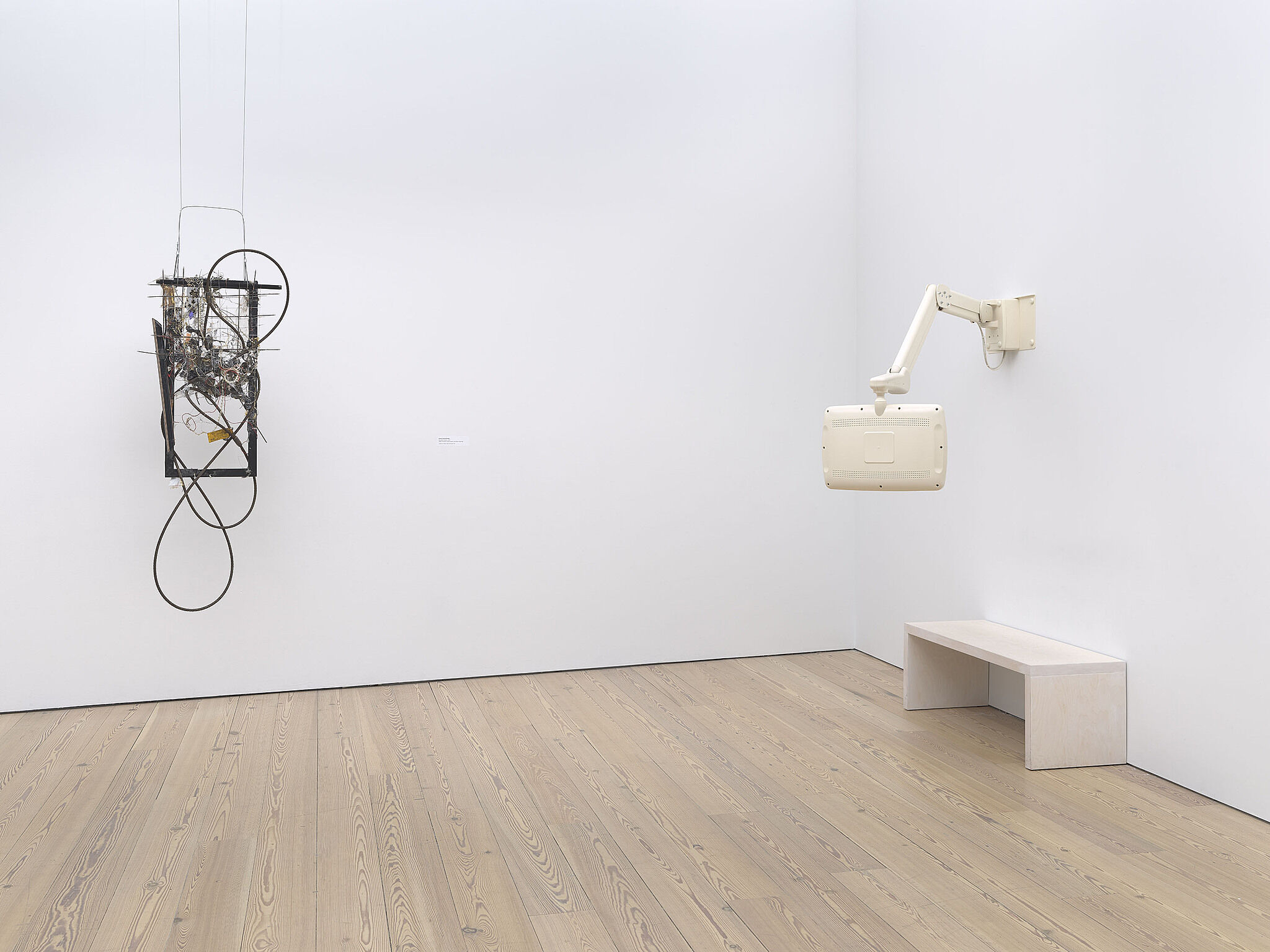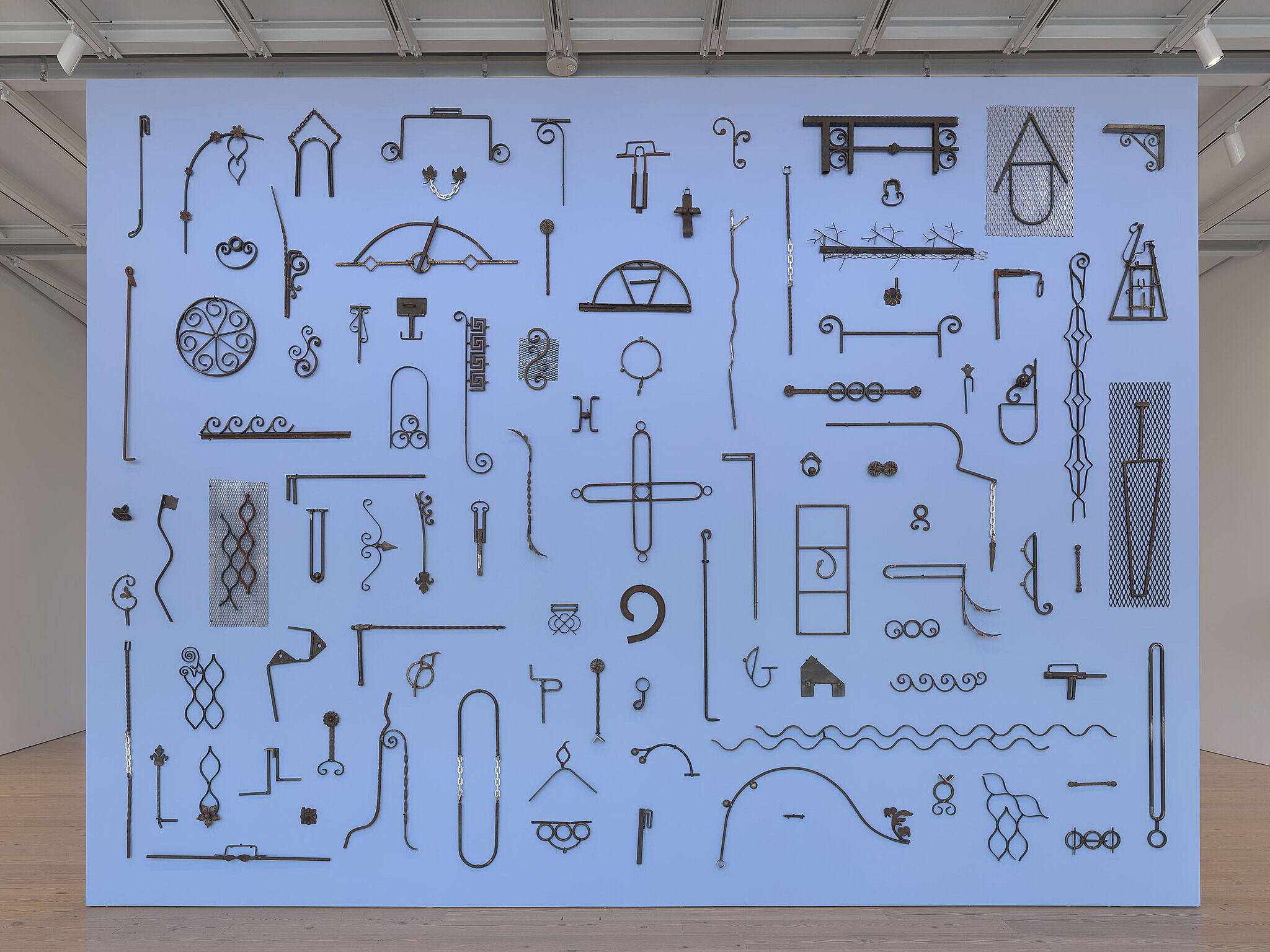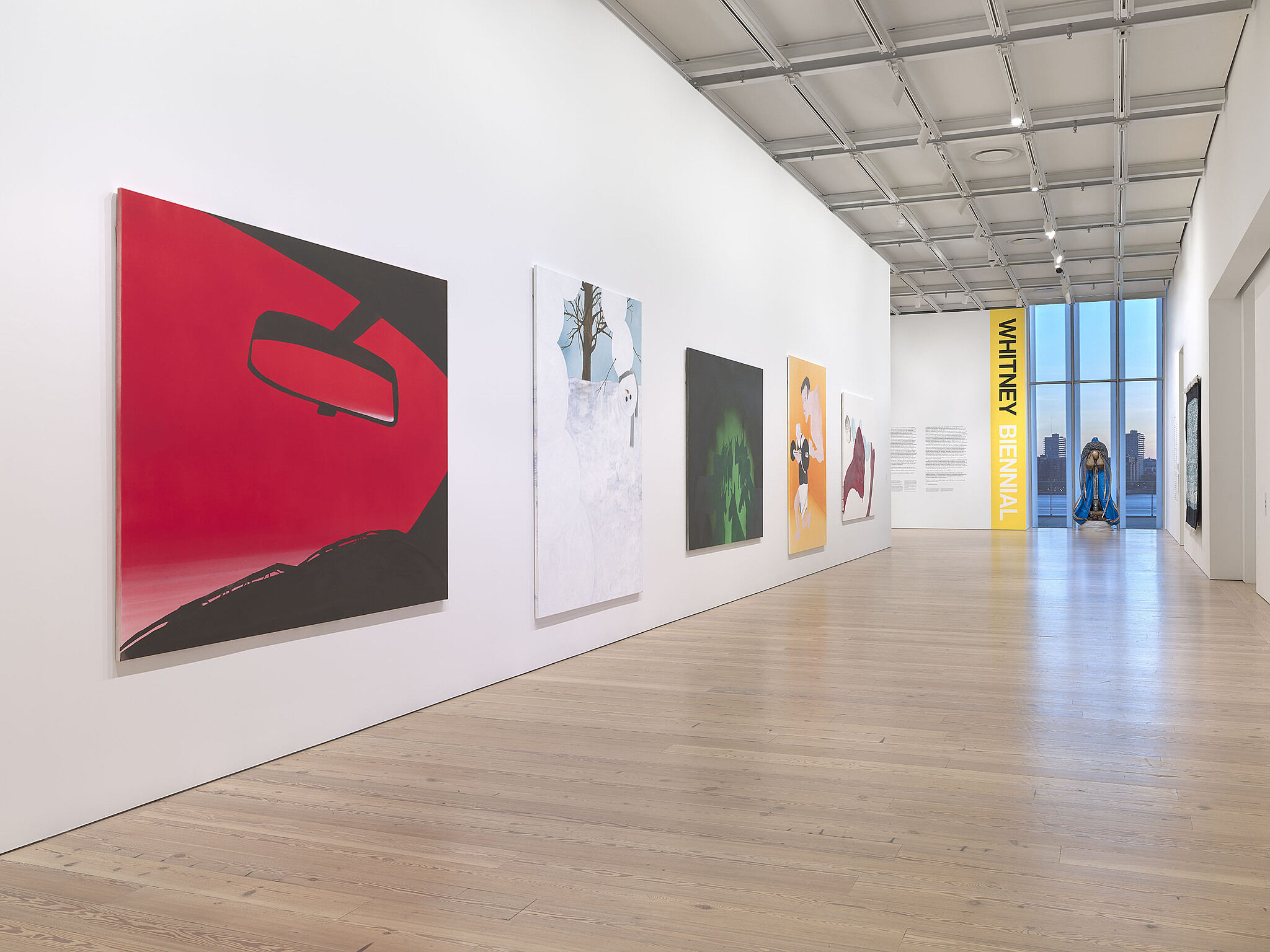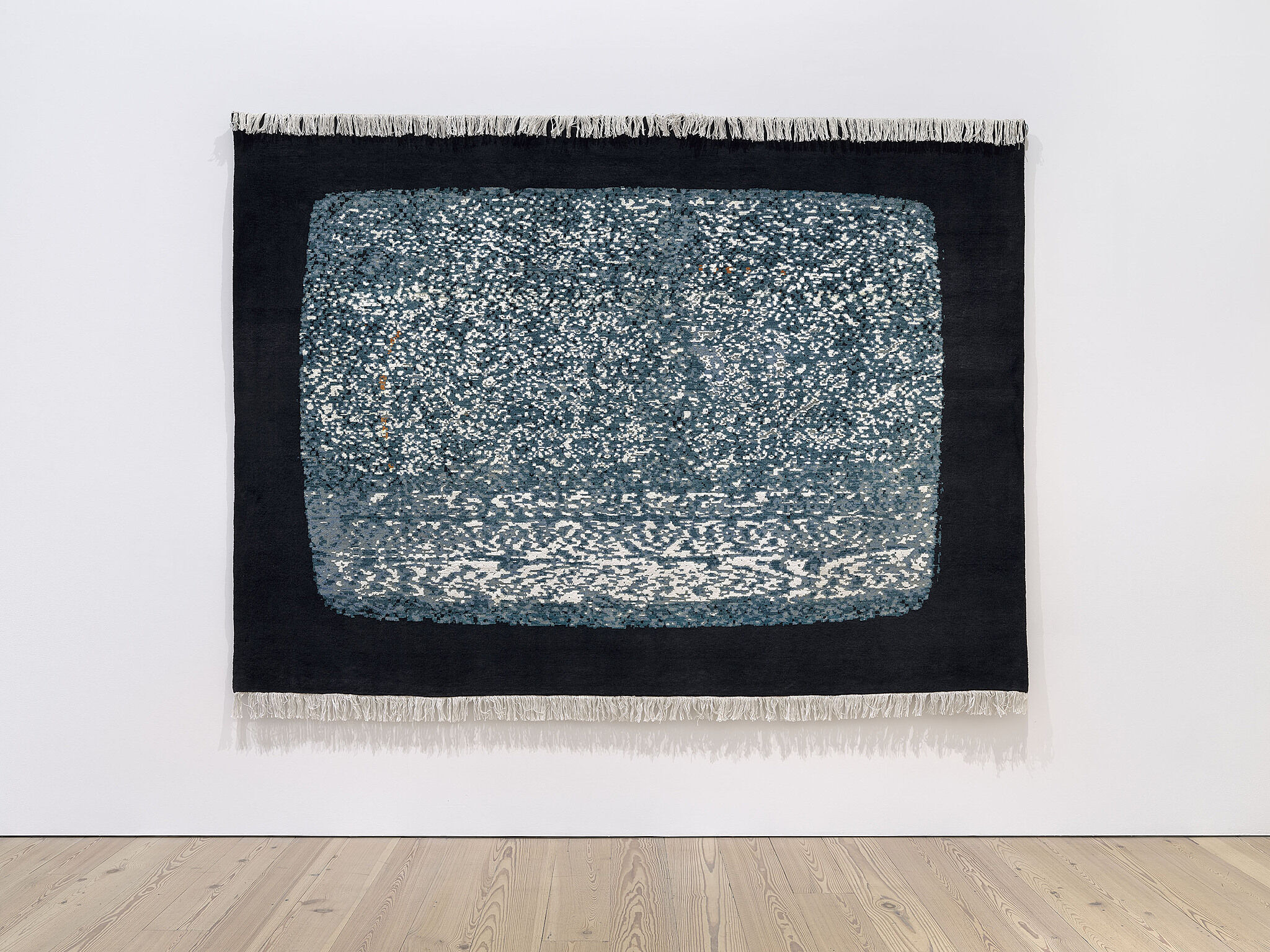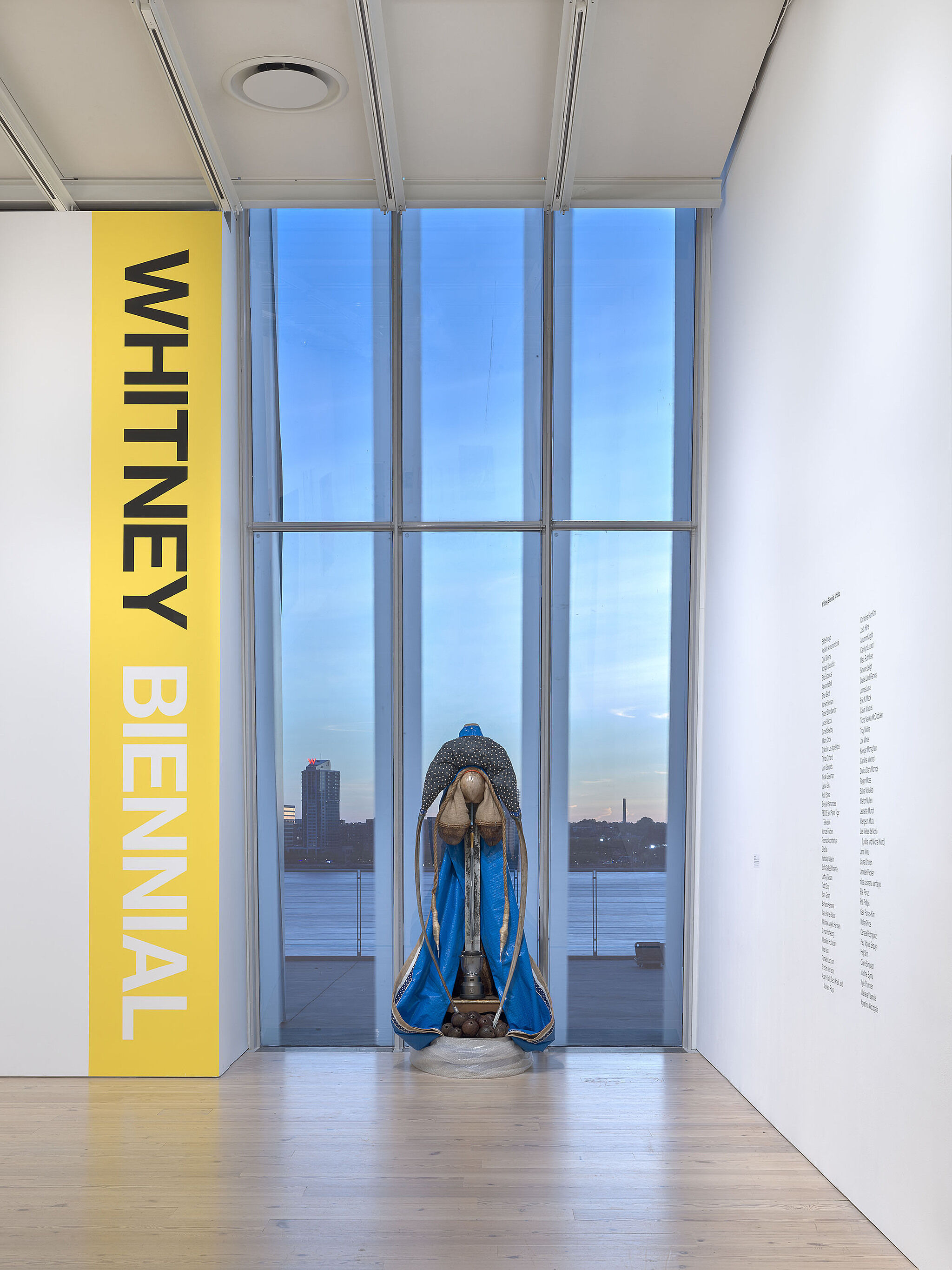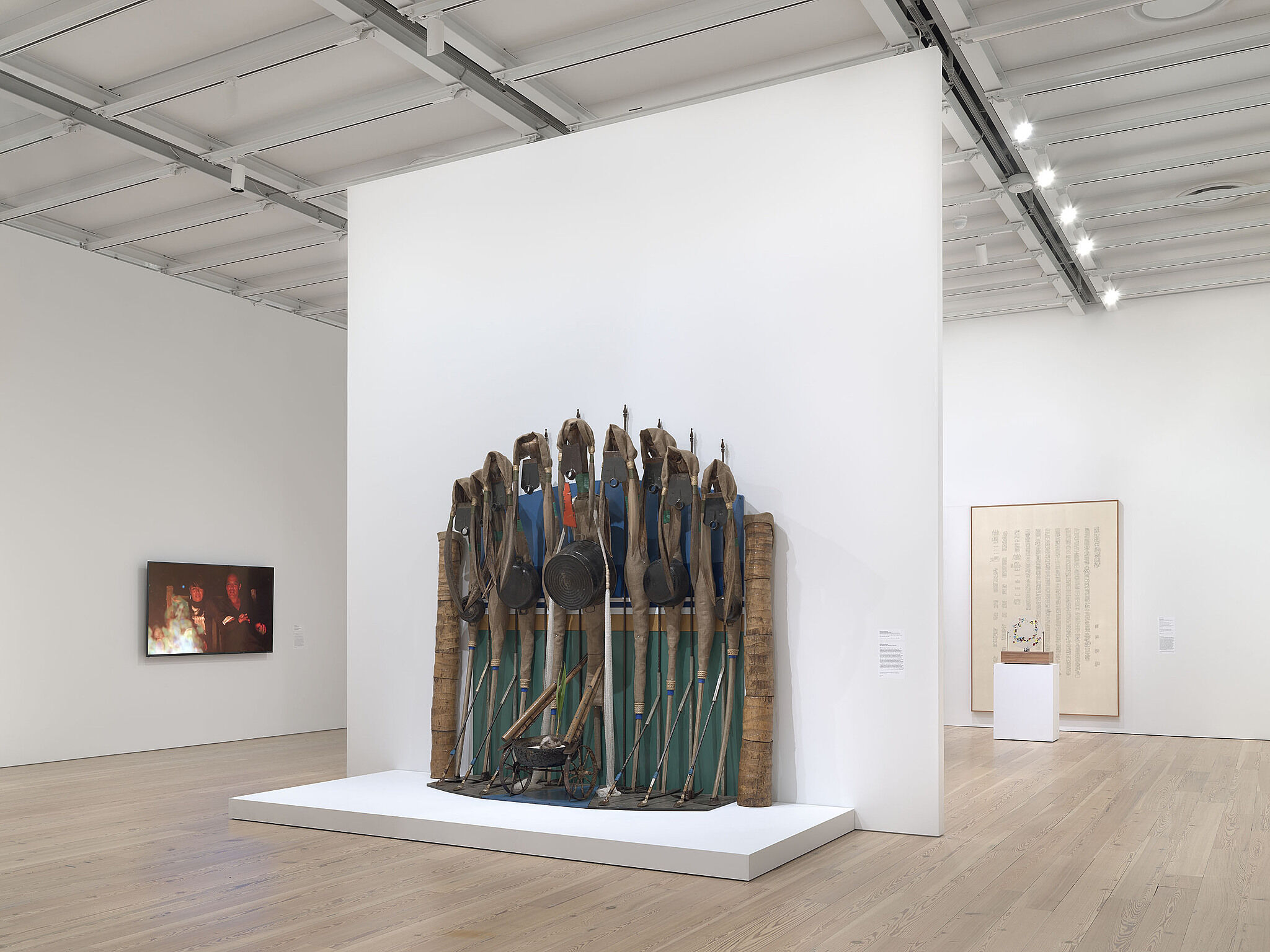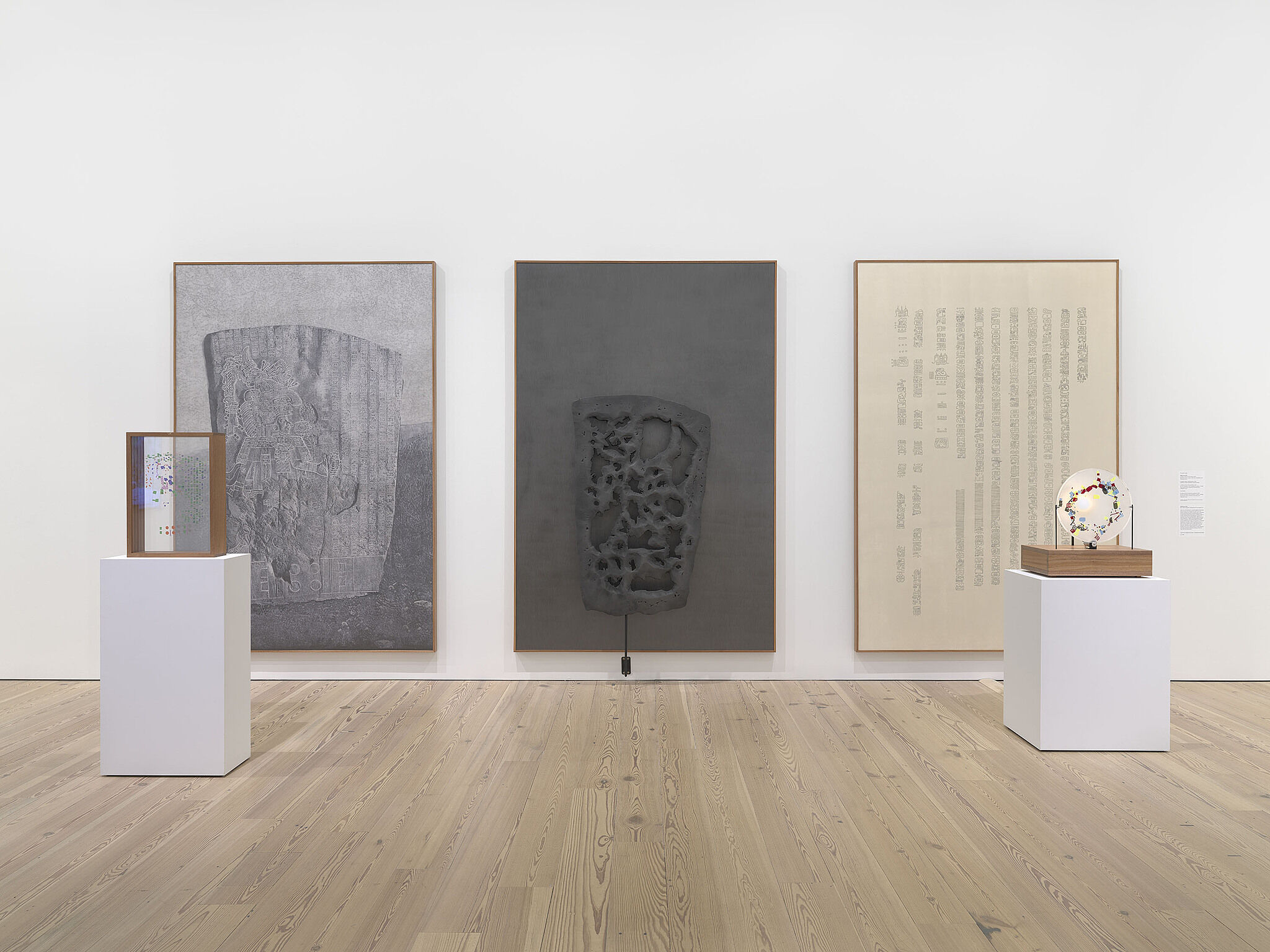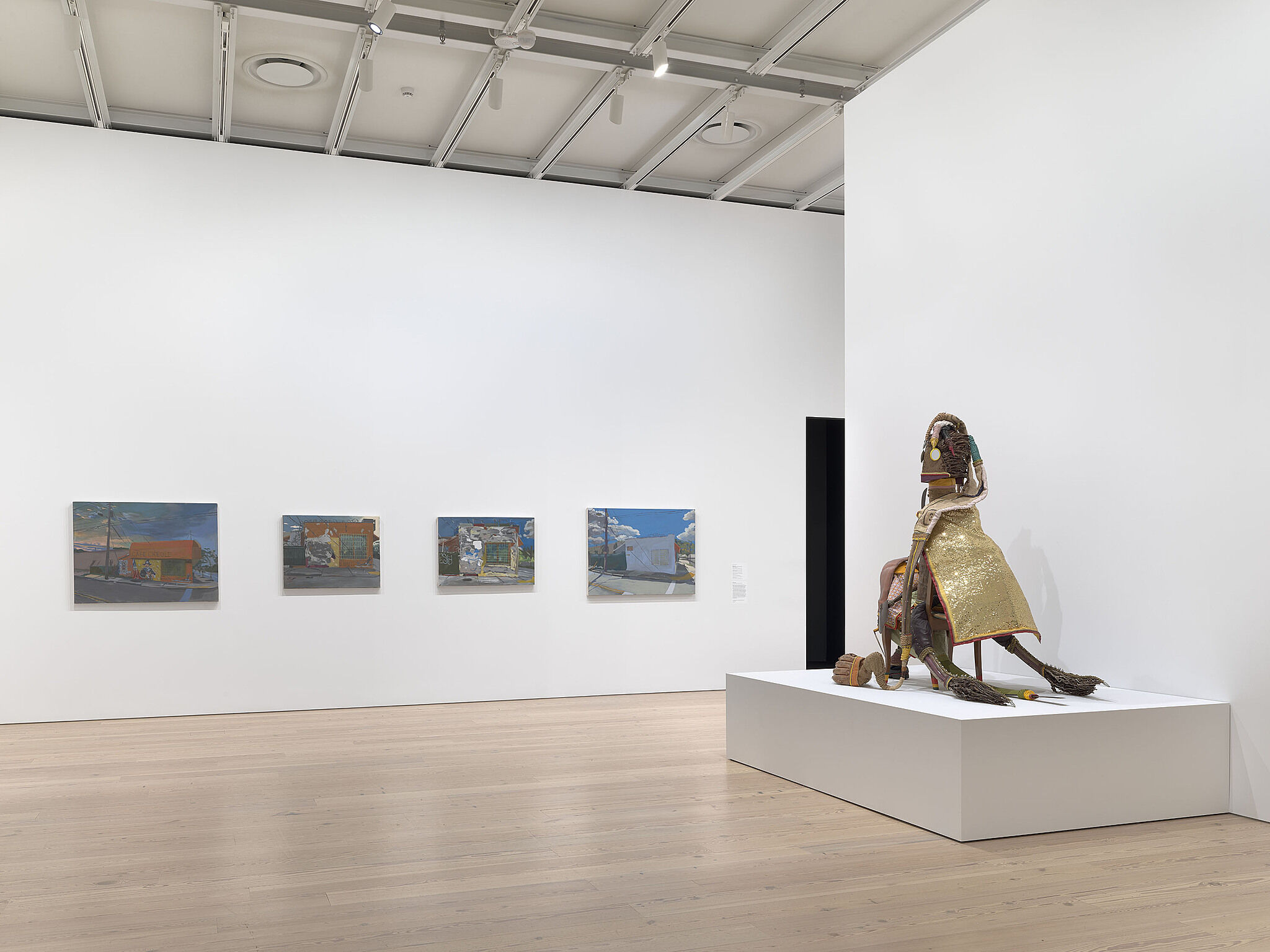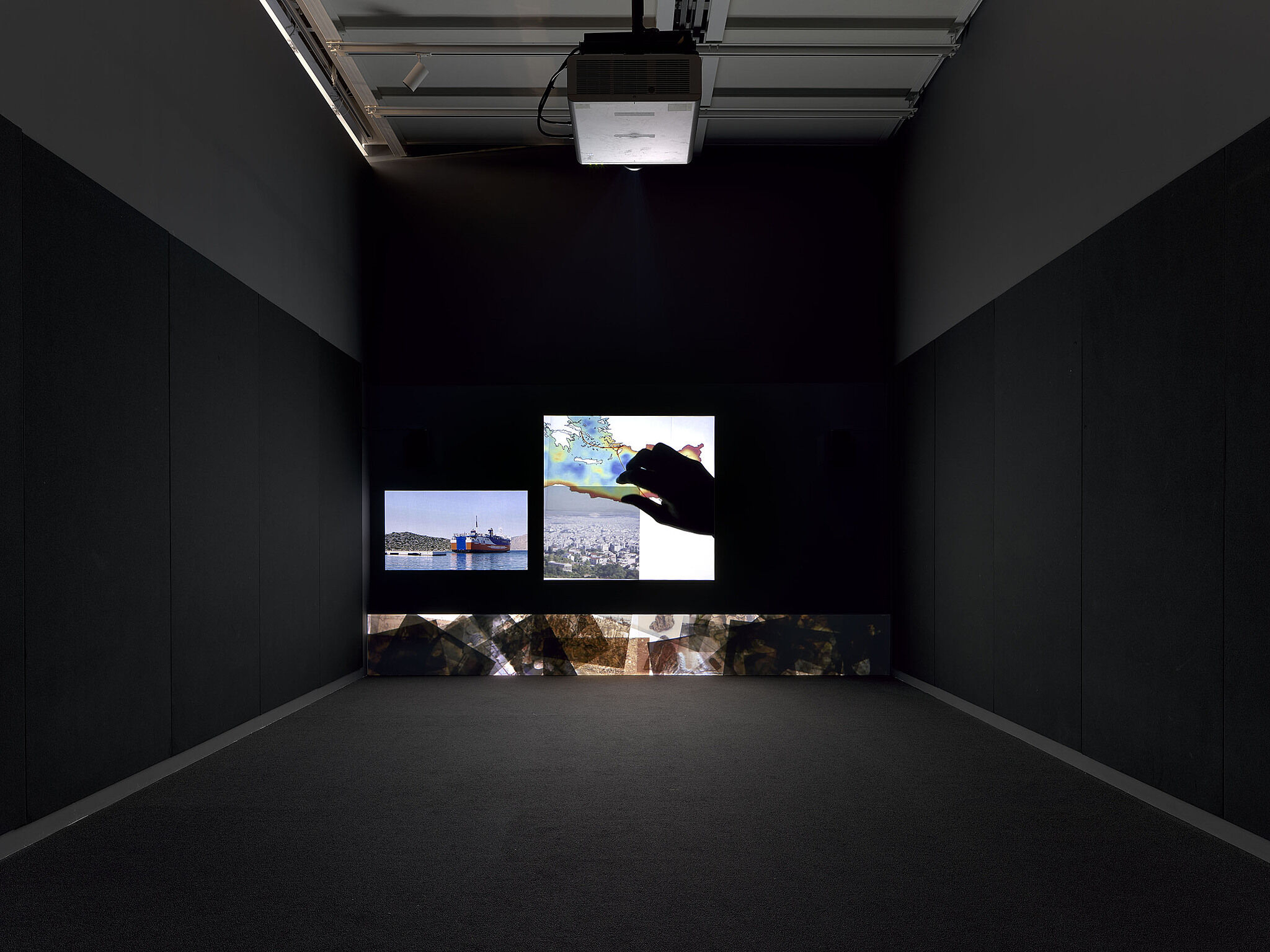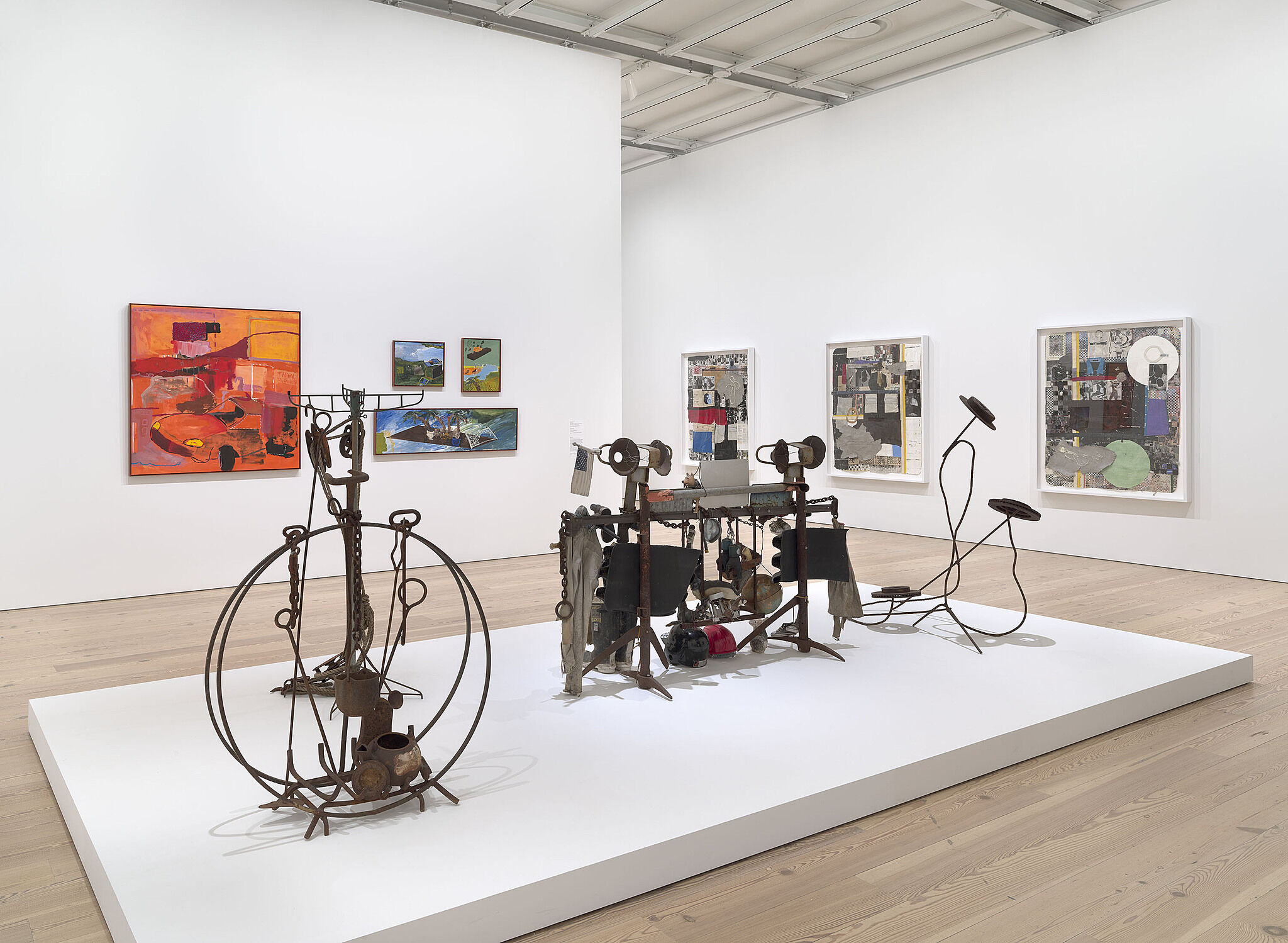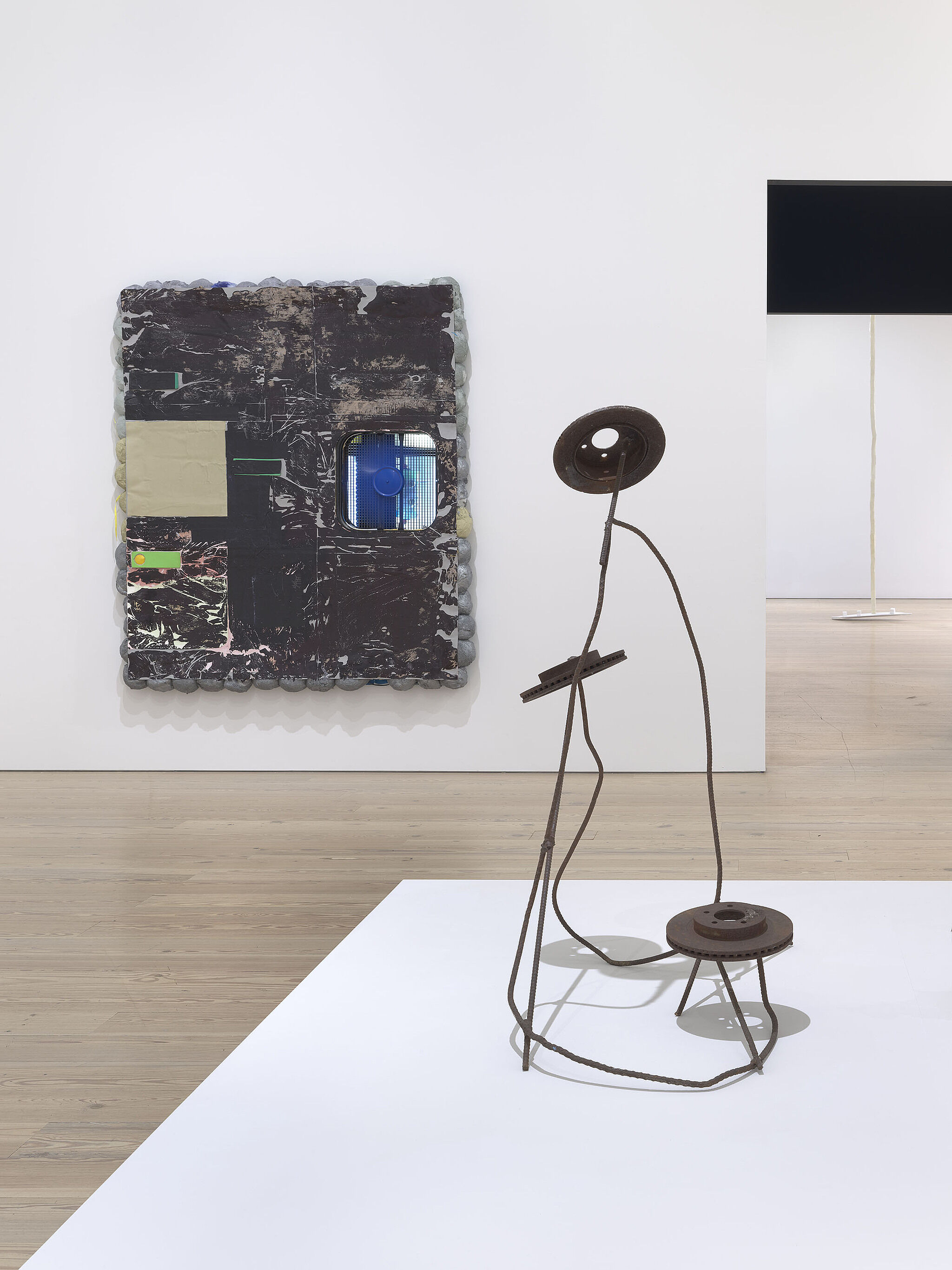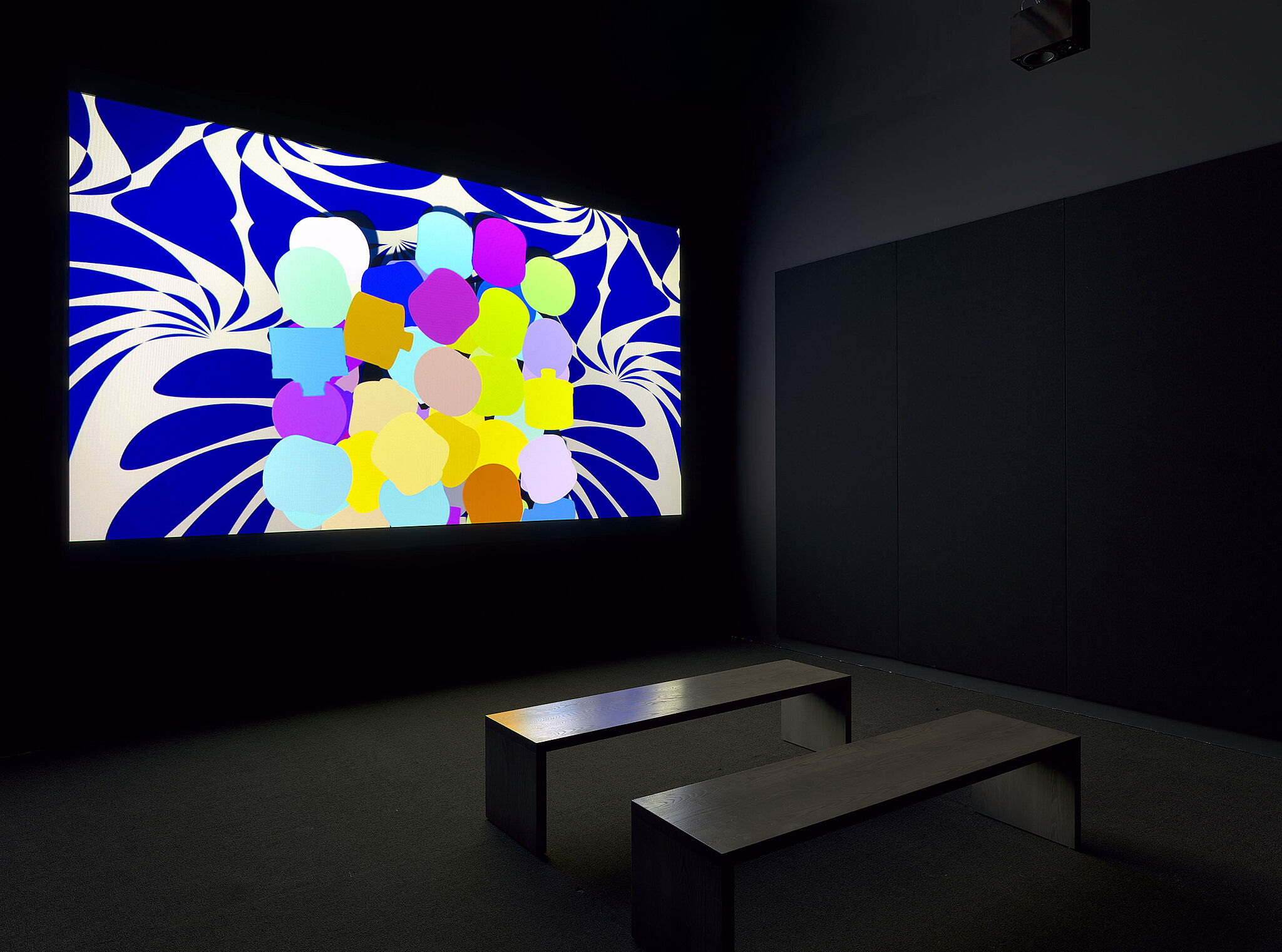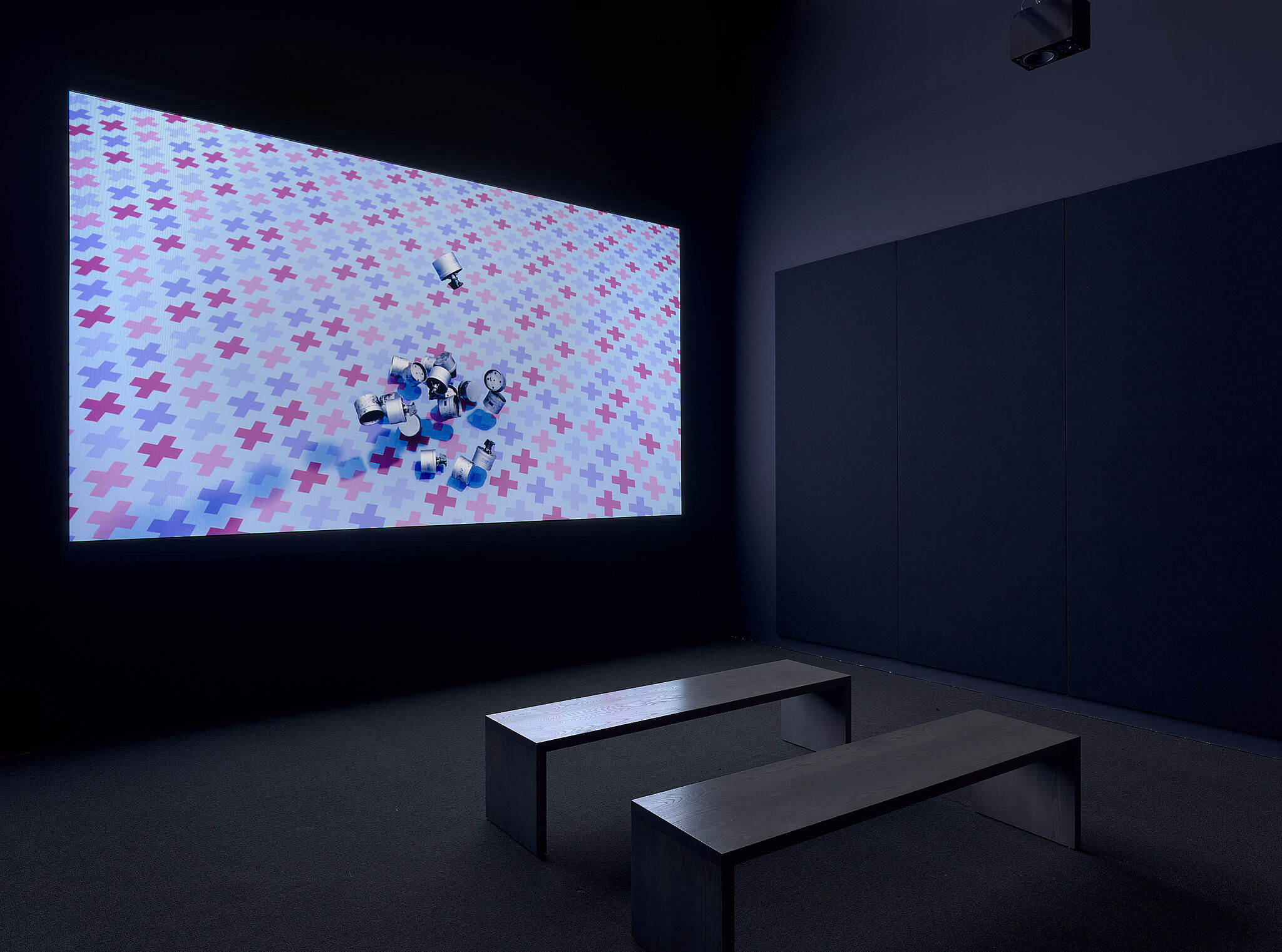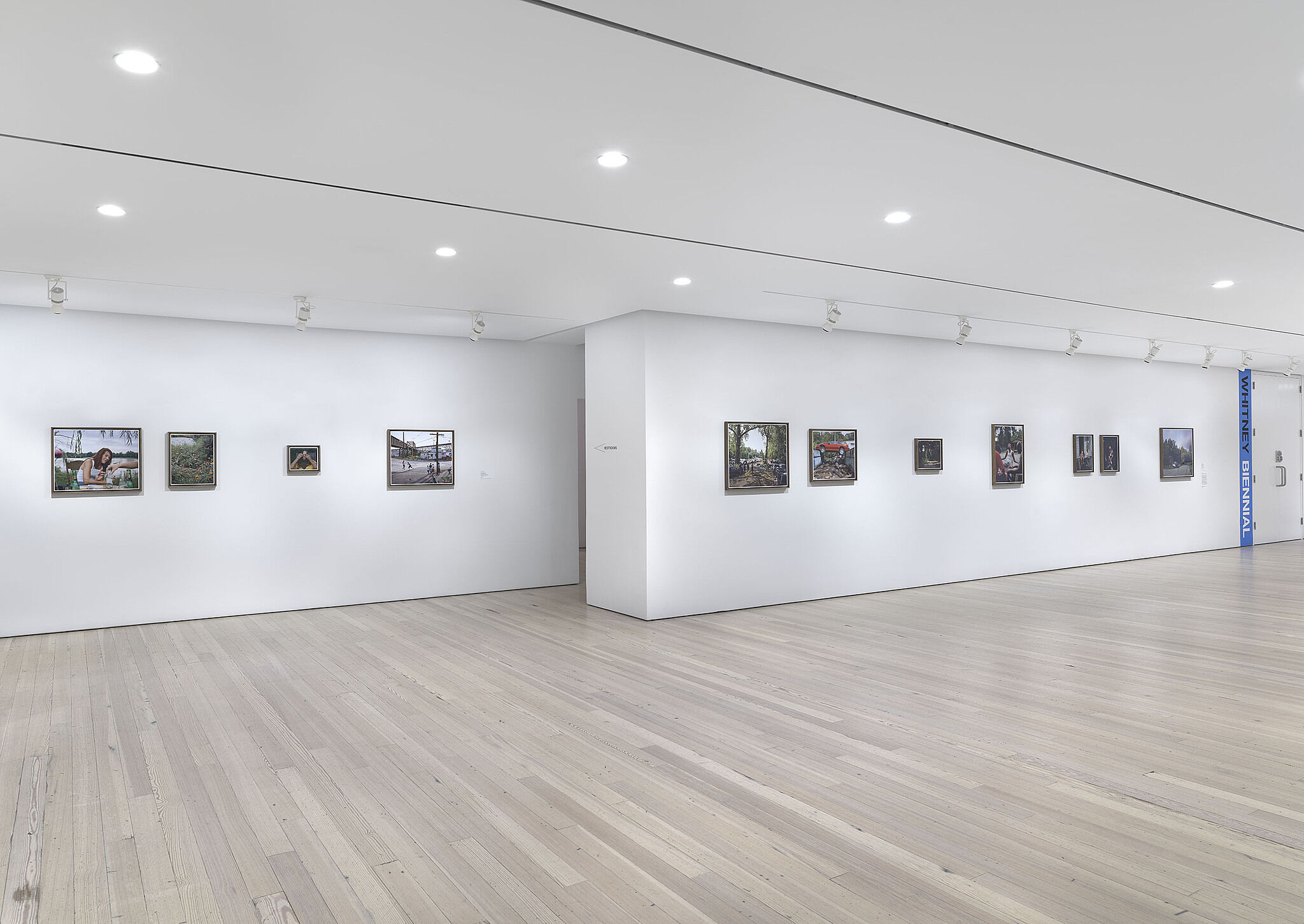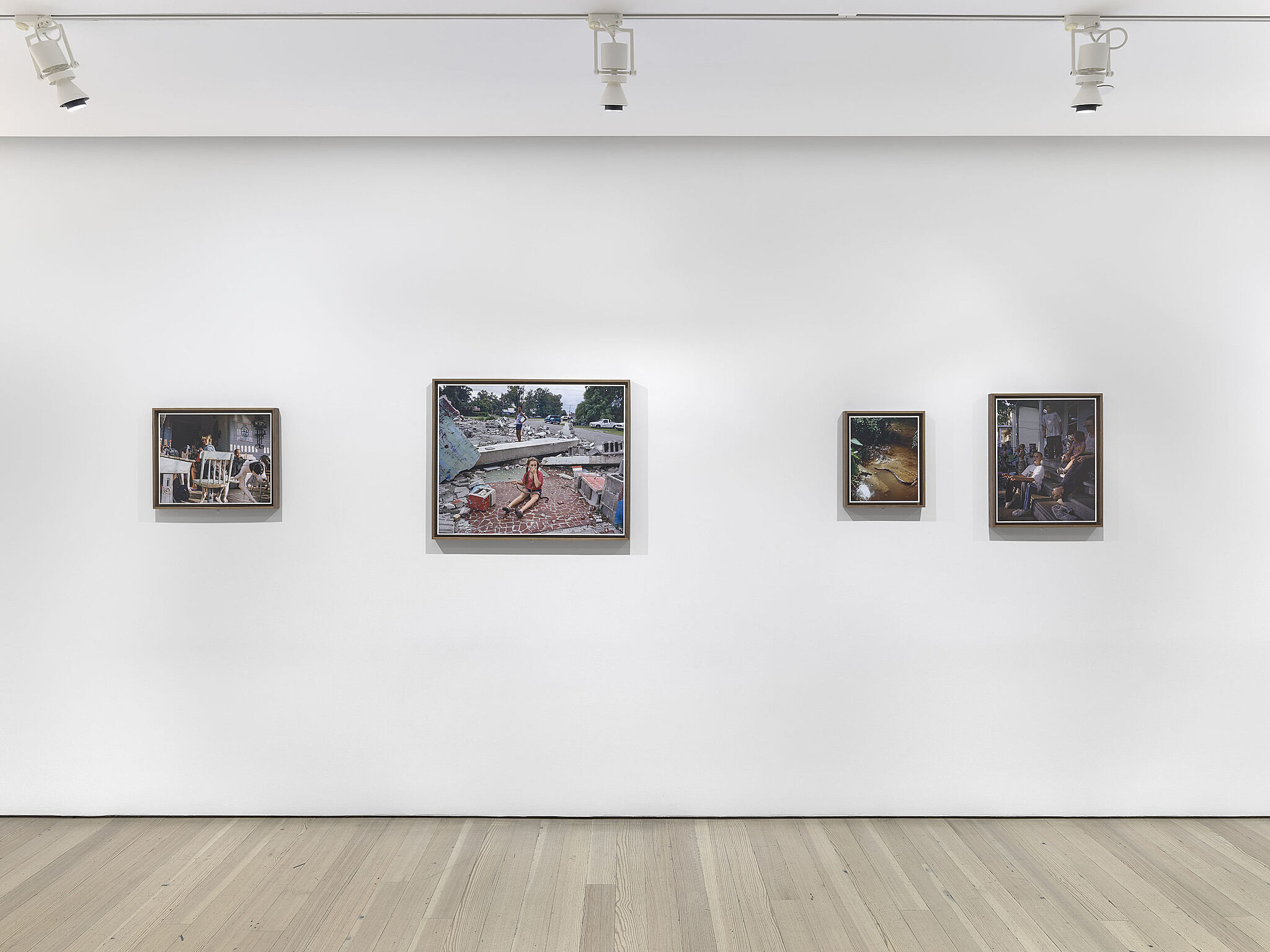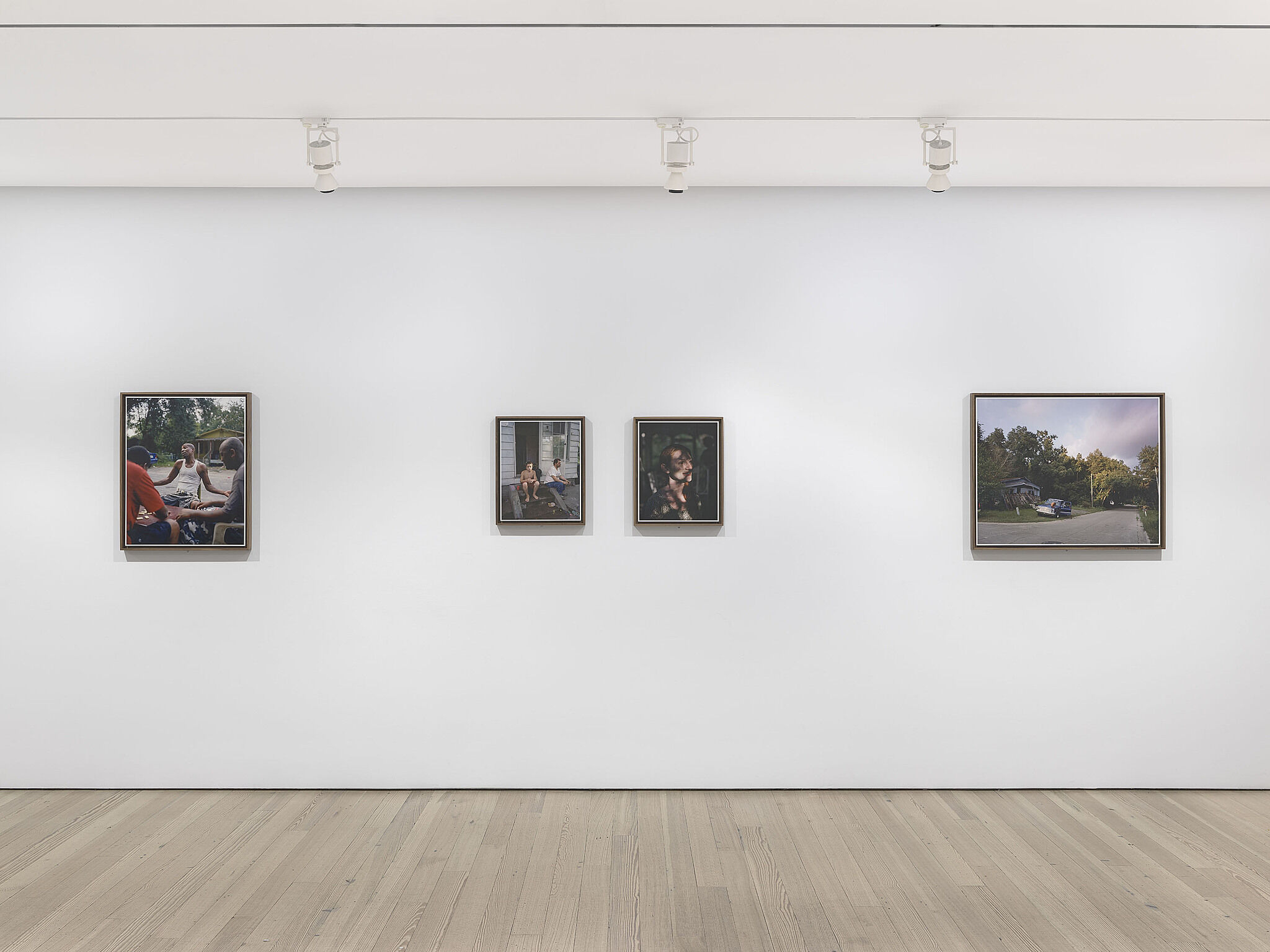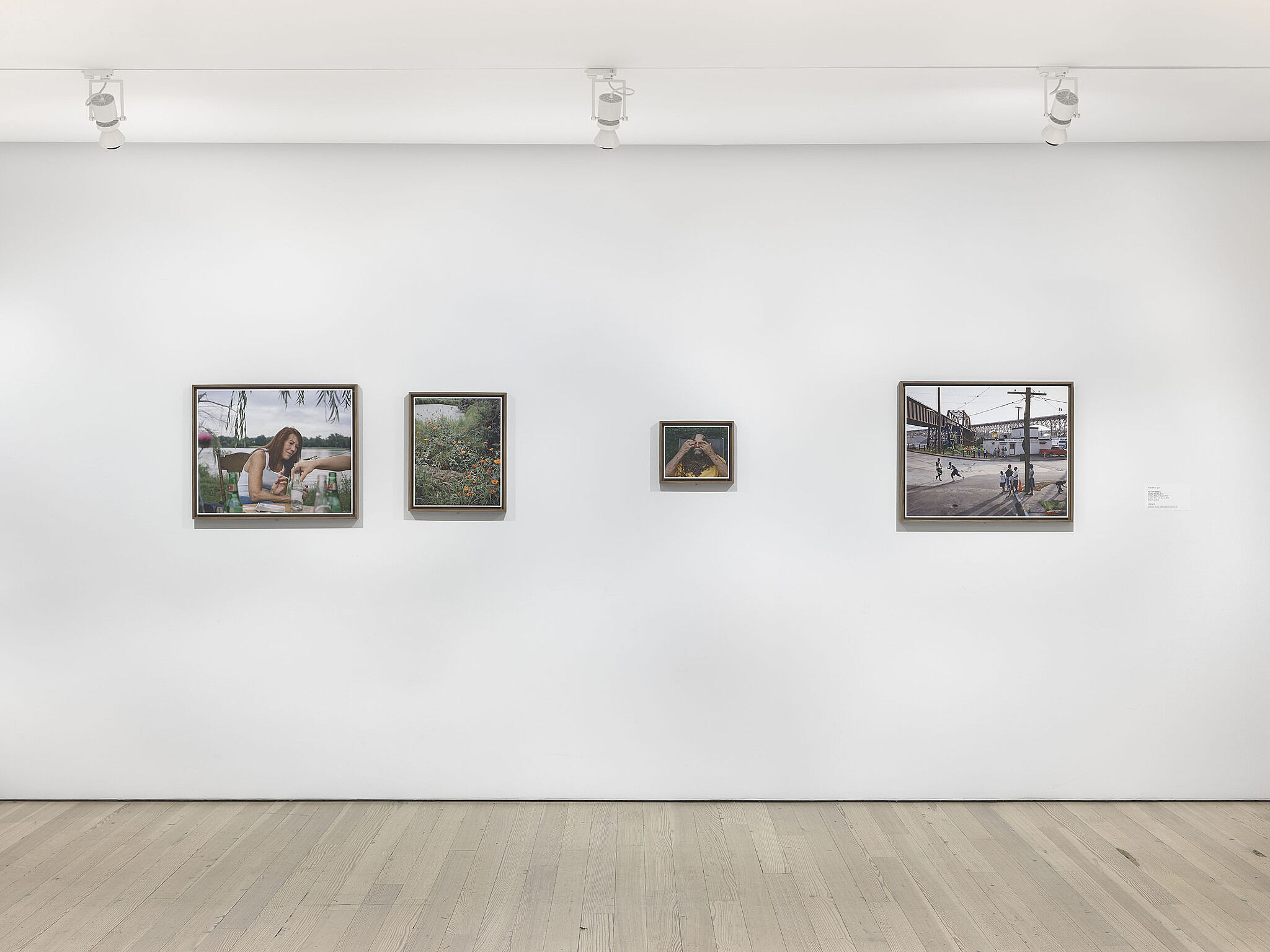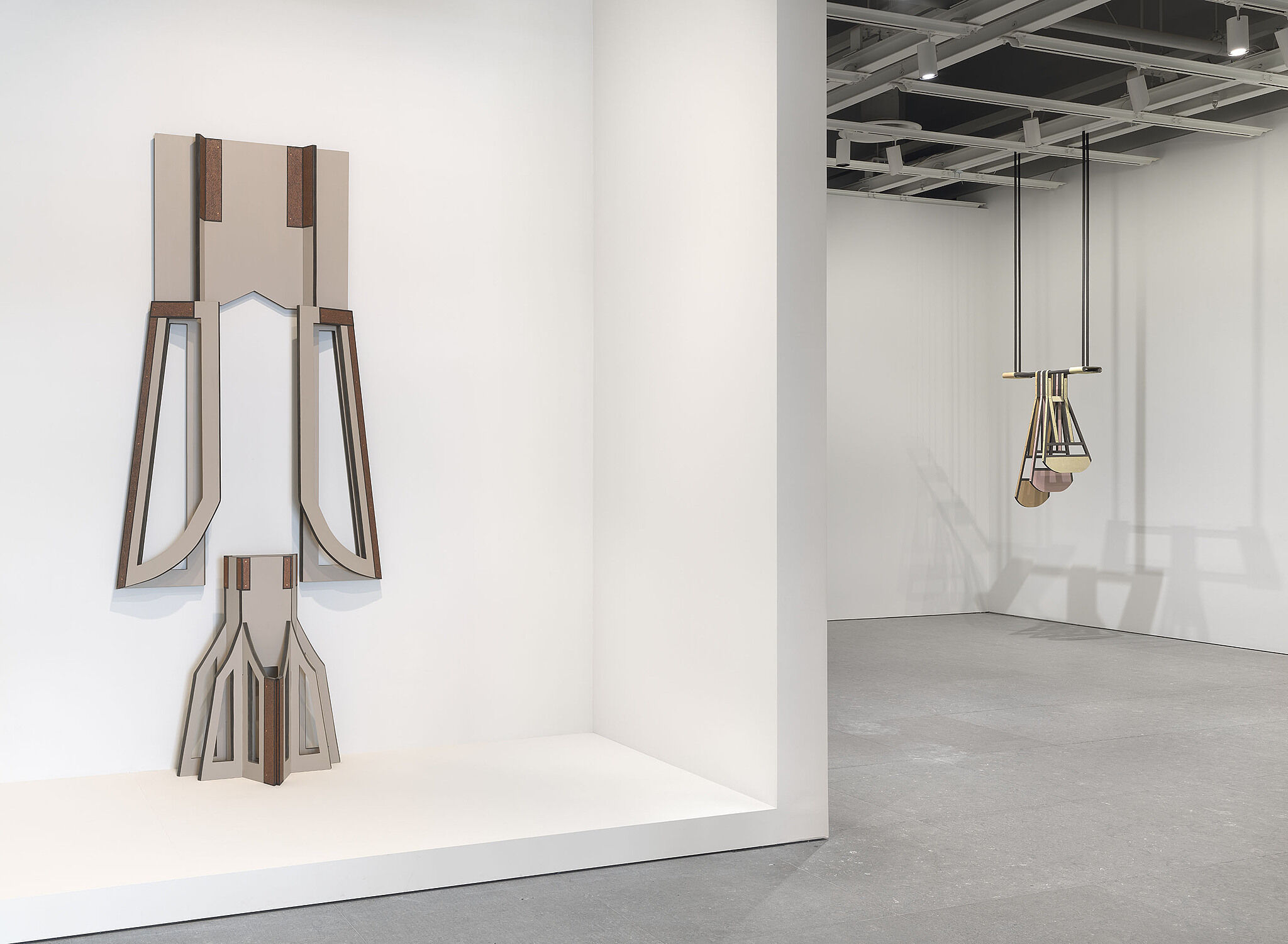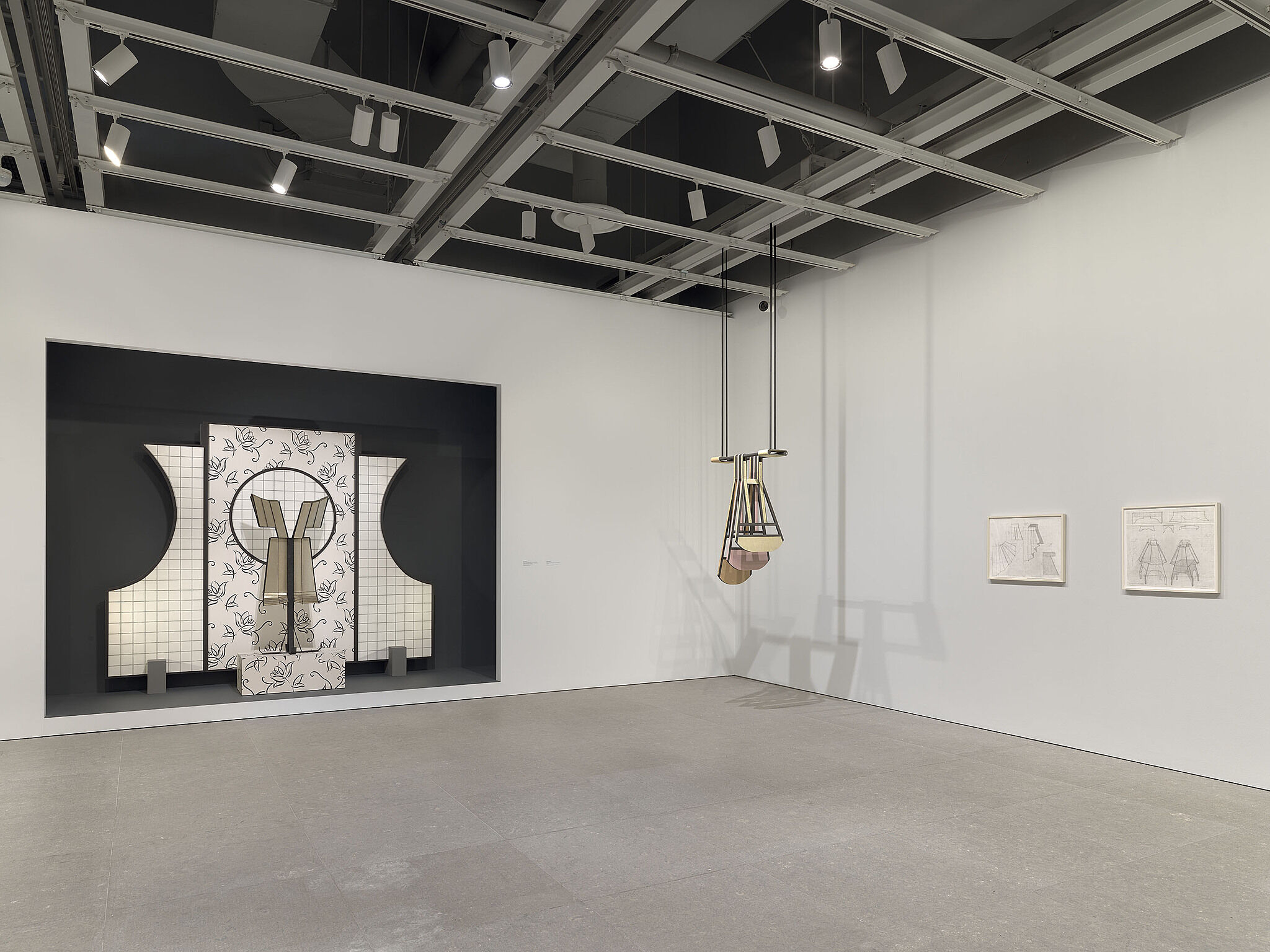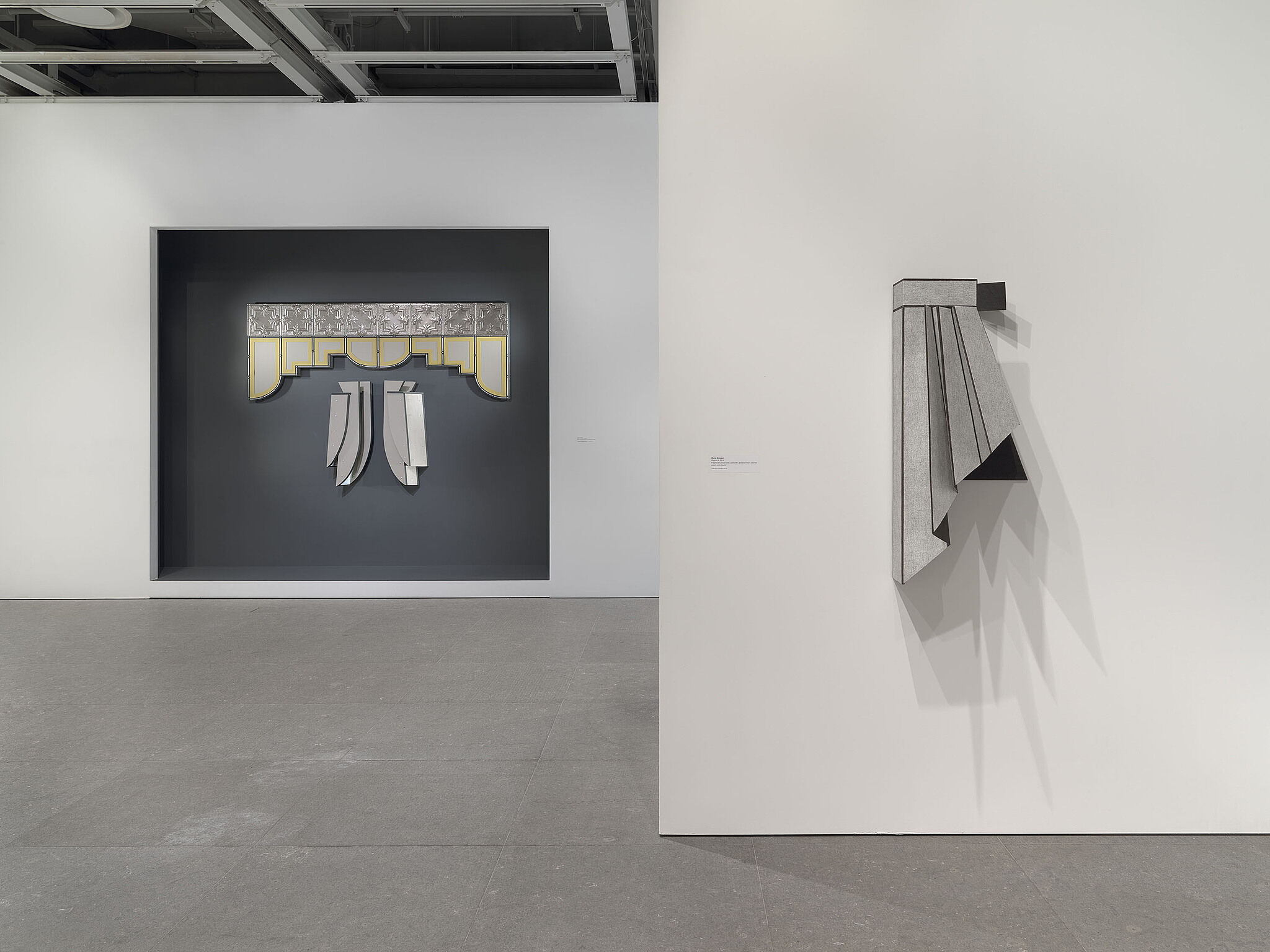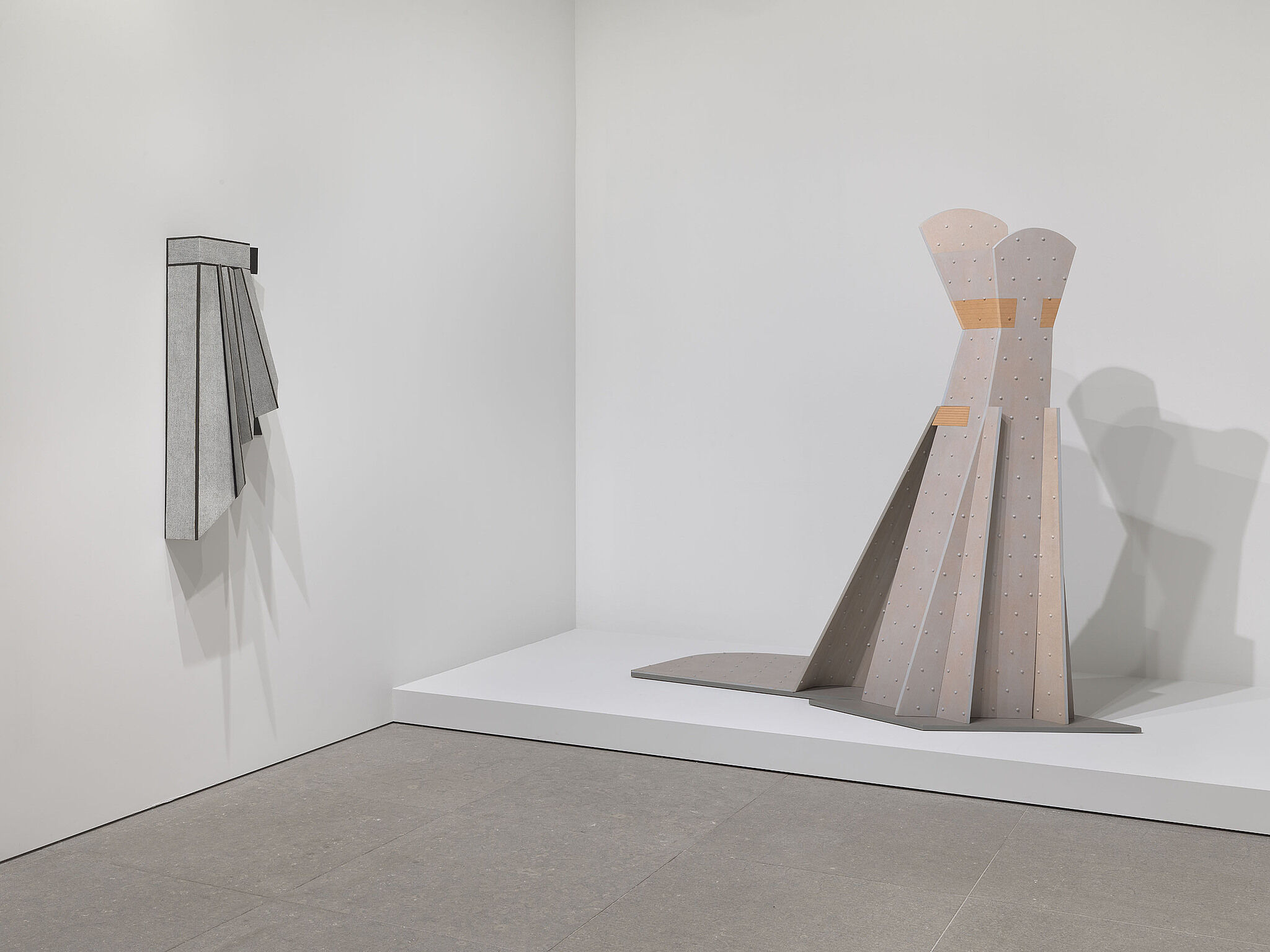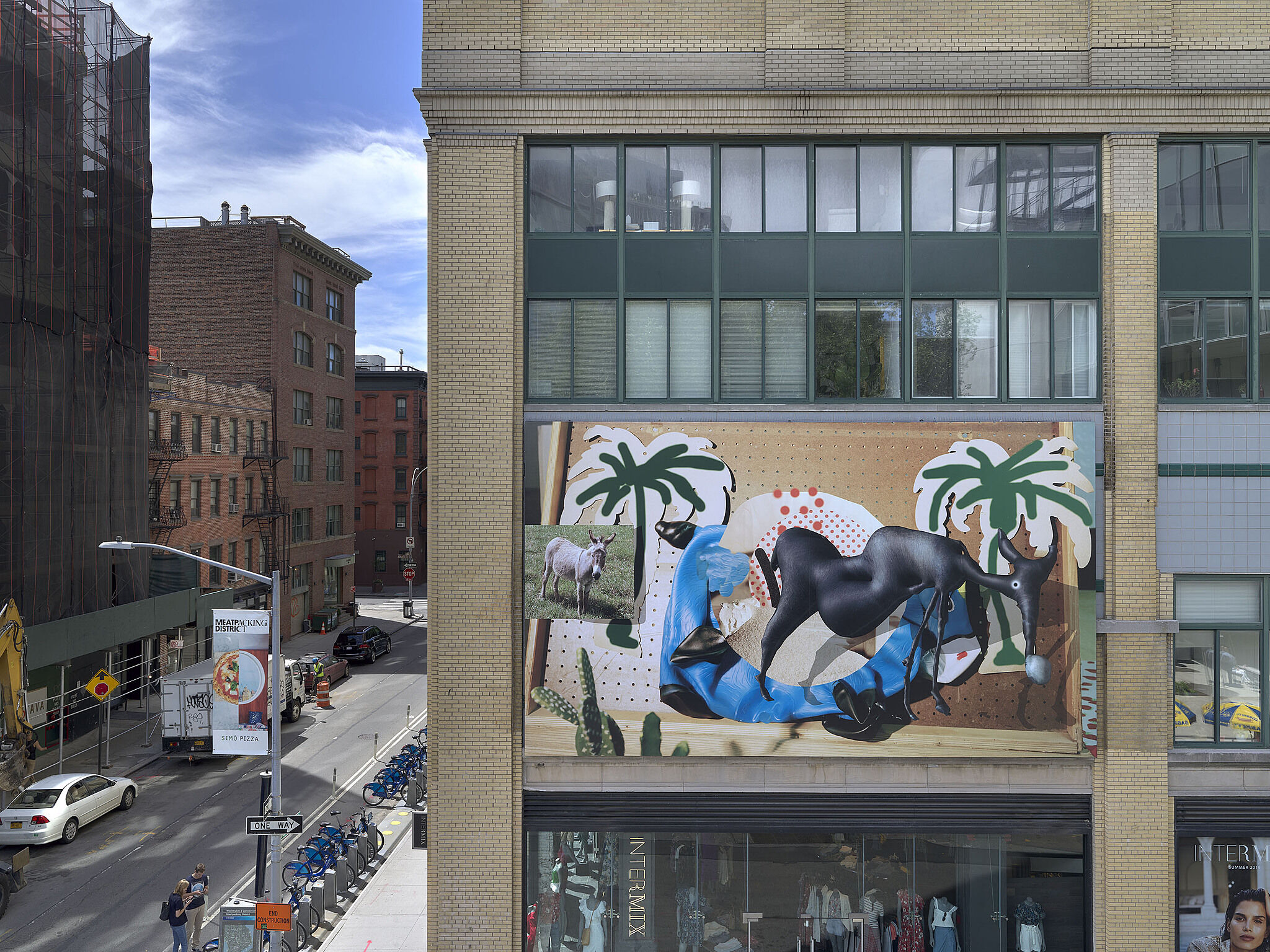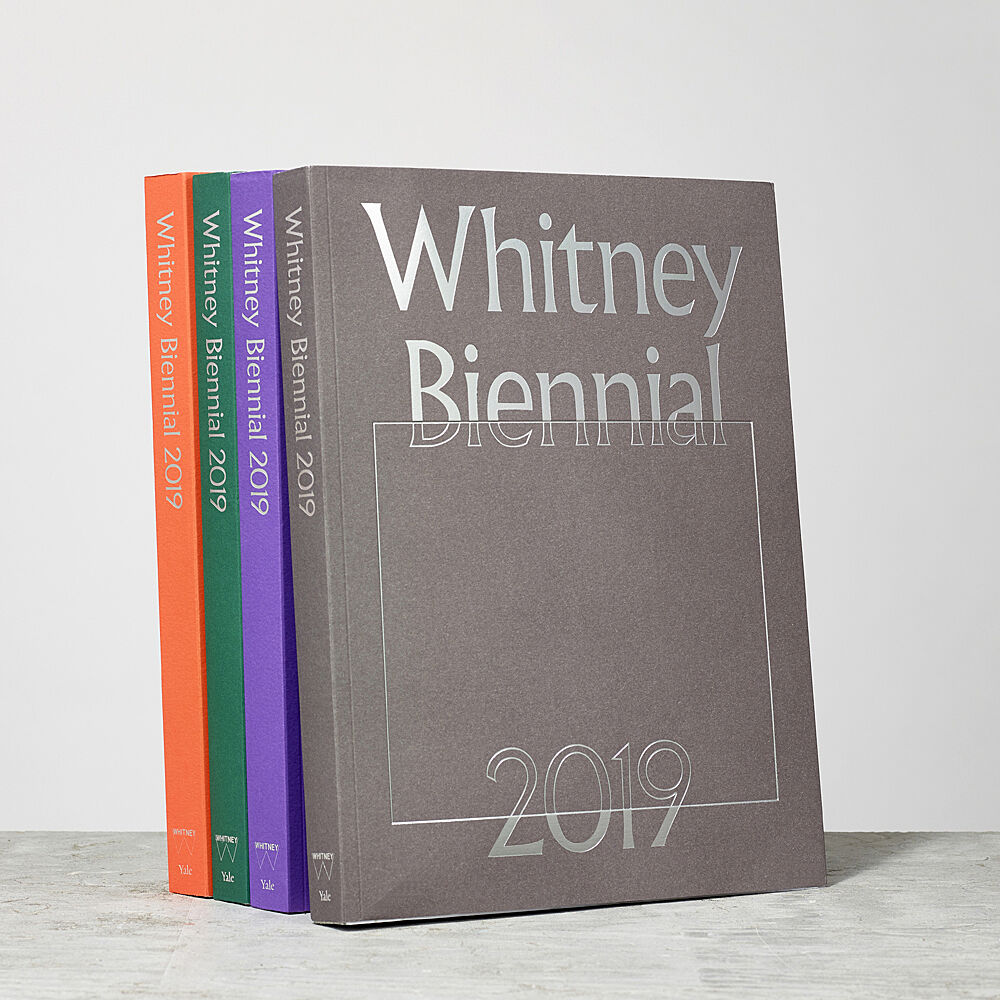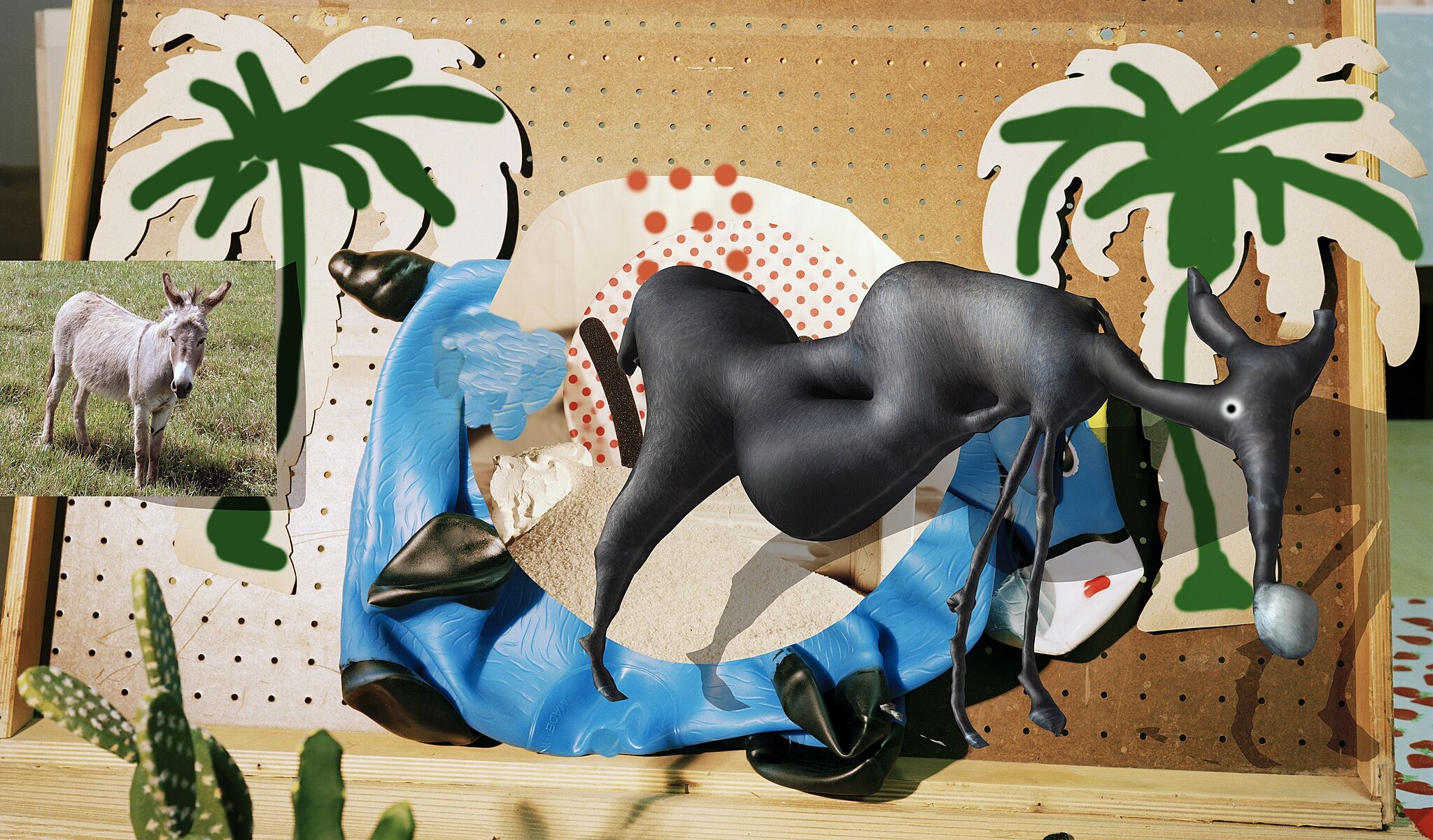Whitney Biennial 2019
May 17–Oct 27, 2019
The Whitney Biennial is an unmissable event for anyone interested in finding out what’s happening in art today. Curators Jane Panetta and Rujeko Hockley have been visiting artists over the past year in search of the most important and relevant work. Featuring seventy-five artists and collectives working in painting, sculpture, installation, film and video, photography, performance, and sound, the 2019 Biennial takes the pulse of the contemporary artistic moment. Introduced by the Museum’s founder Gertrude Vanderbilt Whitney in 1932, the Biennial is the longest-running exhibition in the country to chart the latest developments in American art.
Read more about the exhibition in a statement by the curators.
En Español
Para la Bienal, nos complace ofrecer los siguientes recursos y programas en español: la guía móvil, visitas guiadas de la exposición los viernes y sábados por la tarde, y visitas guiadas gratuitas para las escuelas públicas y concertadas de la Ciudad de Nueva York. Los textos de pared de la exposición se encuentran disponibles en español en el Museo.
Film Screenings and Performances
A dedicated screening program of eighteen films, selected by three guest curators, will immerse viewers in tales ranging from the world of global Black music, fashion, and visual culture to the discovery of a nine-thousand-year-old skeleton in Washington State. Performance works, from opera to social critique, will take place in the galleries, the theater, outdoors, and other spaces throughout the museum.
Marcus Fischer
21
Floor 5 and Allison and Warren Kanders Stairway
Born 1977 in Torrance, CA
Lives in Portland, OR
Marcus Fischer produced Untitled (Words of Concern) the day before Donald Trump’s inauguration as president. At the time, Fischer was participating in a Robert Rauschenberg Residency on Captiva Island, Florida. For the work, he invited other residents to recording sessions in which they discussed their fears and reservations about the Trump presidency. He edited their individual recordings into a three-minute tape loop, layering their words when they articulated the same ideas, transforming their voices into a kind of chorus; the loop played continuously in the Residency’s main studio on the day of the inauguration. As he does in many of his sculptural sound pieces, Fischer uses a 1960s Nagra reel-to-reel recorder to play the work, stringing the tape loop from the ceiling and highlighting its physical precariousness as an object. “All of these concerns that we share,” he has explained, “should give us strength instead of weigh us down.”
In the site-specific work Ascent/Dissent, Marcus Fischer treats the Whitney’s central staircase as a resonating chamber, maximizing its tendency to generate the fullest sounds at the bottom and more ethereal ones at the top. Fischer recorded some of these sounds in the stairwell itself; others he found or composed. Bearing in mind that sounds in nature shift in pitch from low to high as one rises—from the earthy sounds of a forest floor to birdcalls in the treetops, for example—Fischer has created a poetic sonic journey. The work’s title, a play on words that expresses both movement through the space and an act of protest, reflects Fischer’s belief that sound art can be political even without words.
Untitled (Words of Concern), 2017
-
0:00
Marcus Fischer
0:00
Marcus Fischer: My name is Marcus Fischer. I’m an artist and musician from Portland, Oregon.
Narrator: Marcus Fischer made Words of Concern while working as an artist in residence at the Robert Rauschenberg Foundation, in Captiva, Florida. He was there in the weeks leading up to the 2017 presidential inauguration.
Marcus Fischer: I sent a call out to the other artists that were there, just inviting them into my studio space. I made a little dark sound booth and put a microphone in there, and just invited people to come and I just wanted them to list everything that they were worried about going forward with the new administration. It was staggering. With the first couple of people who came in, a lot of the concerns that people had listed were the same.
So in the editing process, I stacked the voices when people would say the same thing. So it was a chorus of voices concerned about the environment, concerned about racism, and sexism, and corruption.
Narrator: On the day of the inauguration, Fischer installed the work in a large room that had been Robert Rauschenberg’s studio.
Marcus Fischer: People would come throughout the day and sit with it and listen, and there was pretty much a news embargo that day.
It was kind of somber and sobering. And looking forward, it's stunning how many things people listed really came true and then some.
-
Mobile guides
“It's a snapshot of contemporary art making in the United States today.”—Jane Panetta, 2019 Biennial co-curator
Hear from the artists and curators about works in the exhibition.
Exhibition Catalogue
Coming in the midst of dramatic shifts in the cultural, social, and political landscapes, this book serves as an important resource on present-day trends in contemporary art in the United States. The catalogue features process images and source material from each of the Biennial participants, in addition to a commissioned text on each artist and essays by the curators on the themes of the exhibition.
Buy now
Explore works from this exhibition
in the Whitney's collection
View 88 works
In the News
“This year’s Whitney Biennial is organized by Jane Panetta and Rujeko Hockley, two astute young curators on the museum’s staff.” —The New Yorker
“There’s perhaps no better place to check out the contemporary art world’s up-and-comers than at New York City’s Whitney Museum of American Art, and this summer show is the crème de la crème.” —Forbes Travel Guide
“While the roster includes familiar names (Nicole Eisenman, Josh Kline) and new cult favorites (the unconventional collective Forensic Architecture, nominated for the 2018 Turner Prize), it also leaves room for plenty of unexpected discoveries.” —GARAGE
“The curators of the seventy-ninth Whitney Biennial take the pulse of American creativity at one of the most polarizing times in the country’s history.” —Elle
“While we used to believe art history was a progression of one ism and style to the next, artists are now inhabiting the beautiful ruins of the art of the past 125 years.” —New York Magazine
“In many ways, this year’s biennial is not just a passive reflection of what is happening in contemporary art, but also a statement about the importance of supporting and cultivating emerging artists, especially during challenging times.” —AM New York
“If there was ever a biennial you wouldn’t want to miss, it’s this one.” —New York Post
“A requisite for anyone who wants to explore the vast talent of 75 artists who push the boundaries of gender, race, and equity, wrestling with ideas and topics that are indispensable in today’s social dialogue . . . This is the art that defines our present.” —Forbes
“Artist by artist, piece by piece, there’s a lot of quiet agitation in the air . . . A view of American art far more inclusive than it once was . . . The ethnic and gender mix is balanced to a degree unimaginable even a decade ago.” —The New York Times
“The show is by turns beautiful, elegant, formally complex, and even funny at times. It is also fierce.” —4Columns
“Fresh and energizing” —Gothamist
“ . . . it’s a place where traditional boundaries give way to an animated spirit of inclusion . . . a good lesson for life . . . this Biennial makes thoughtful purpose its hallmark . . . Boom.” —The Boston Globe
“For an up-to-the-minute blockbuster that confronts some of today’s thorniest issues—race, class, gender, inequality—the Whitney’s 2019 Biennial is unexpectedly lovely to look at. . . . Much of the work here is subtle, thoughtful and meticulously engineered.” –Financial Times
More from this series
Learn more about the Whitney Biennial, the longest-running survey of American art.
Curatorial Statement
By Jane Panetta and Rujeko Hockley
Often described as a snapshot of art in the United States, the Biennial brings together work by individuals and collectives in a broad array of mediums. Over the past year and a half—an undeniably intense and polarized time in this country—we made hundreds of studio visits. While we often encountered heightened emotions, they were directed toward thoughtful and productive experimentation, the re-envisioning of self and society, and political and aesthetic strategies for survival. Although much of the work presented here is steeped in sociopolitical concerns, the cumulative effect is open-ended and hopeful.
Key issues and approaches emerge across the exhibition: the mining of history as a means to reimagine the present or future; a profound consideration of race, gender, and equity; and explorations of the vulnerability of the body. Concerns for community appear in the content and social engagement of the work and also in the ways that the artists navigate the world. Many of the artists included emphasize the physicality of their materials, whether in sculptures assembled out of found objects, heavily worked paintings, or painstakingly detailed drawings. An emphasis on the artist’s hand suggests a rejection of the digital and the related slick, packaged presentation of the self in favor of more individualized and idiosyncratic work.
While we were organizing this exhibition, broader debates in the public sphere surfaced at the Museum, which itself became the site and subject of protest, as it has been throughout its history. Fundamental to the Whitney’s identity is its openness to dialogue, and the conversations that have occurred here and across the country became a productive lens through which to synthesize our own looking, thinking, and self-questioning.
The 2019 Whitney Biennial is organized by Jane Panetta and Rujeko Hockley, with Ramsay Kolber.
The film program is organized by Maori Karmael Holmes, Sky Hopinka, and Matt Wolf.
The performance program is organized by Jane Panetta, Rujeko Hockley, and Greta Hartenstein.
Whitney Biennial 2019 is presented by

Major support is provided by The Brown Foundation, Inc., of Houston; The Philip and Janice Levin Foundation; The Rosenkranz Foundation; and the Whitney’s National Committee.
Generous support is provided by Lise and Michael Evans; and the John R. Eckel, Jr. Foundation.
Significant support is provided by 2019 Biennial Committee Co-Chairs: Beth Rudin DeWoody, Bob Gersh, Miyoung Lee, and Fred Wilson; 2019 Biennial Committee members: Ashley Leeds and Christopher Harland, Diane and Adam E. Max, Annette and Paul Smith, Sarah Arison and Thomas Wilhelm, Bill Block, the Debra and Jeffrey Geller Family Foundation, Rebecca and Martin Eisenberg, Amanda and Glenn Fuhrman, Barbara and Michael Gamson, Marjorie and James D. Kuhn, Kourosh Larizadeh and Luis Pardo, Melanie Shorin and Greg S. Feldman, Dora and Cranford Stoudemire, and the William and Ellen Taubman Foundation; and Further Forward Foundation, the Kapadia Equity Fund, The Keith Haring Foundation Exhibition Fund, Katie and Amnon Rodan, and Sotheby’s.
Additional support is provided by the Barbro Osher Pro Suecia Foundation.
Funding is also provided by special Biennial endowments created by Melva Bucksbaum, Emily Fisher Landau, Leonard A. Lauder, and Fern and Lenard Tessler.
Curatorial research and travel for this exhibition were funded by an endowment established by Rosina Lee Yue and Bert A. Lies, Jr., MD.
New York magazine is the exclusive media sponsor.

